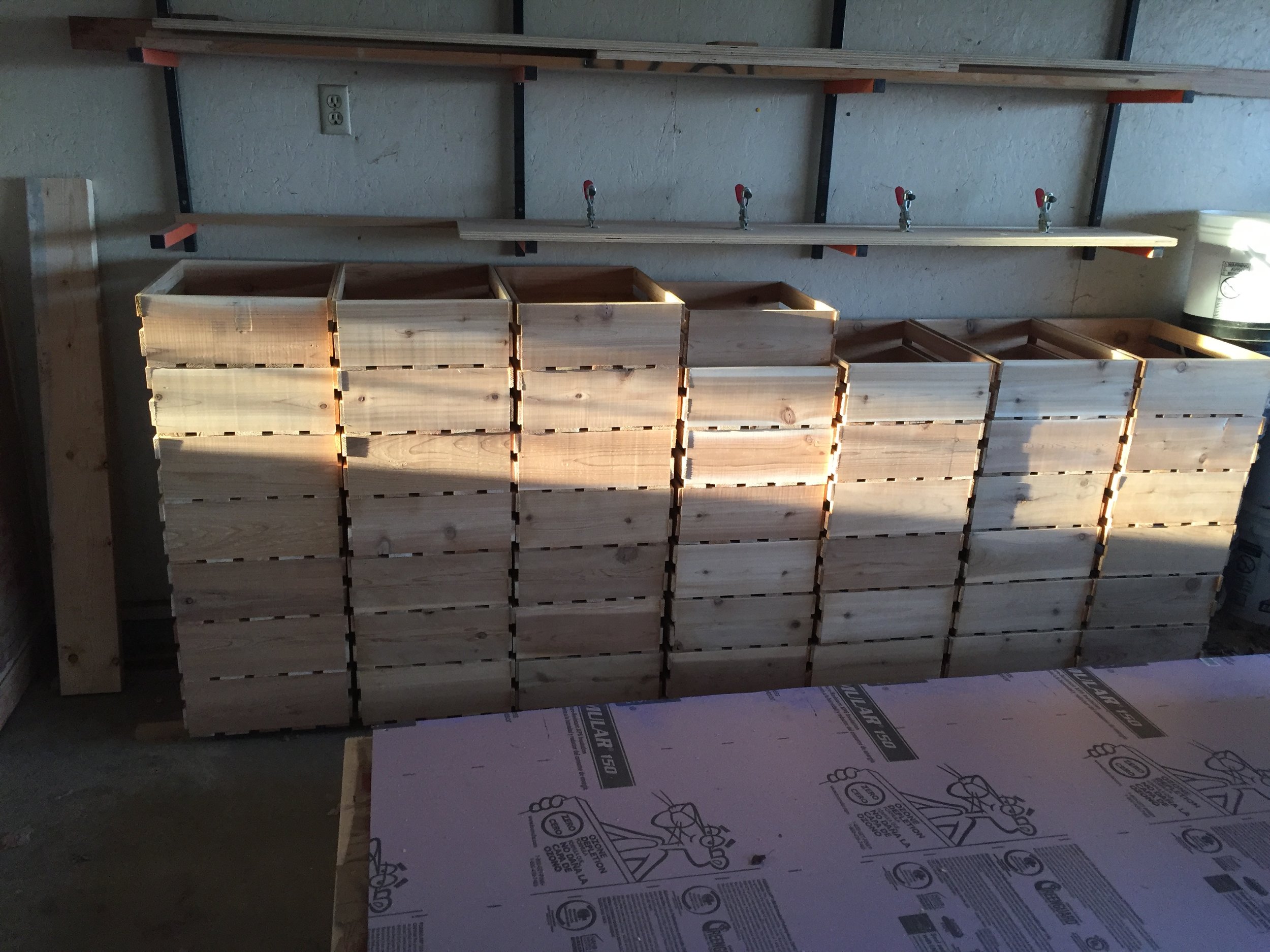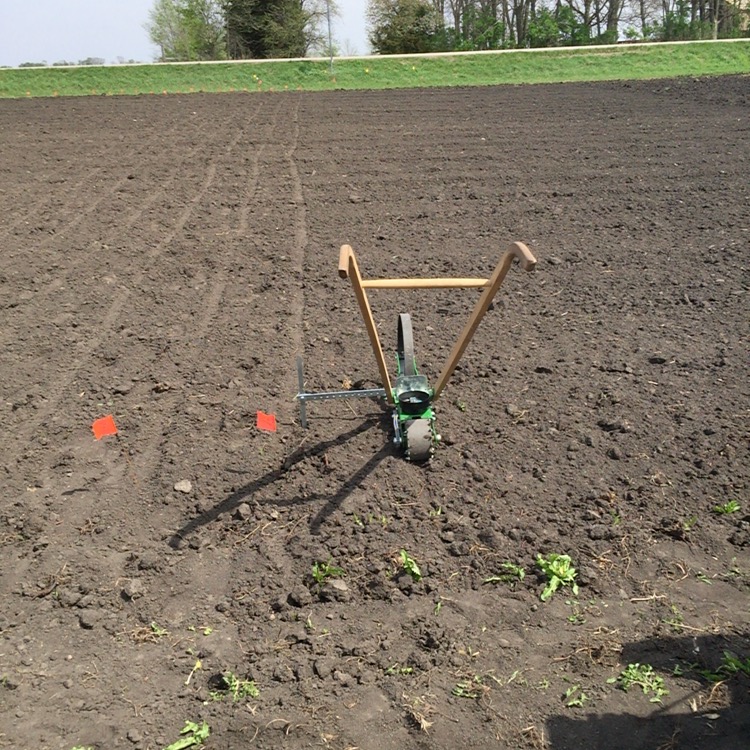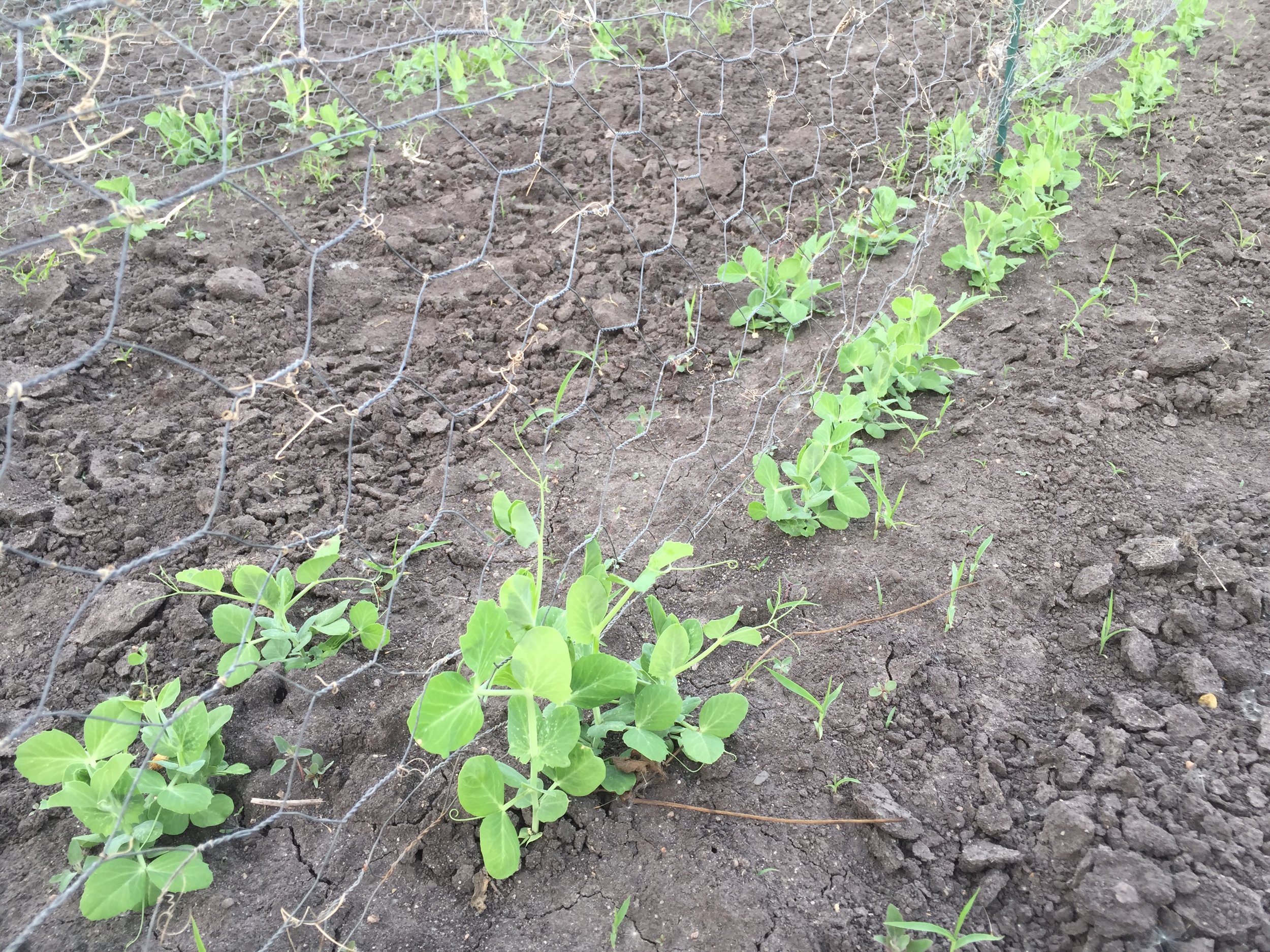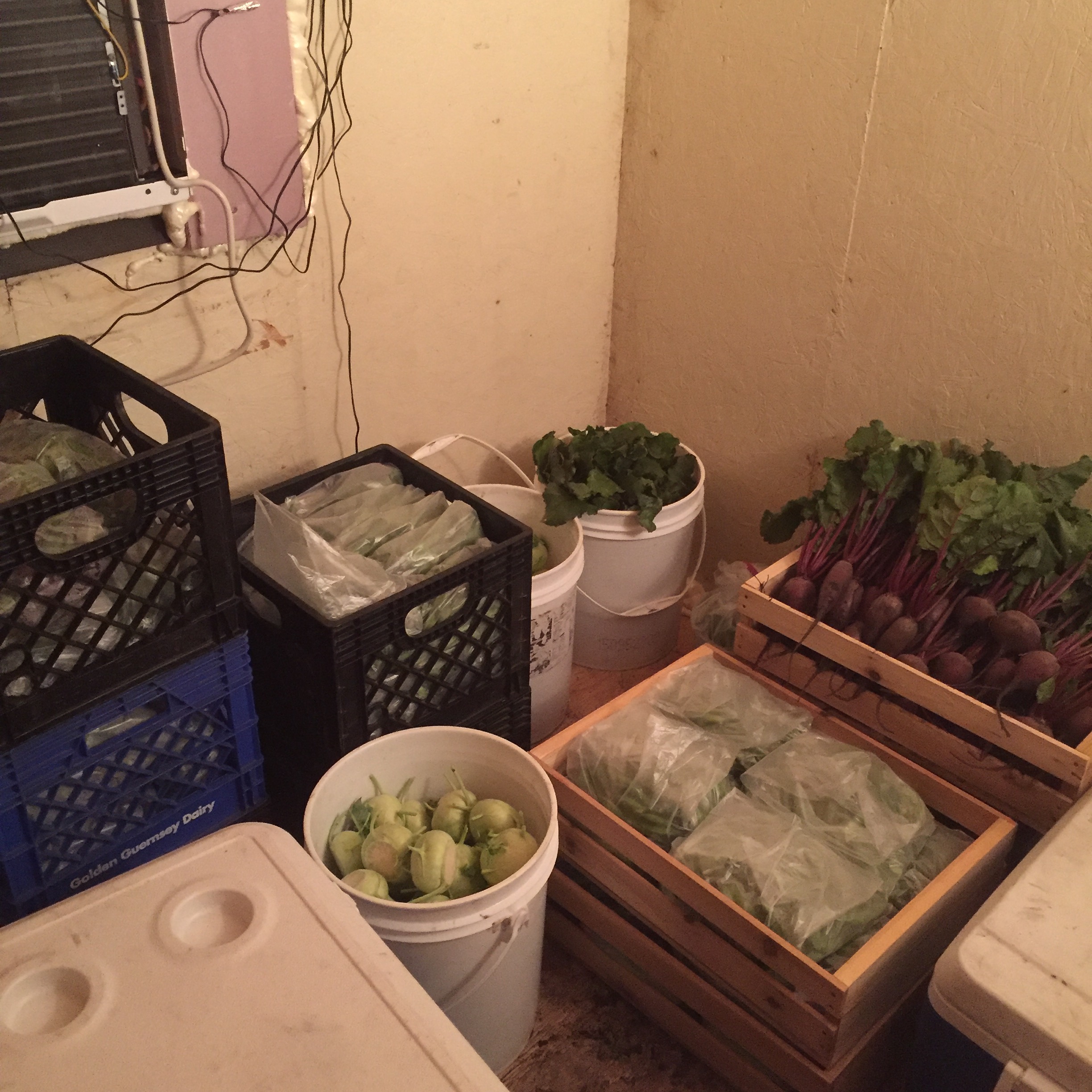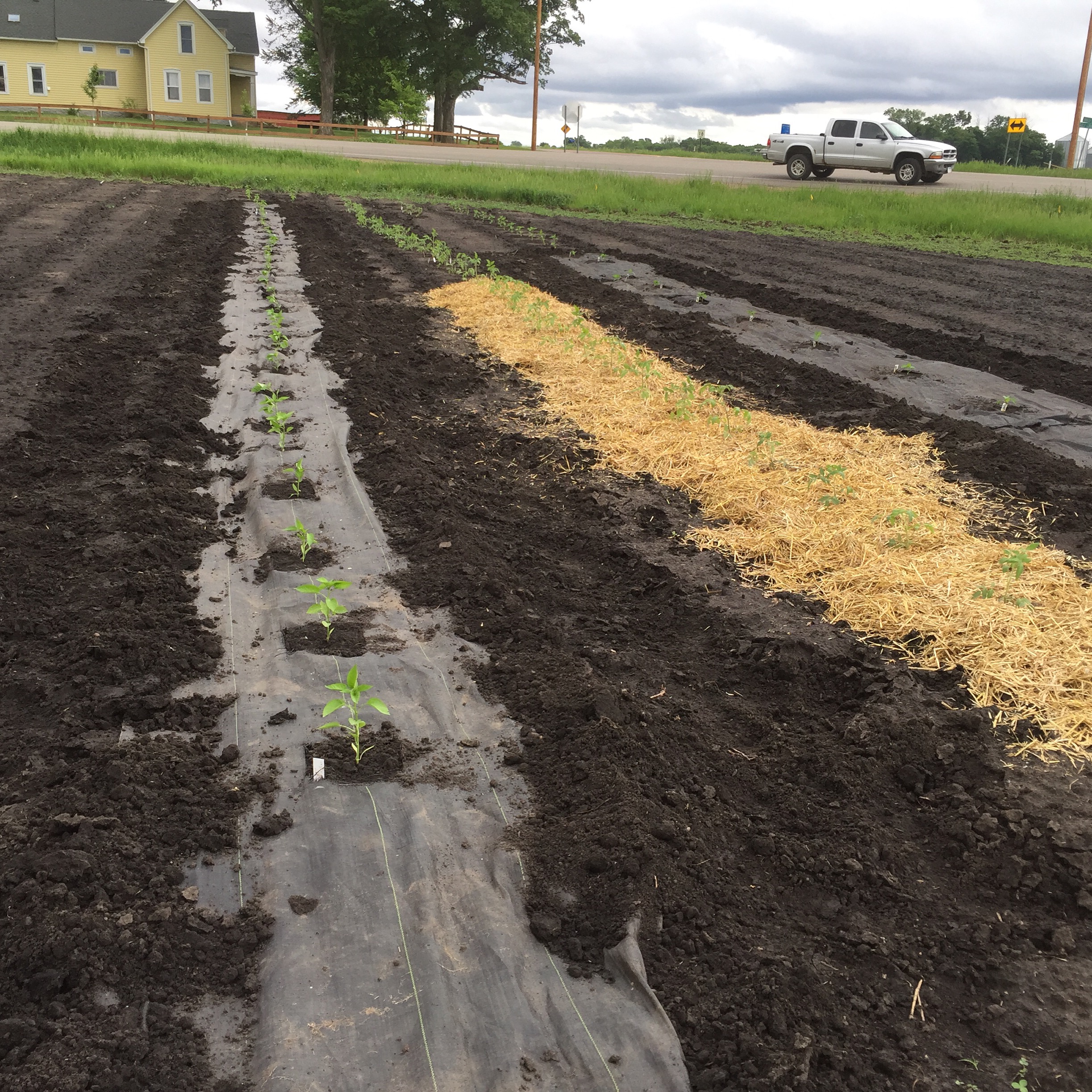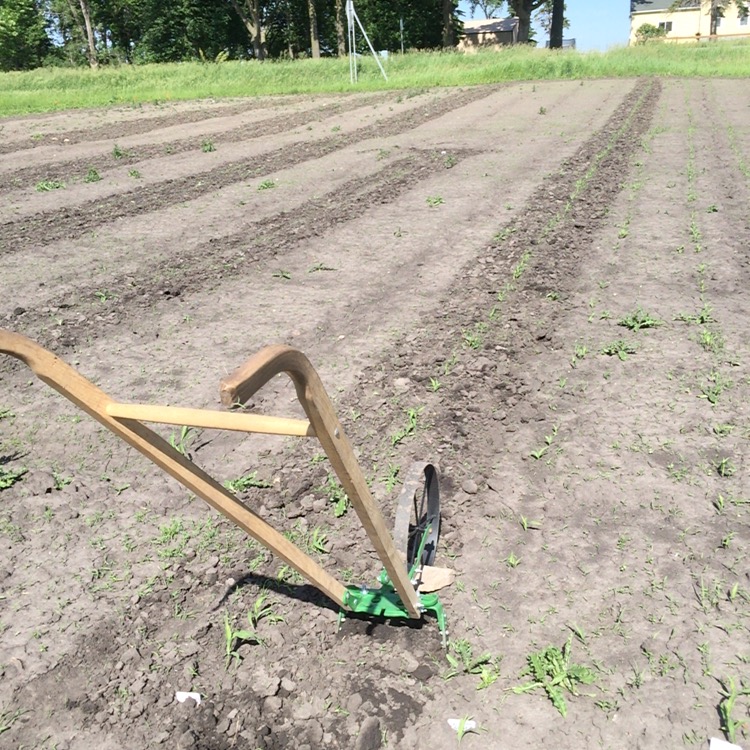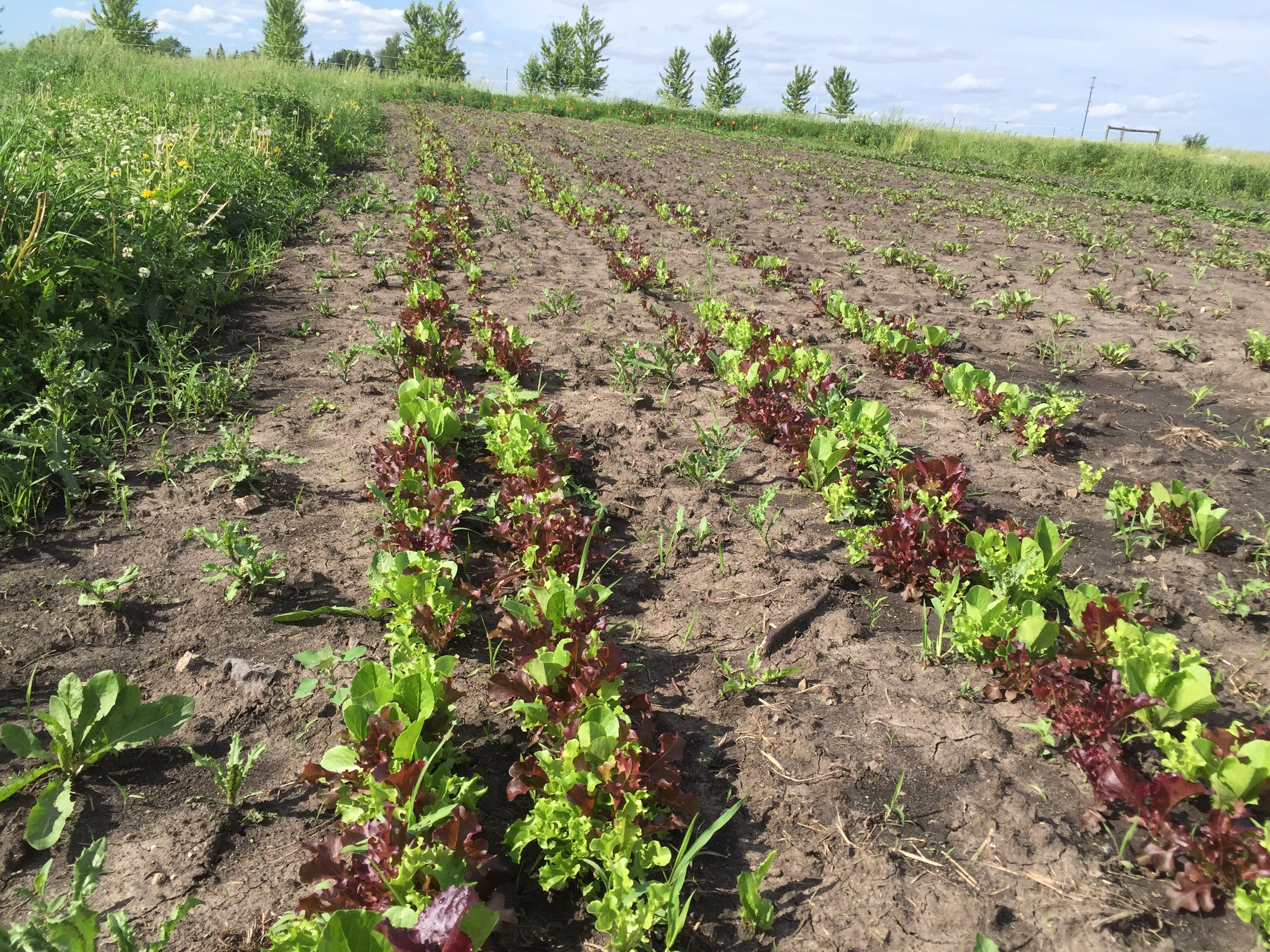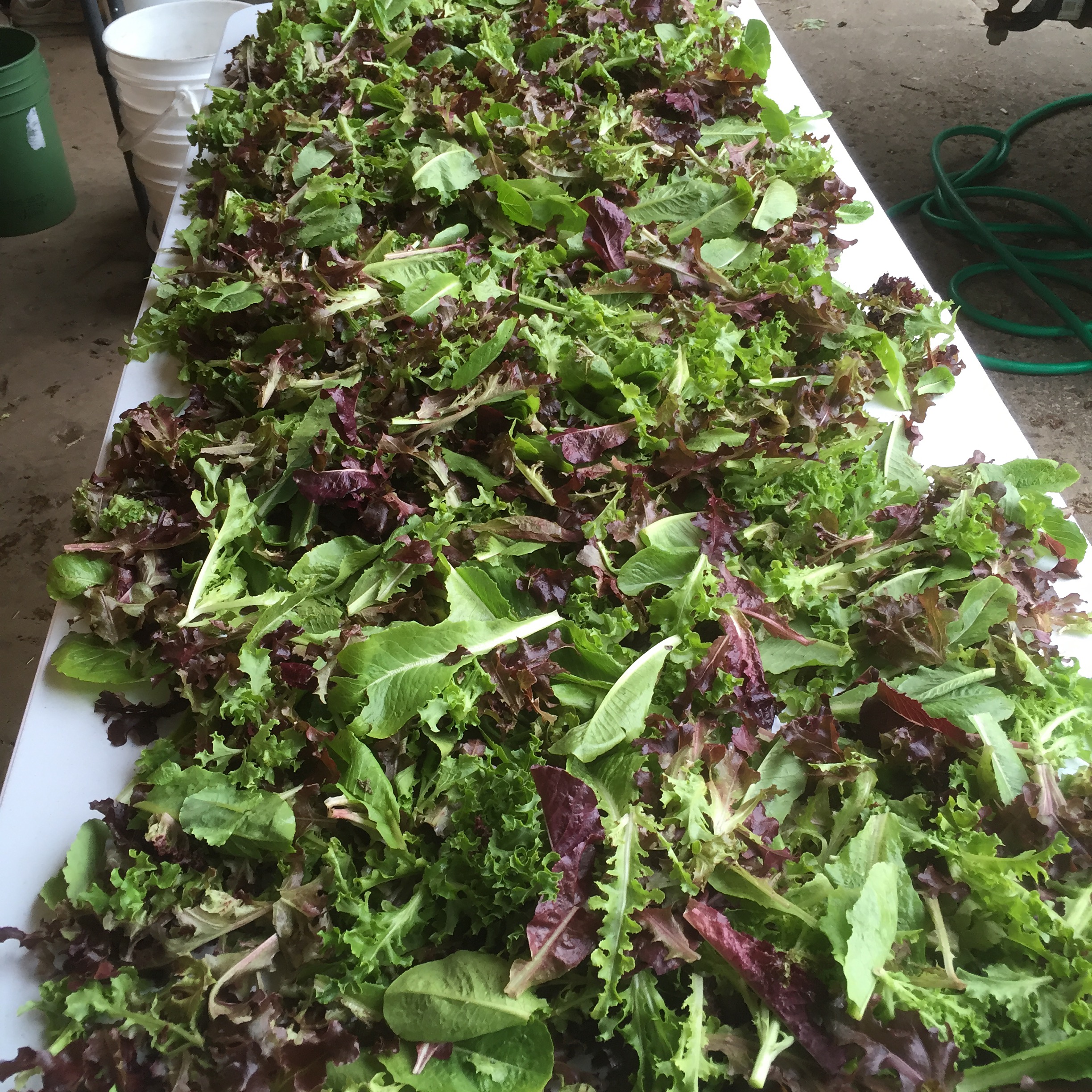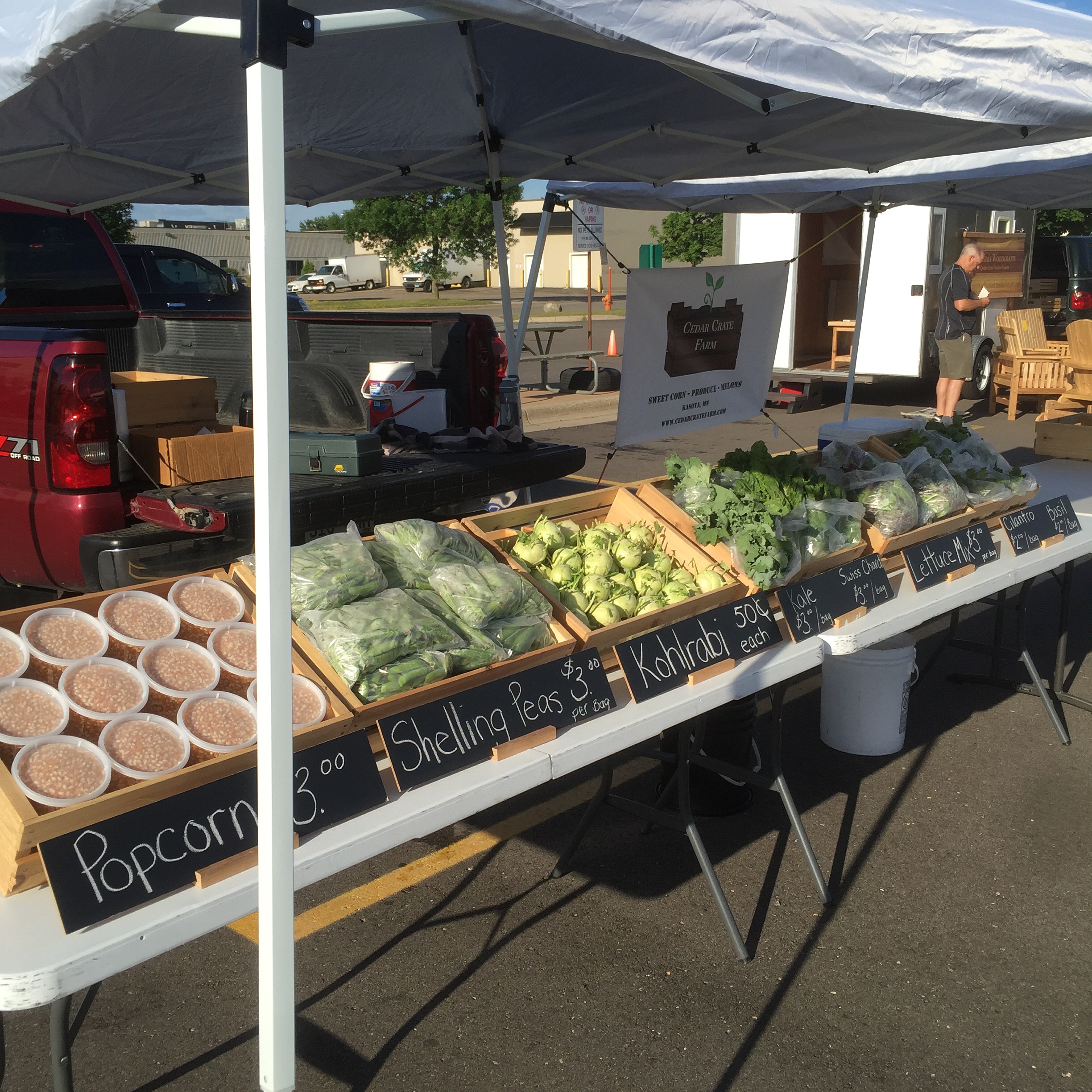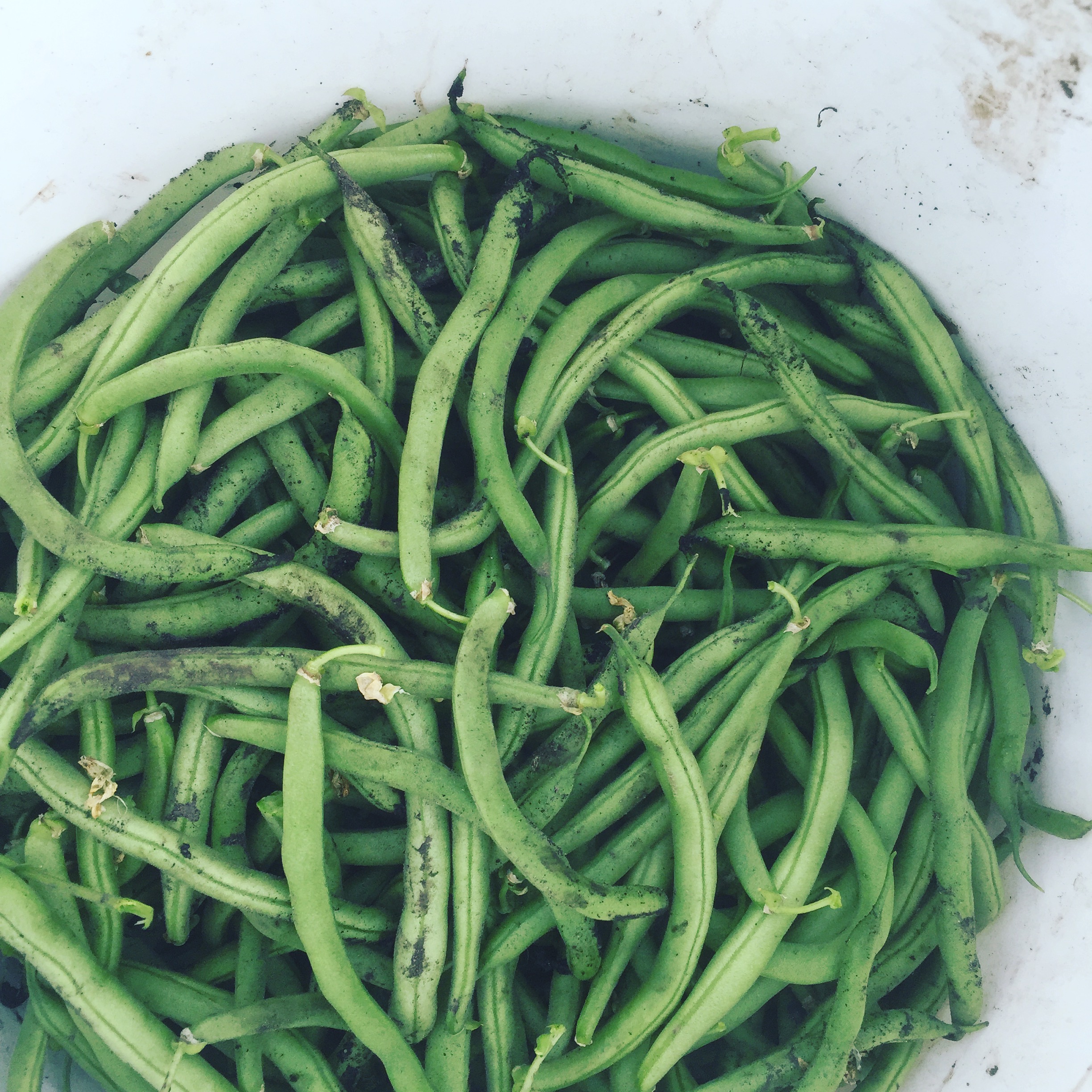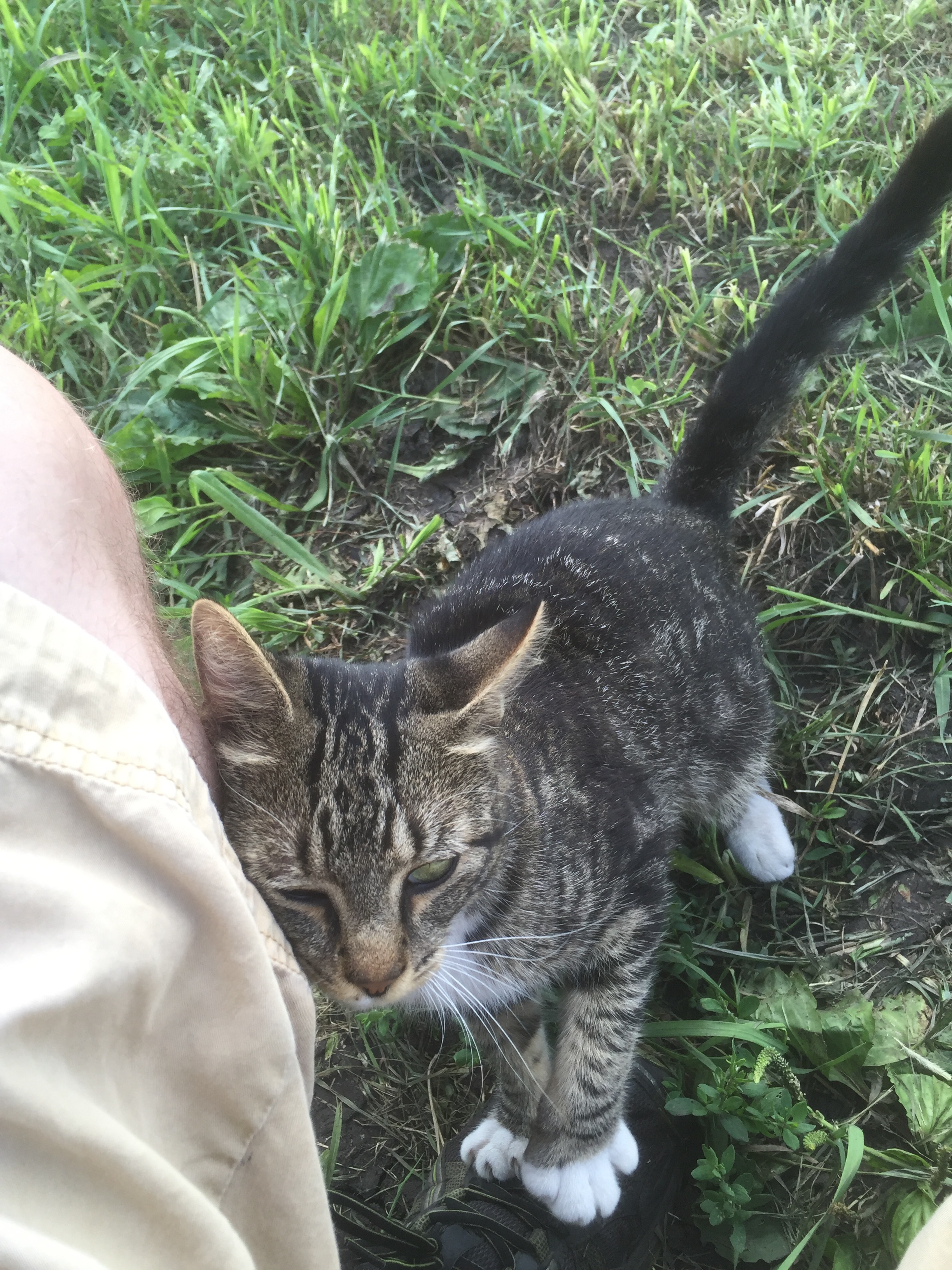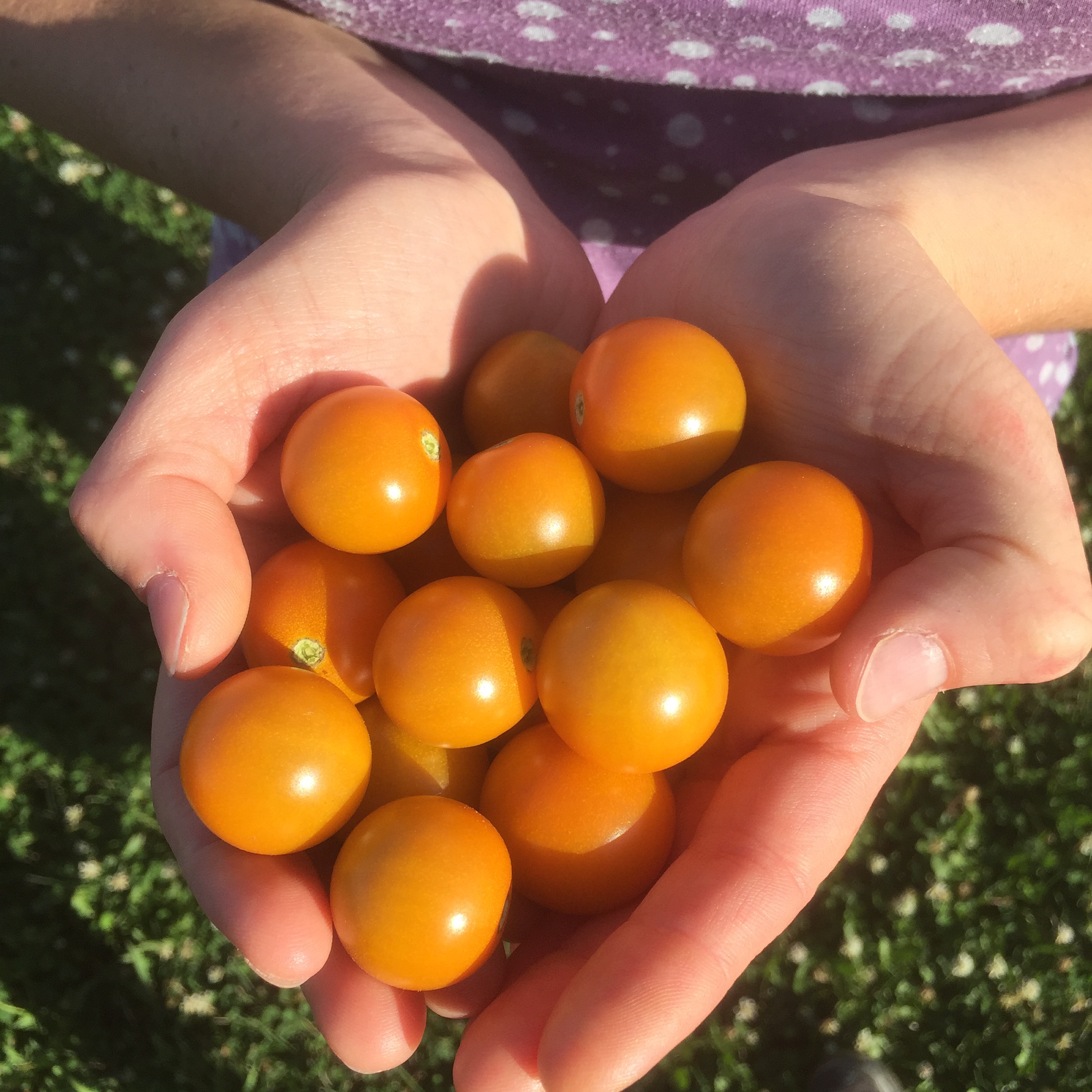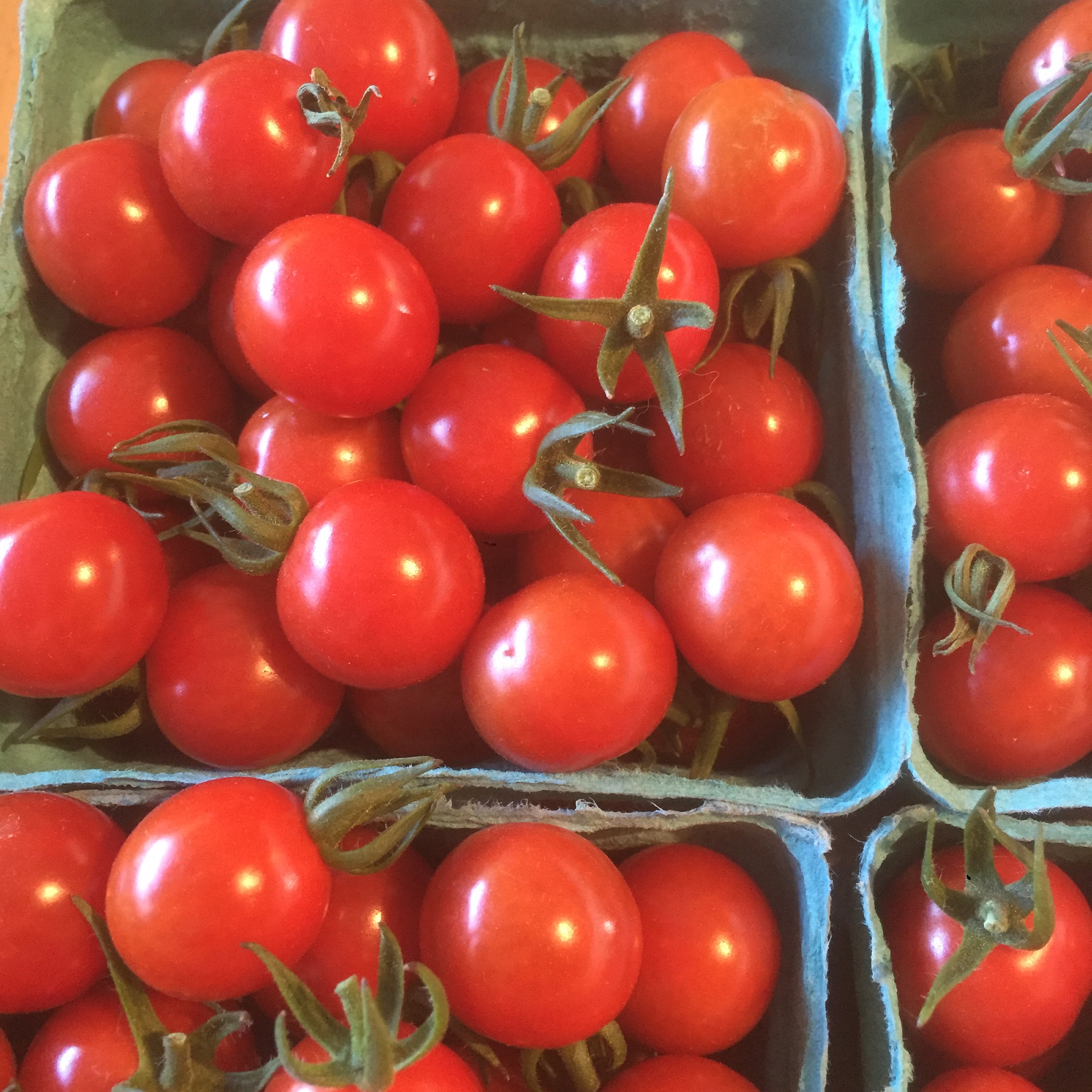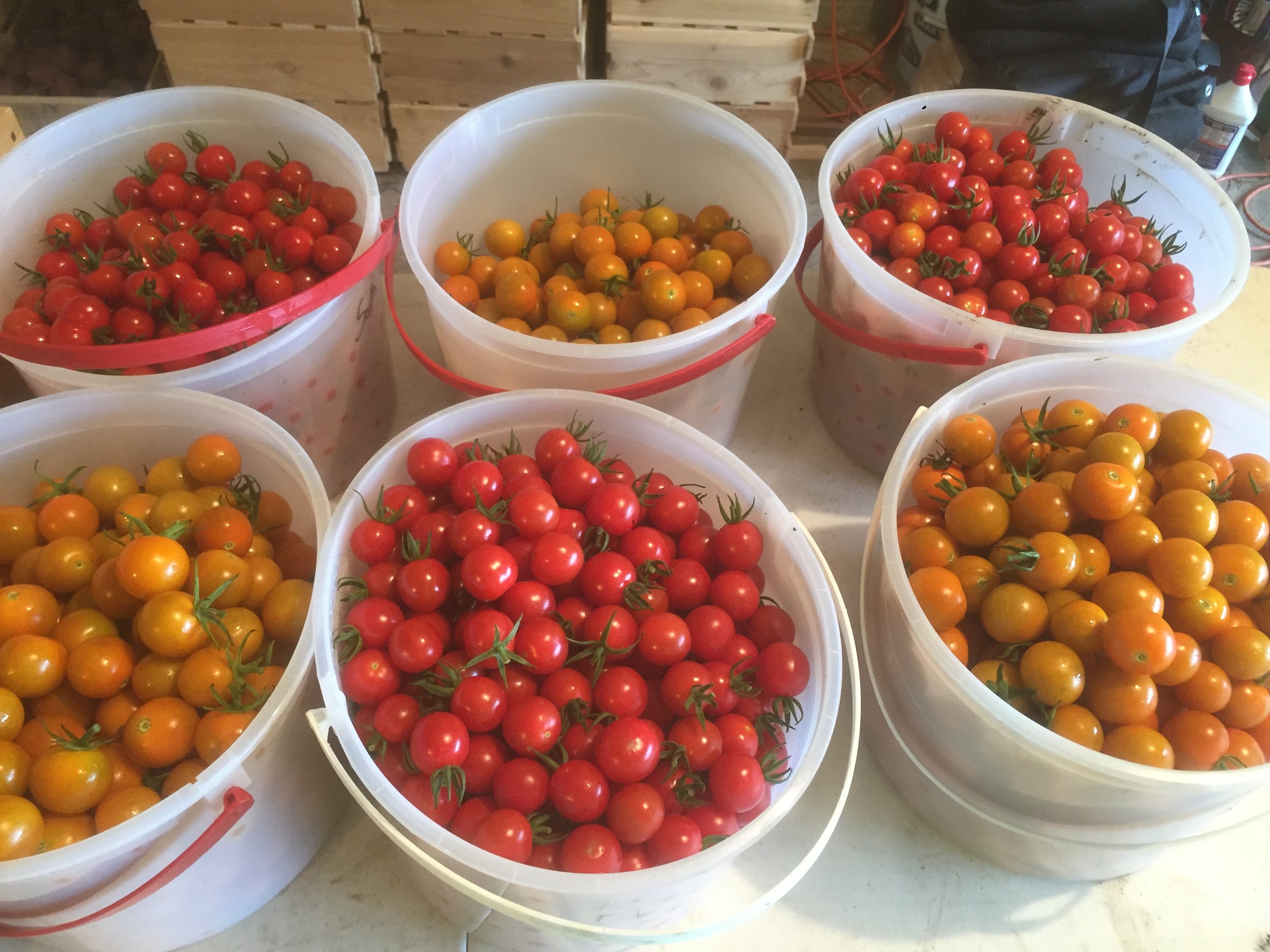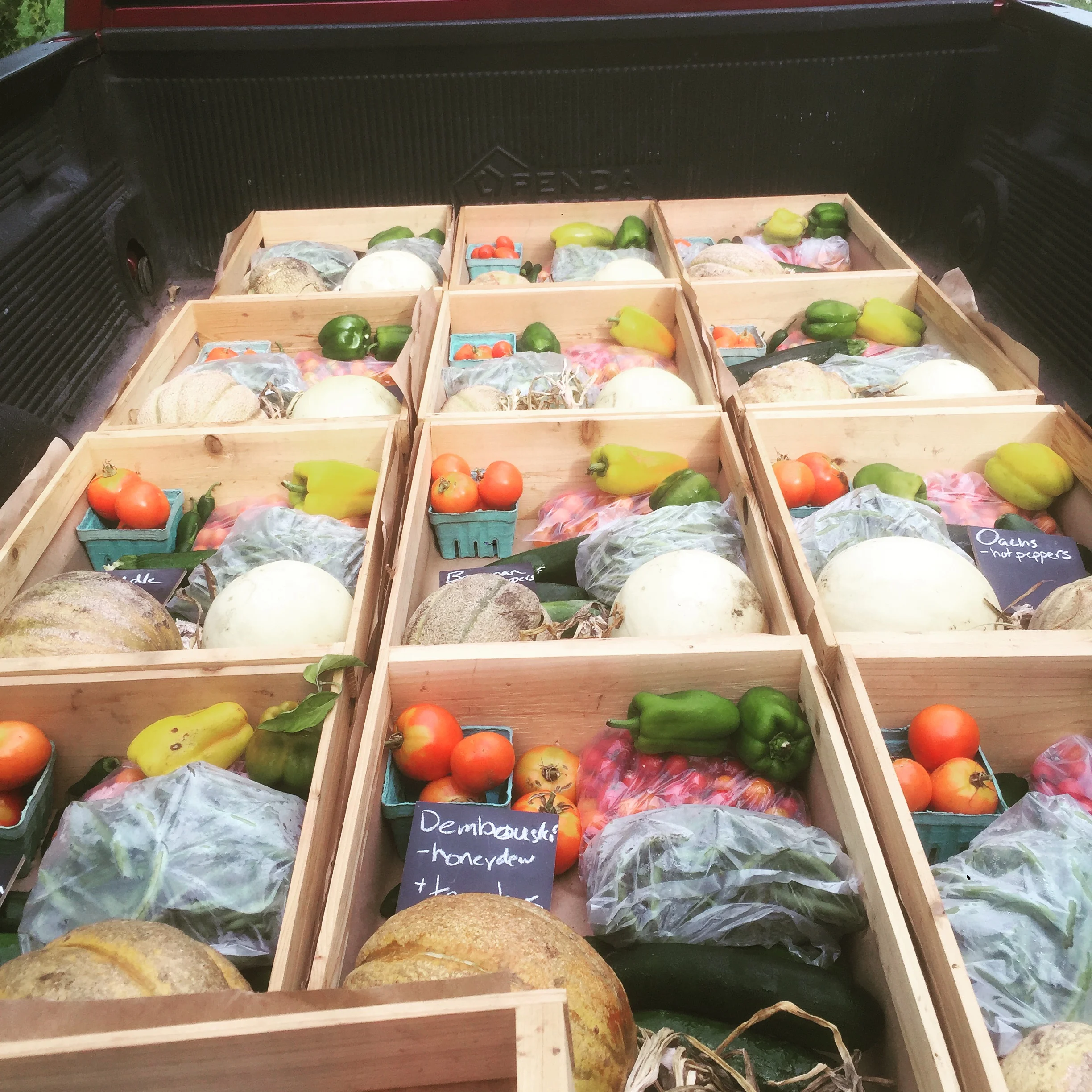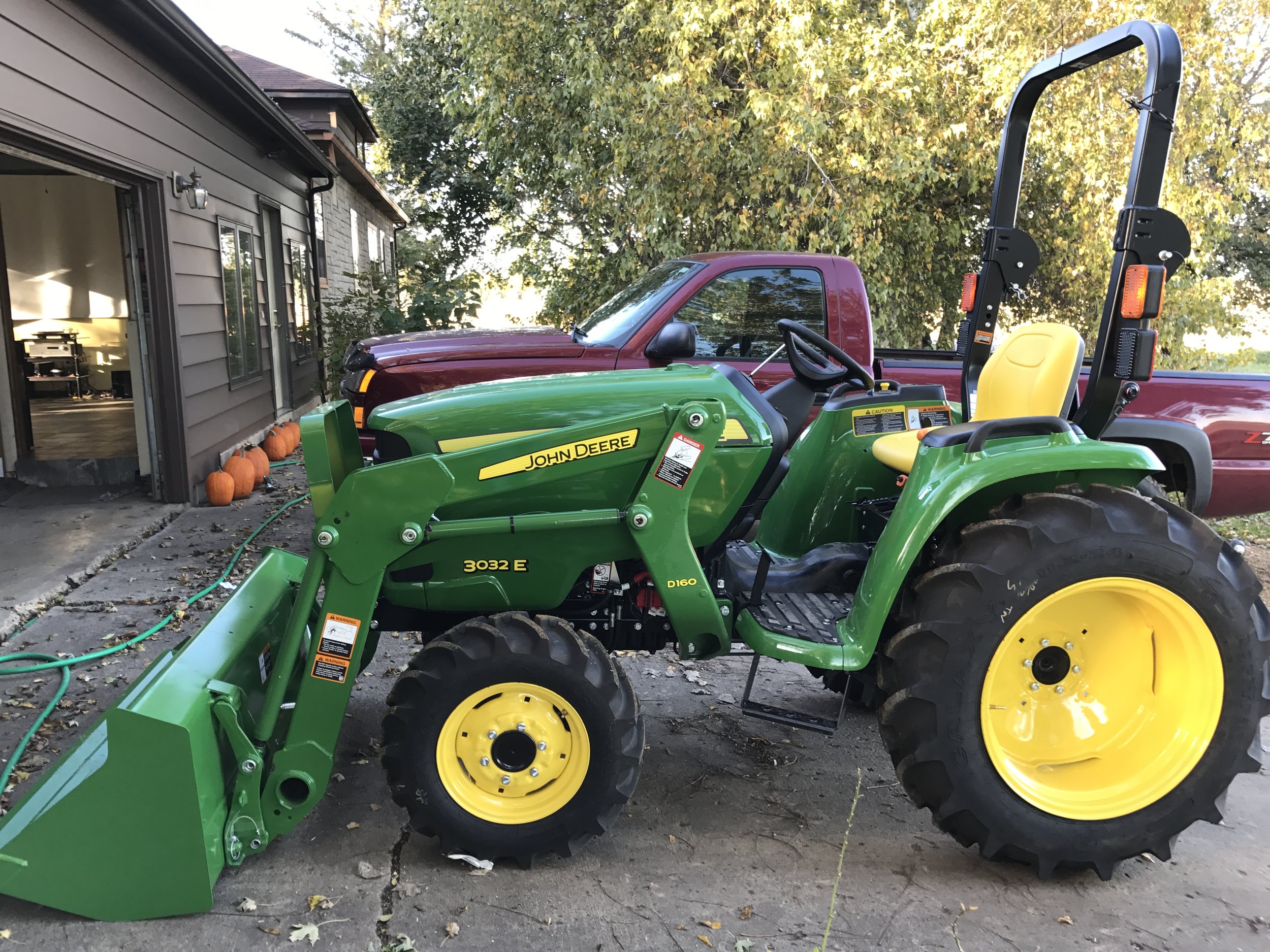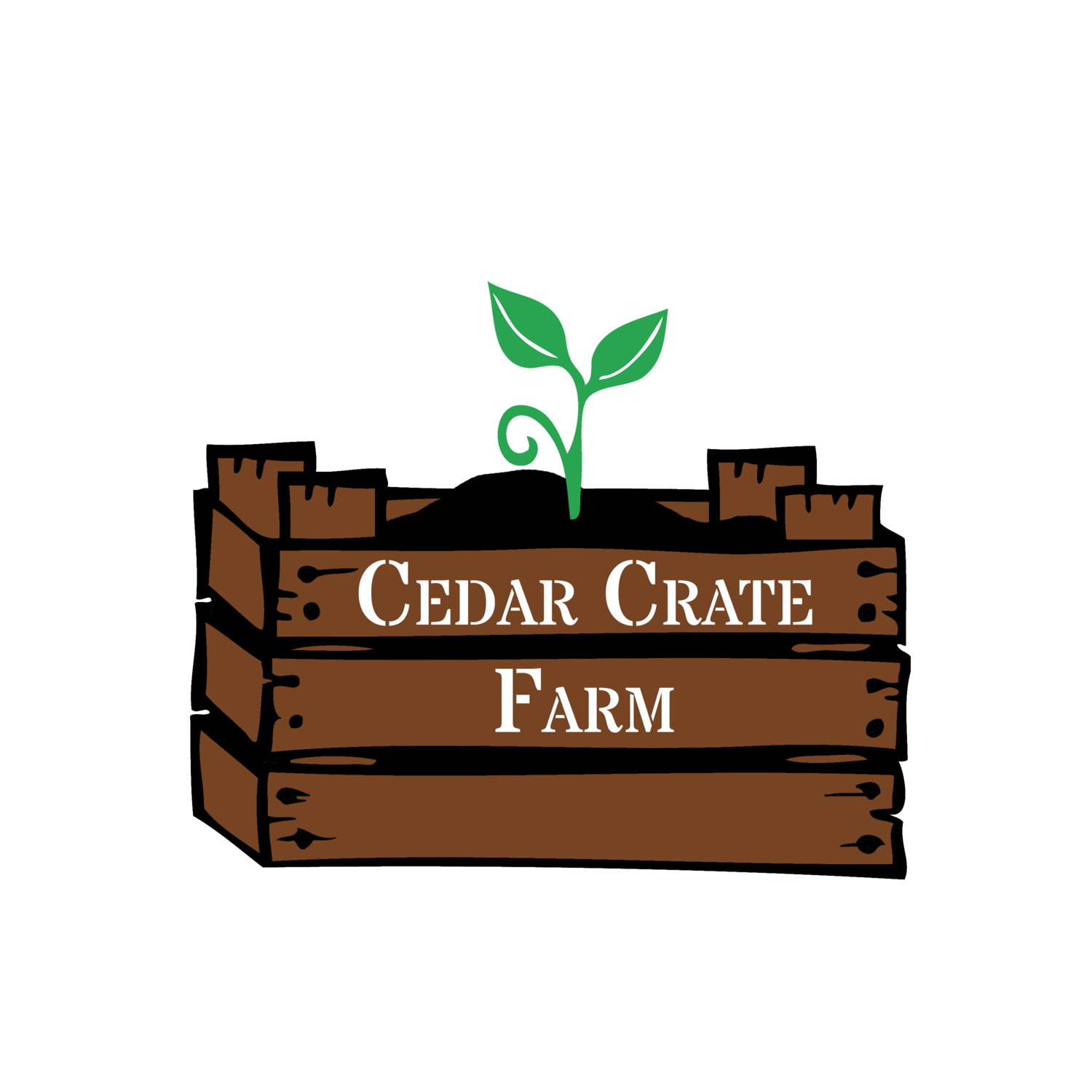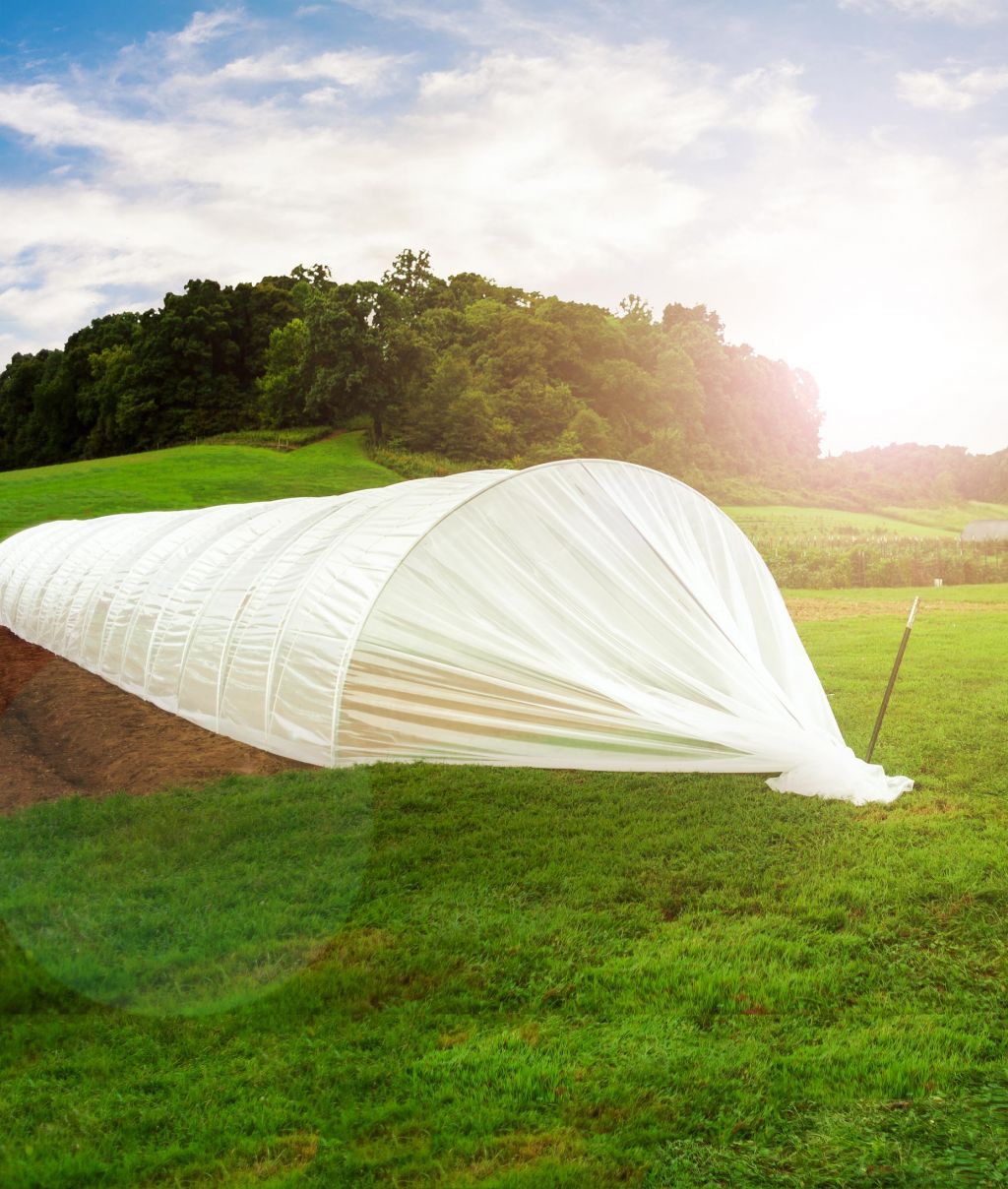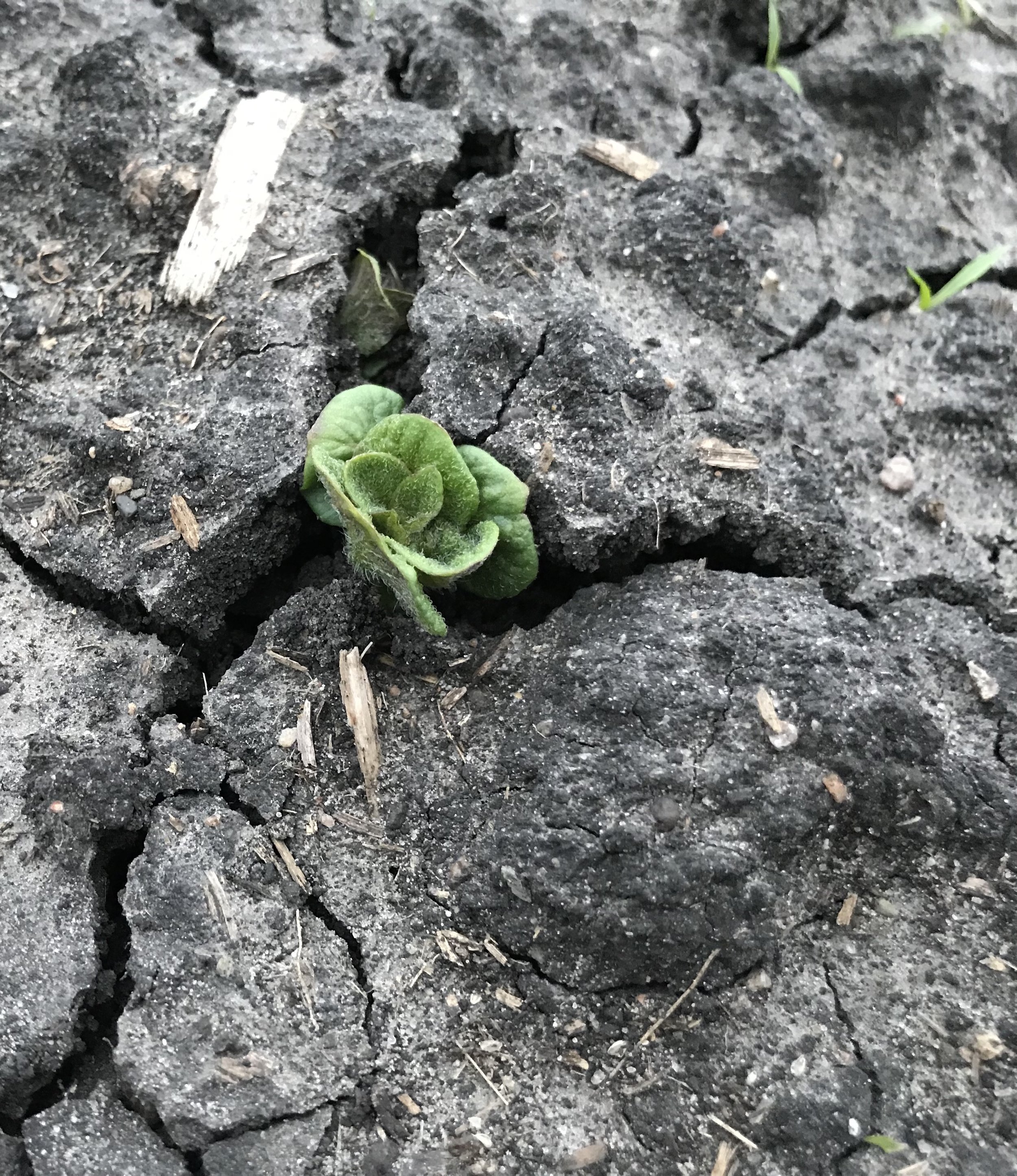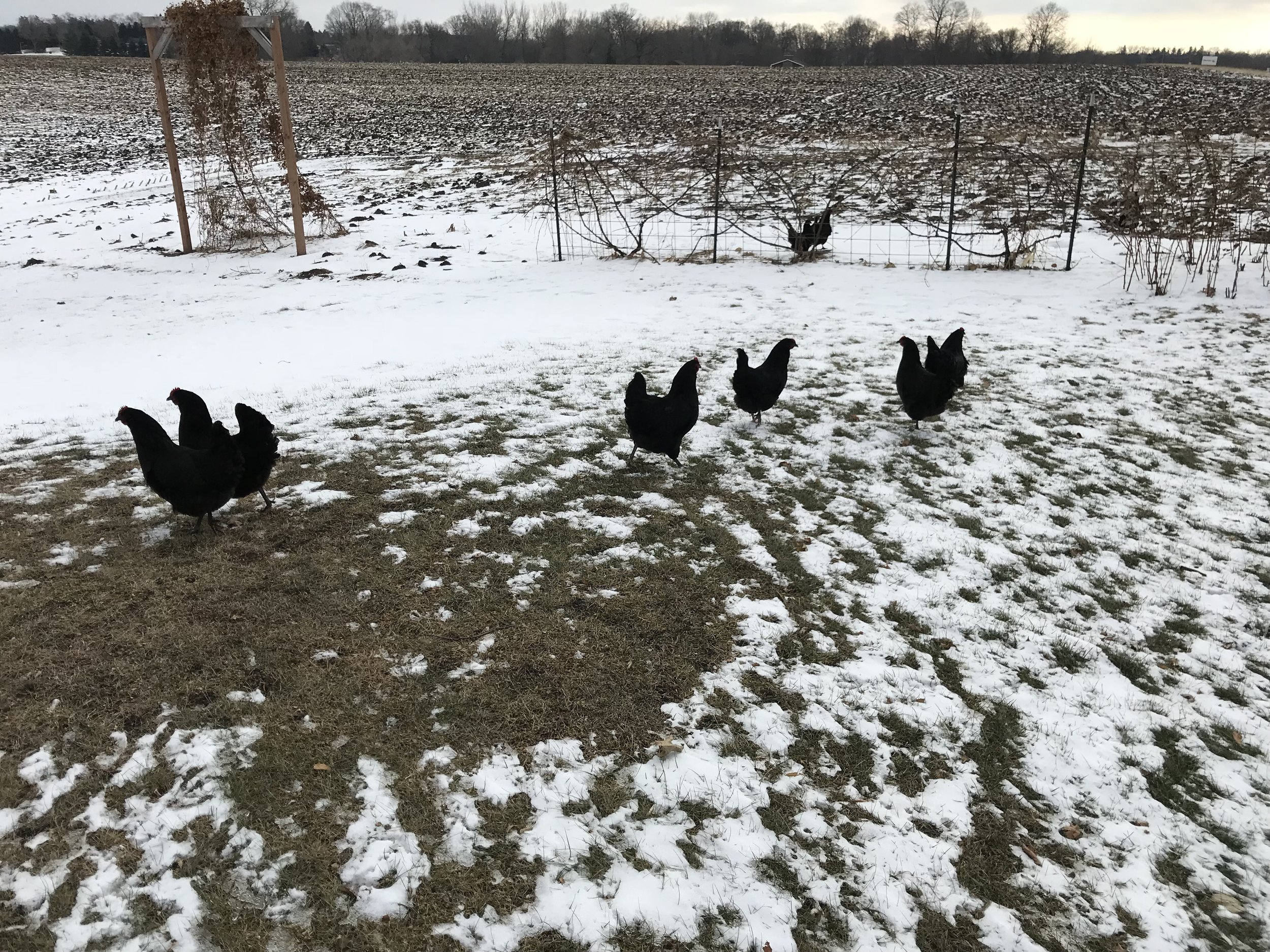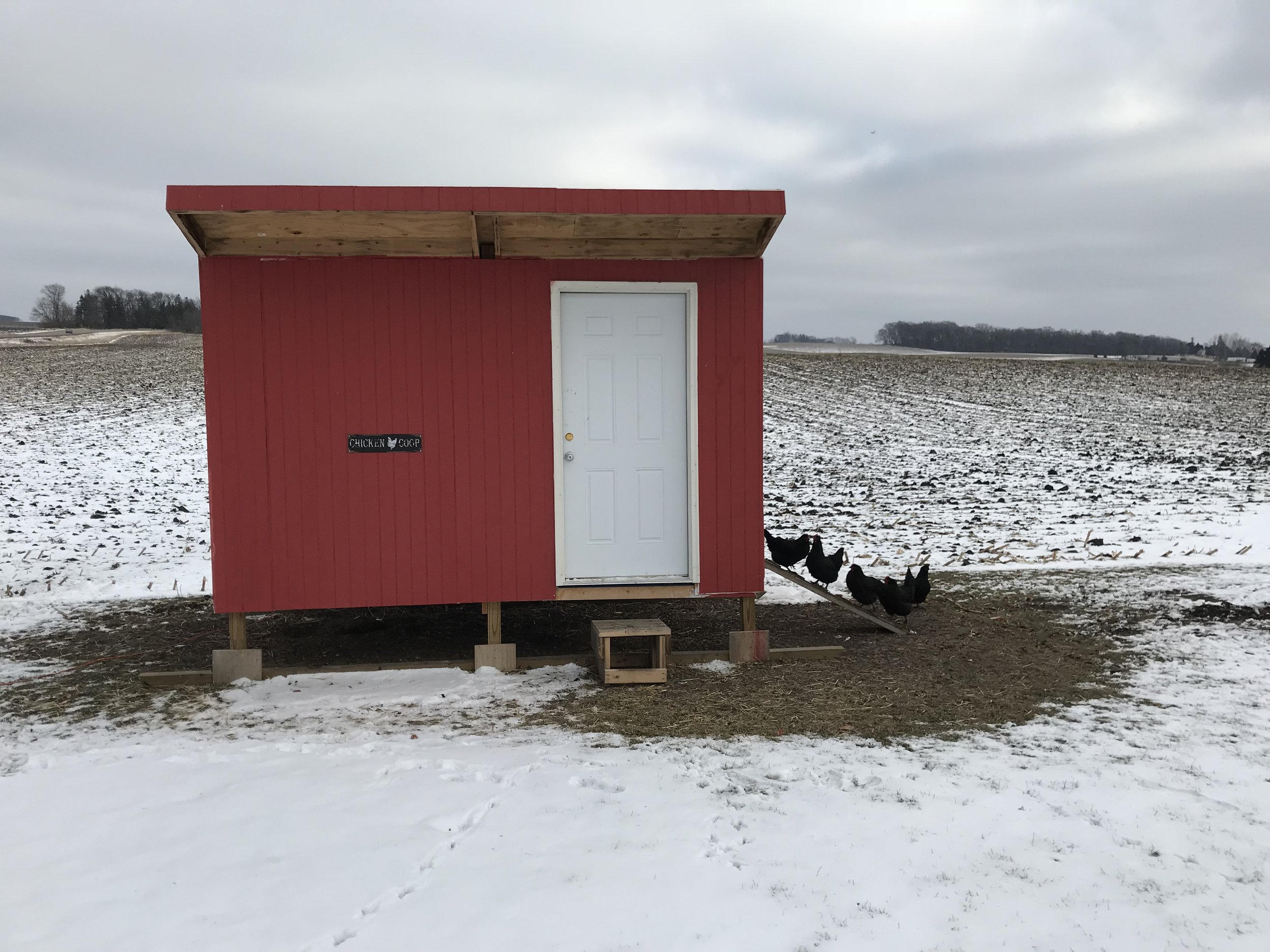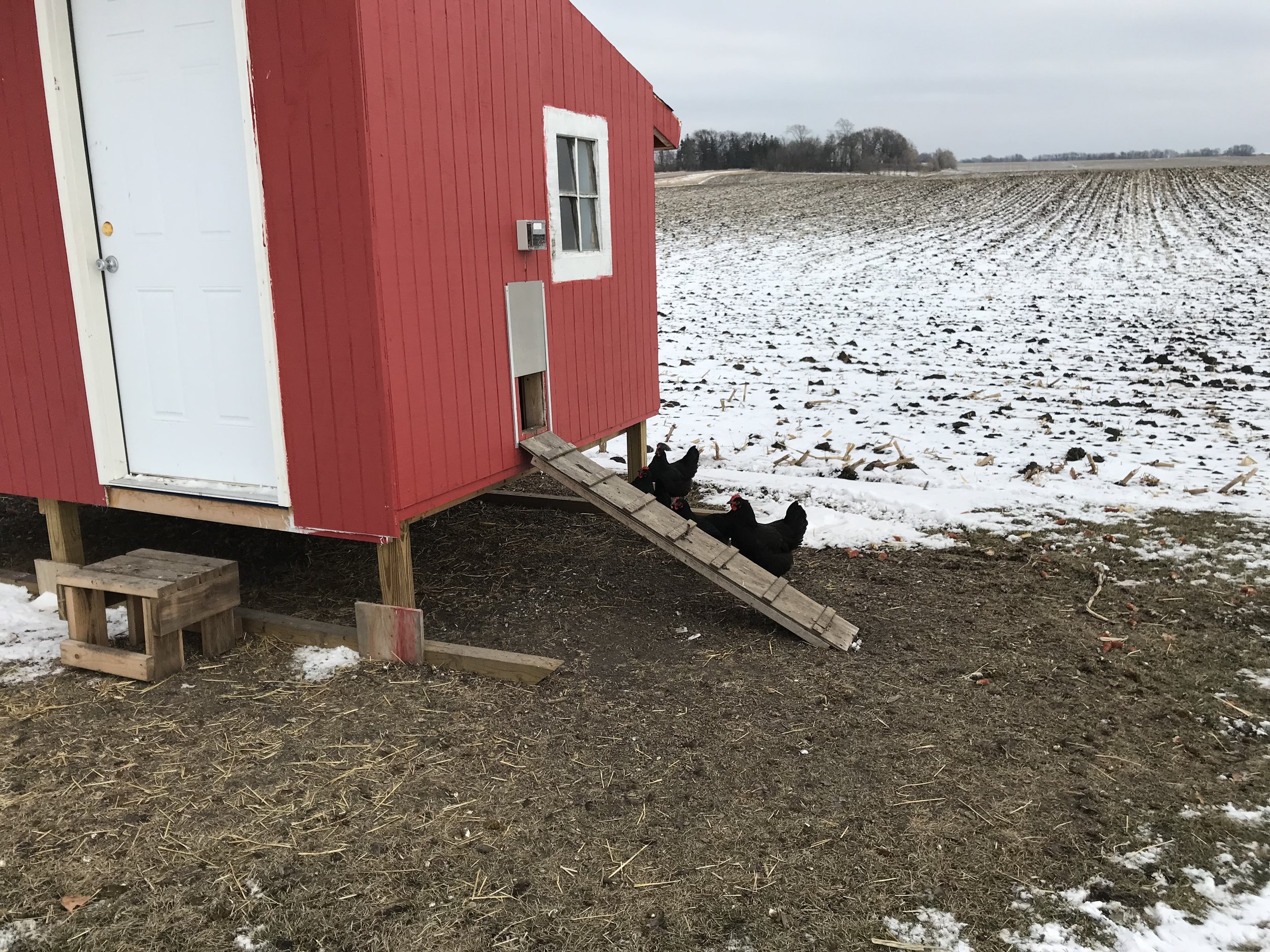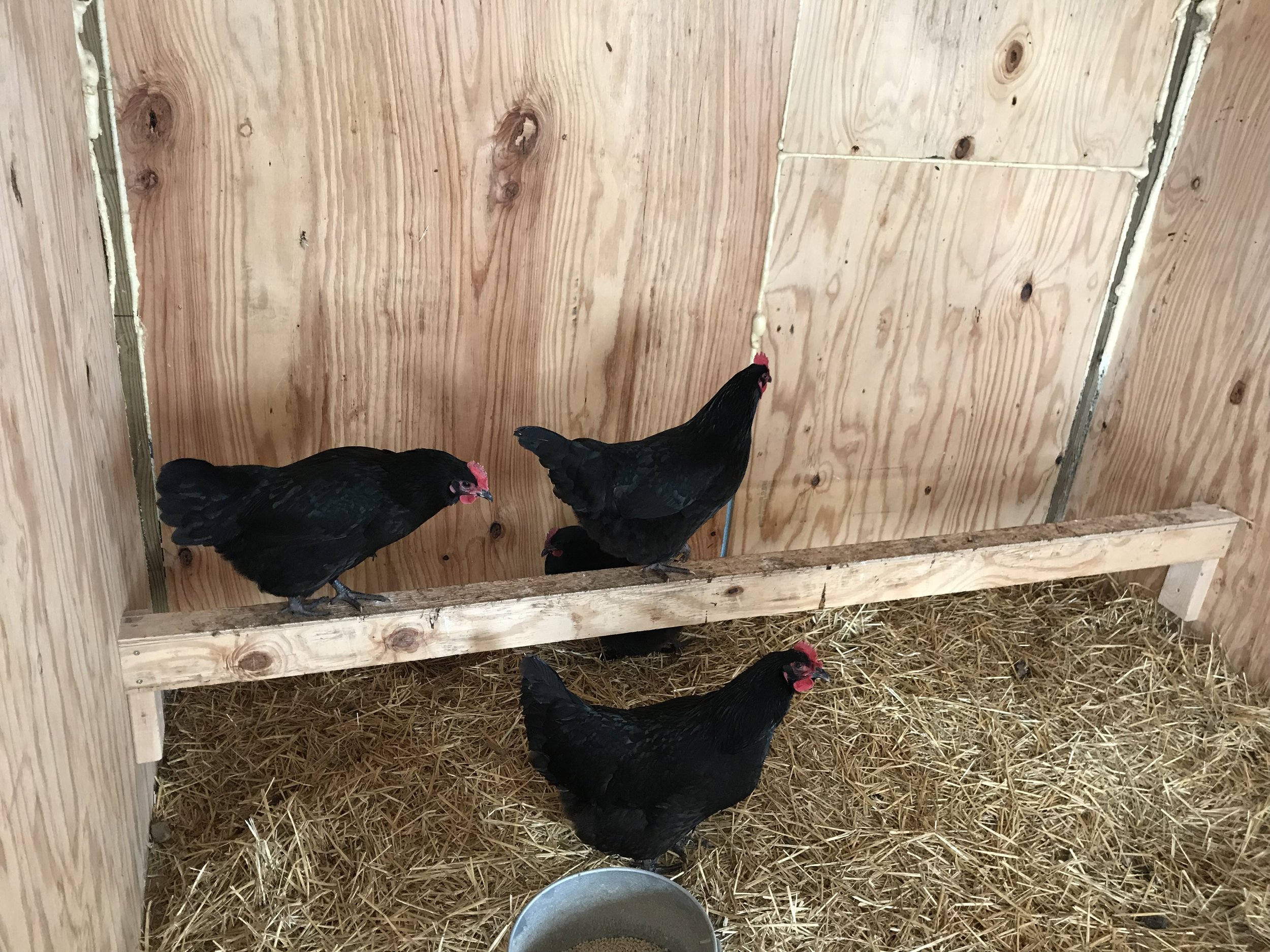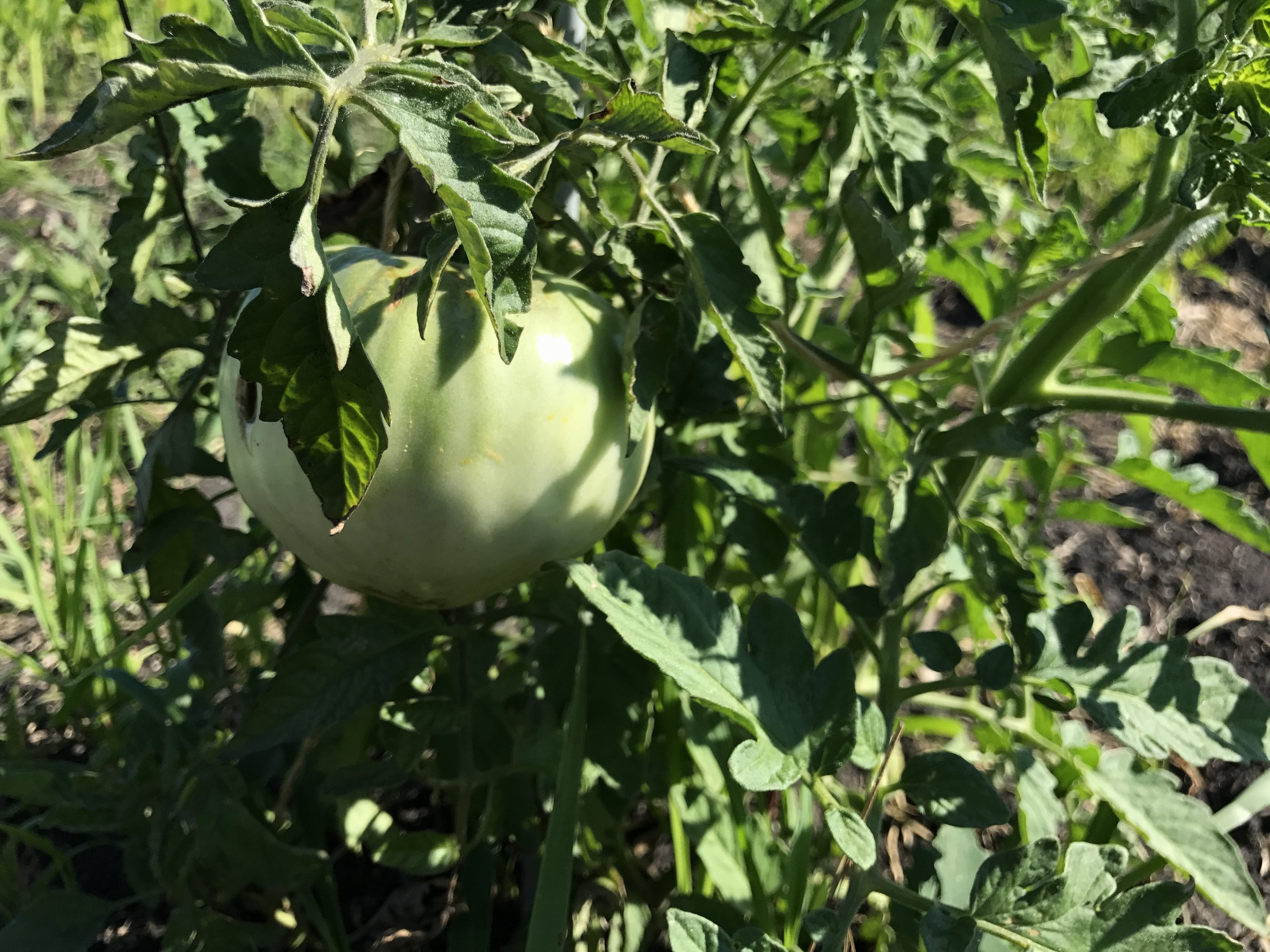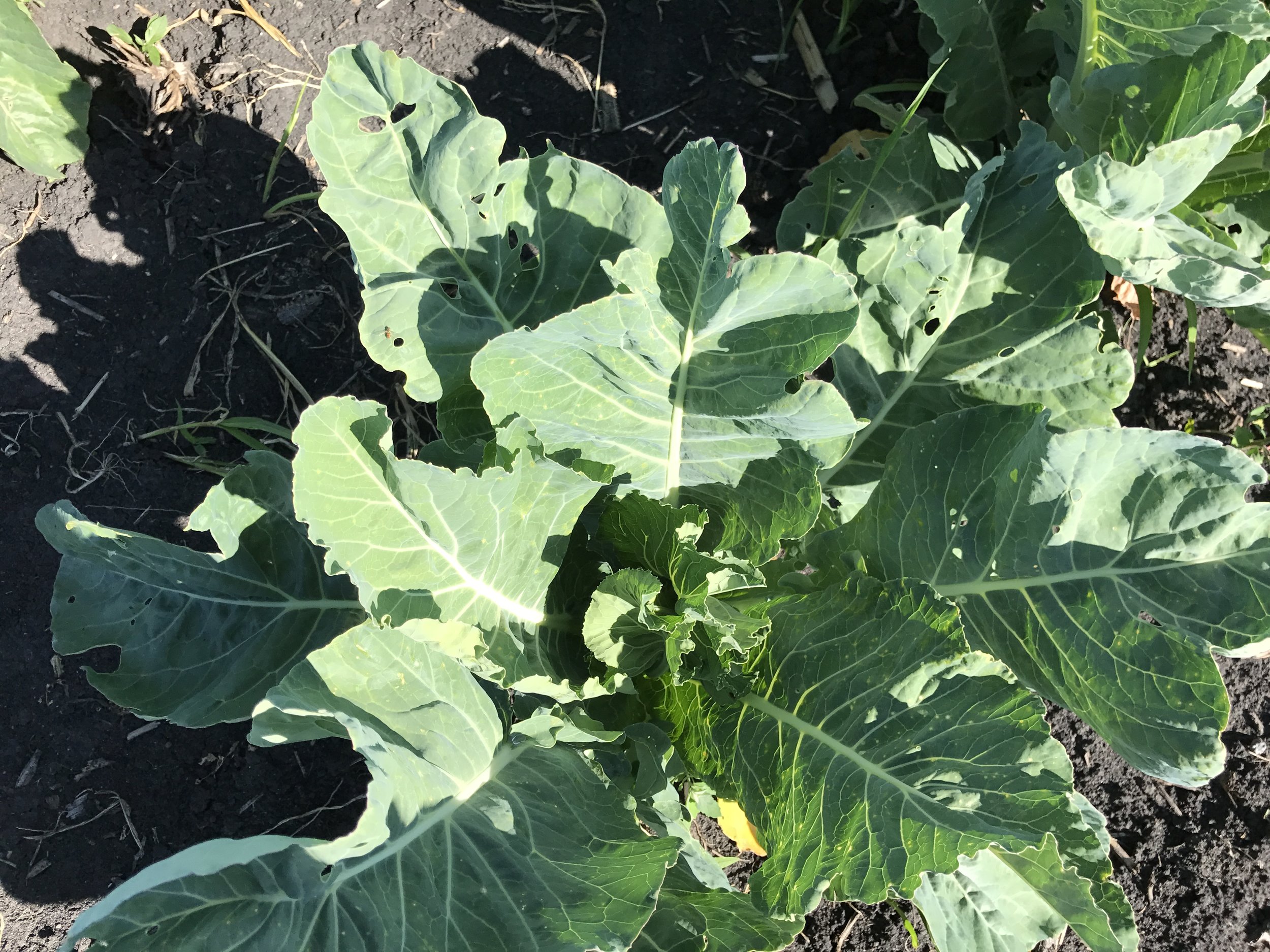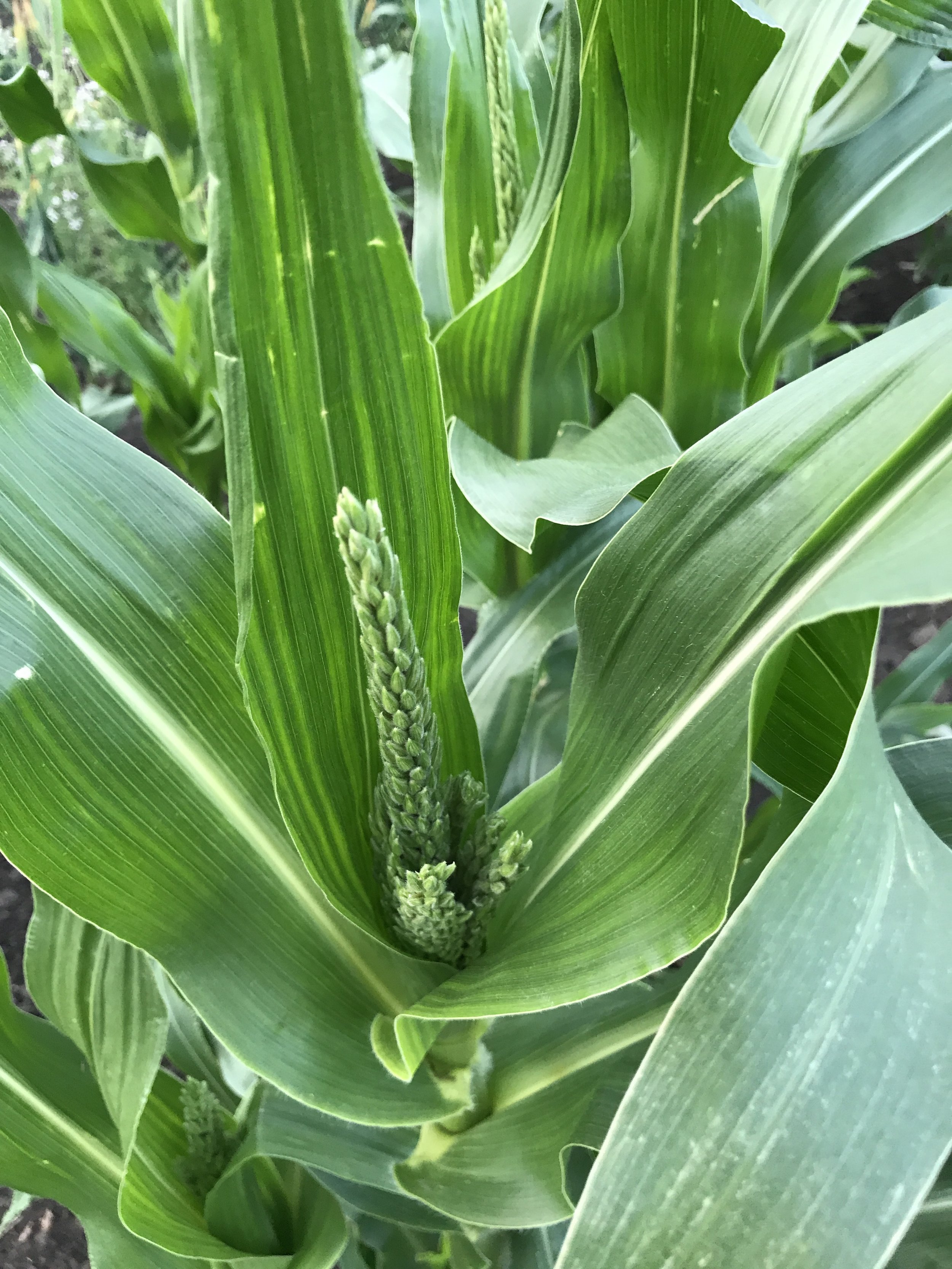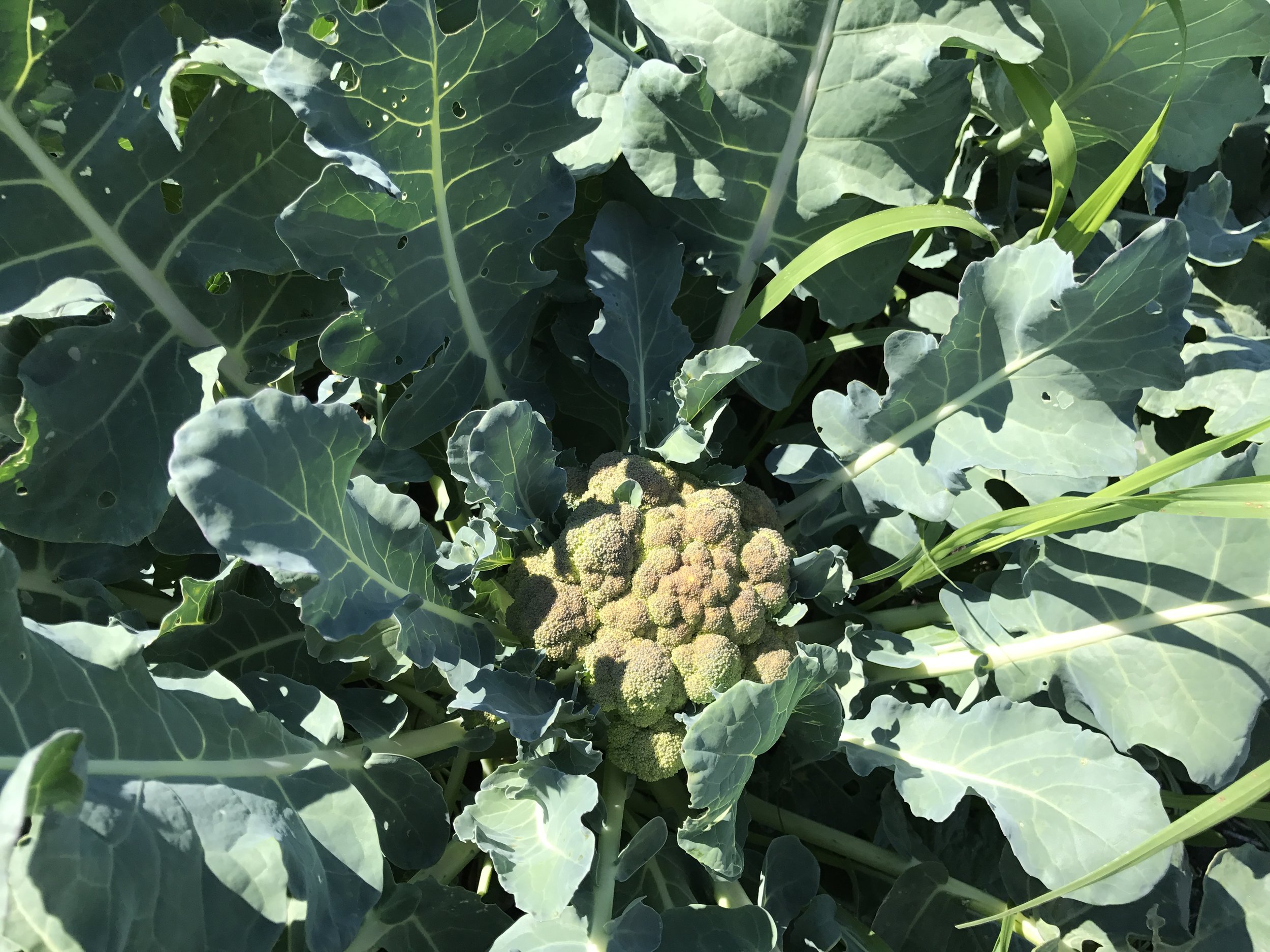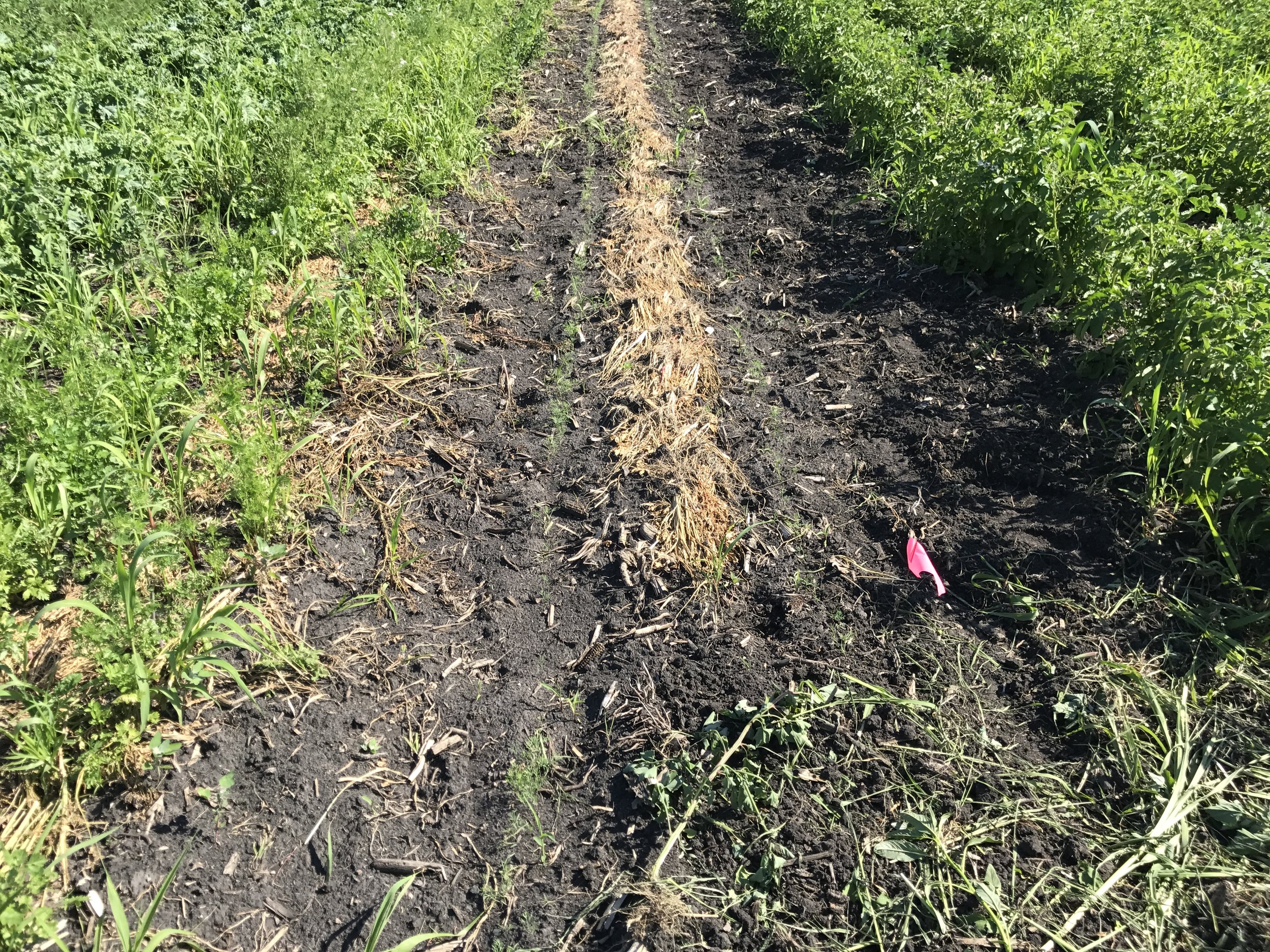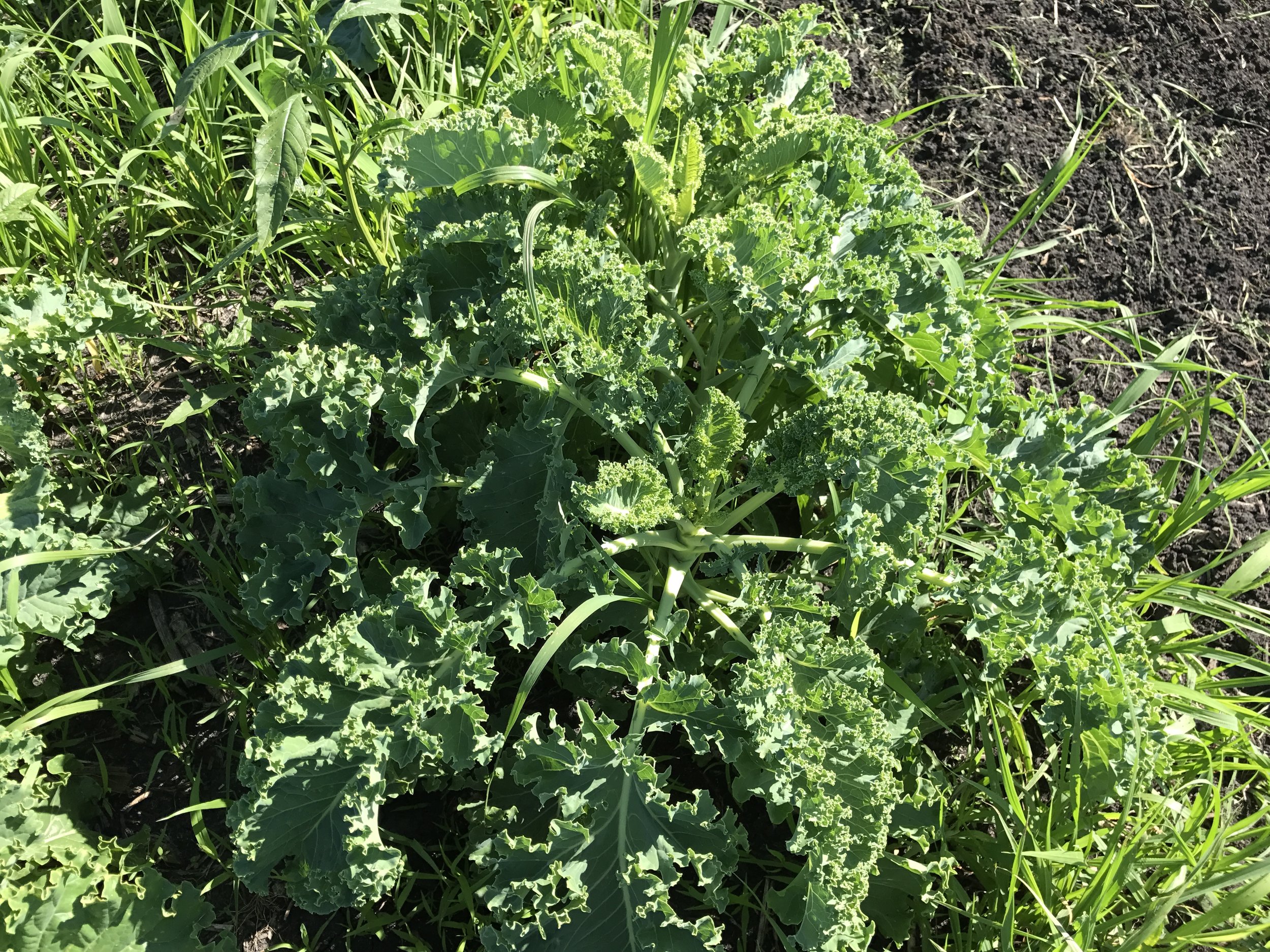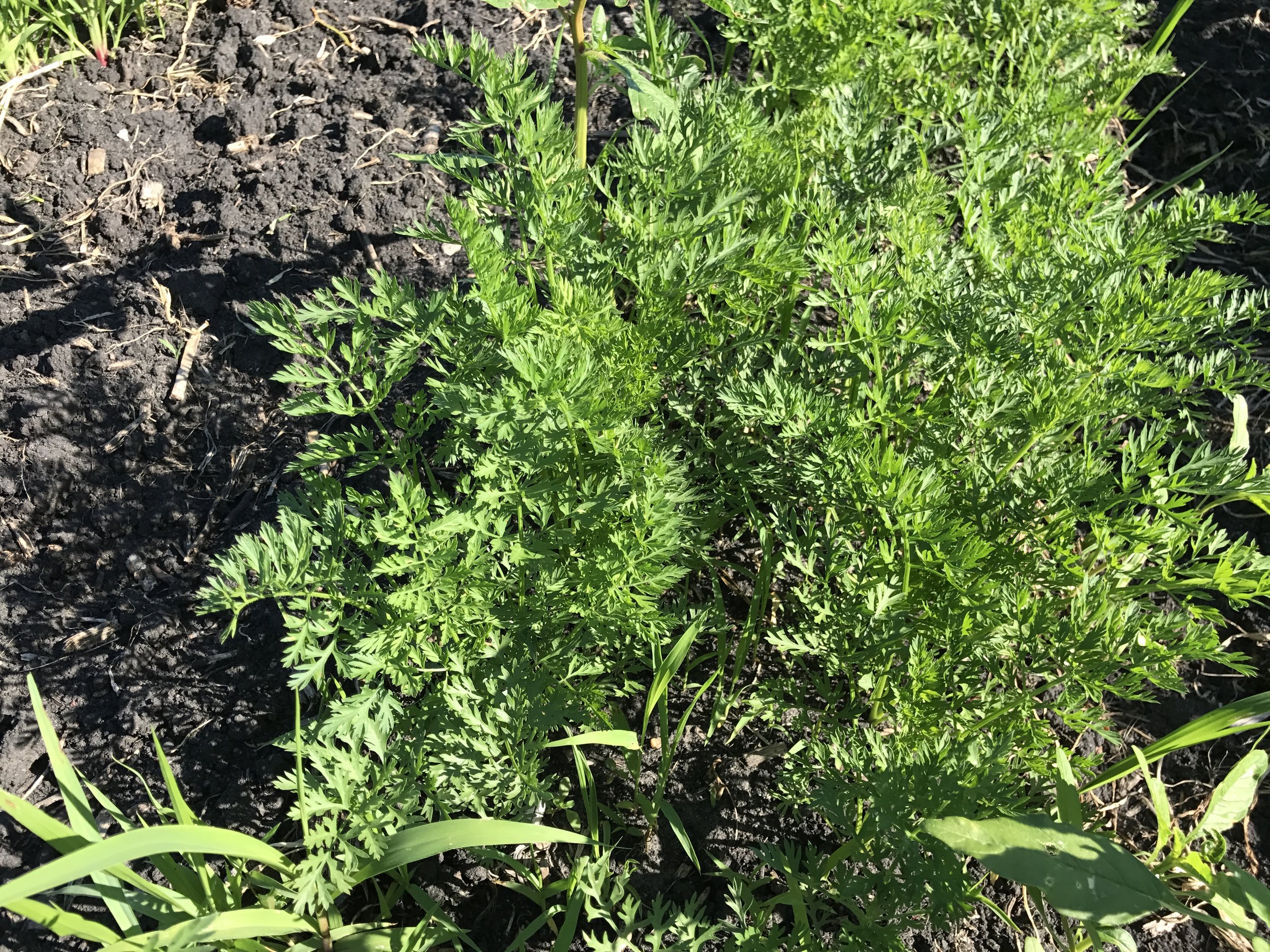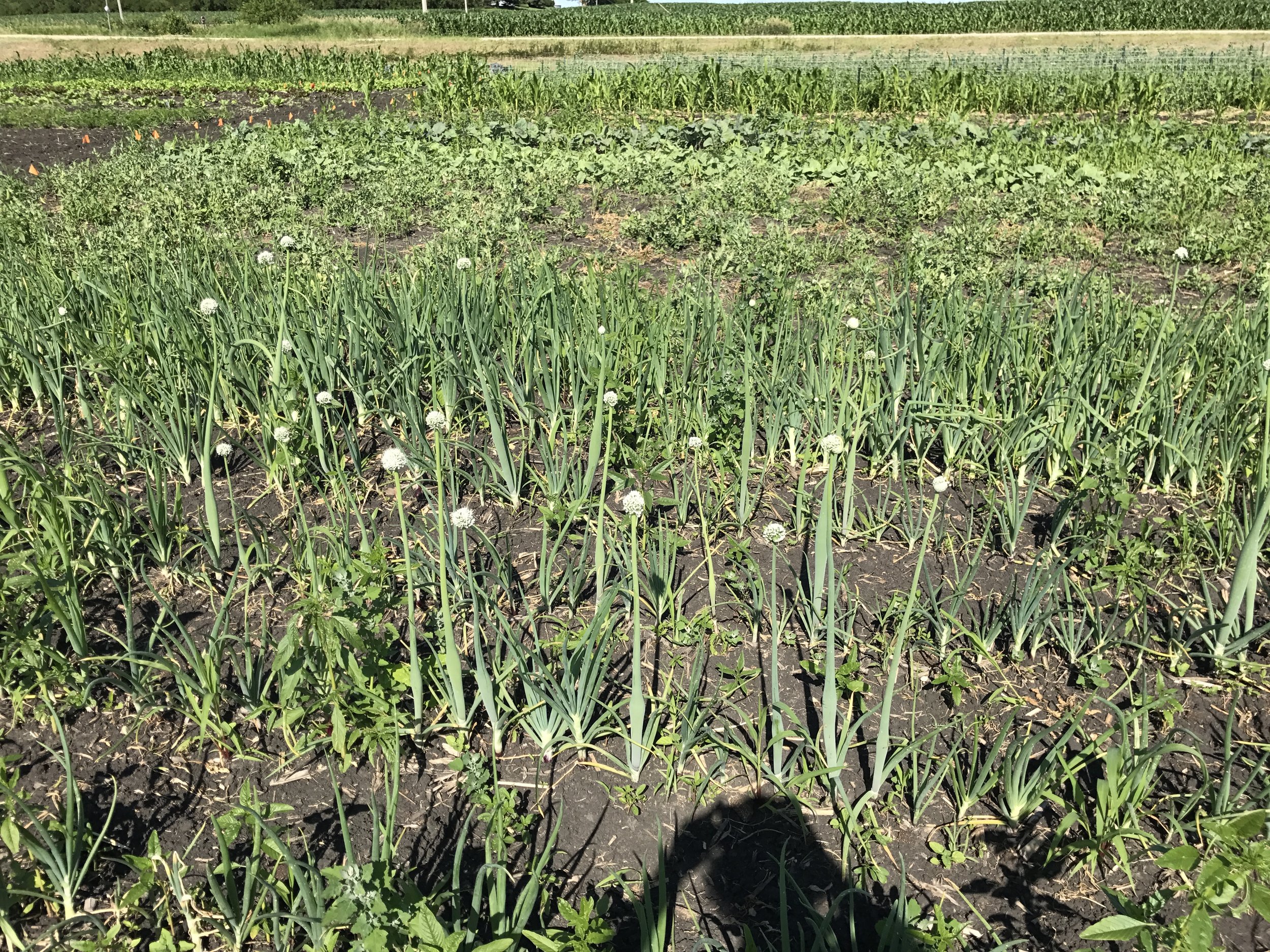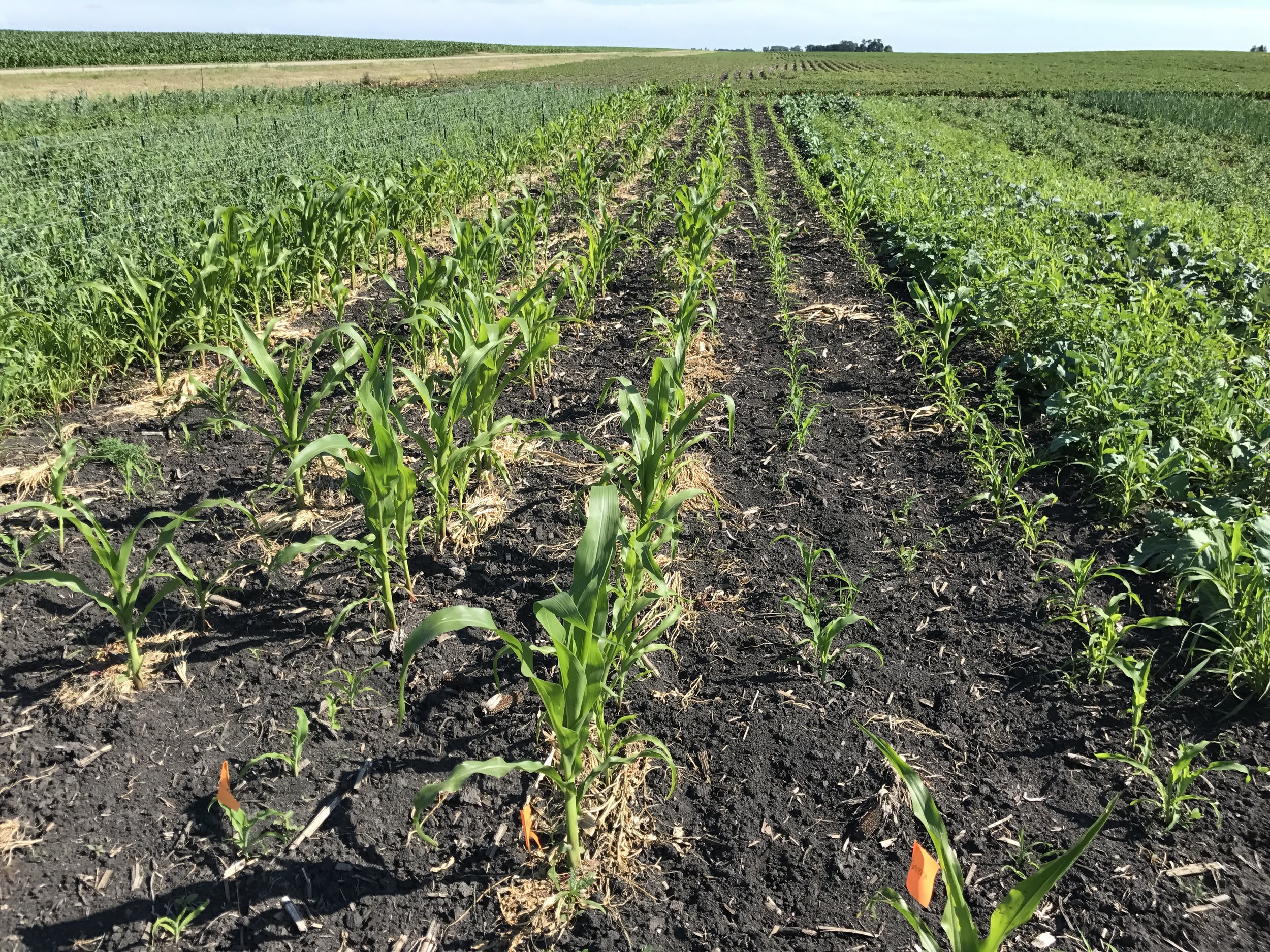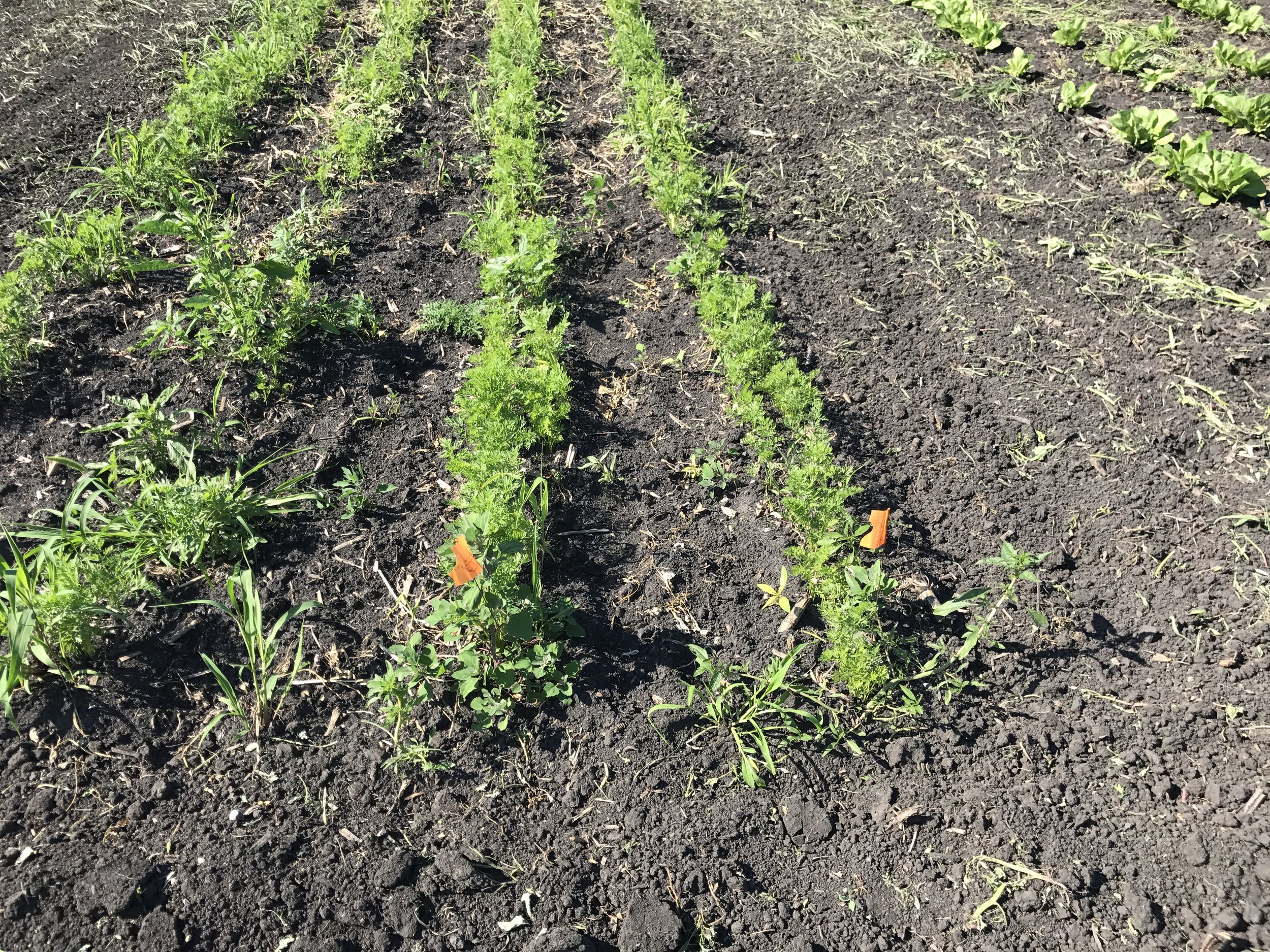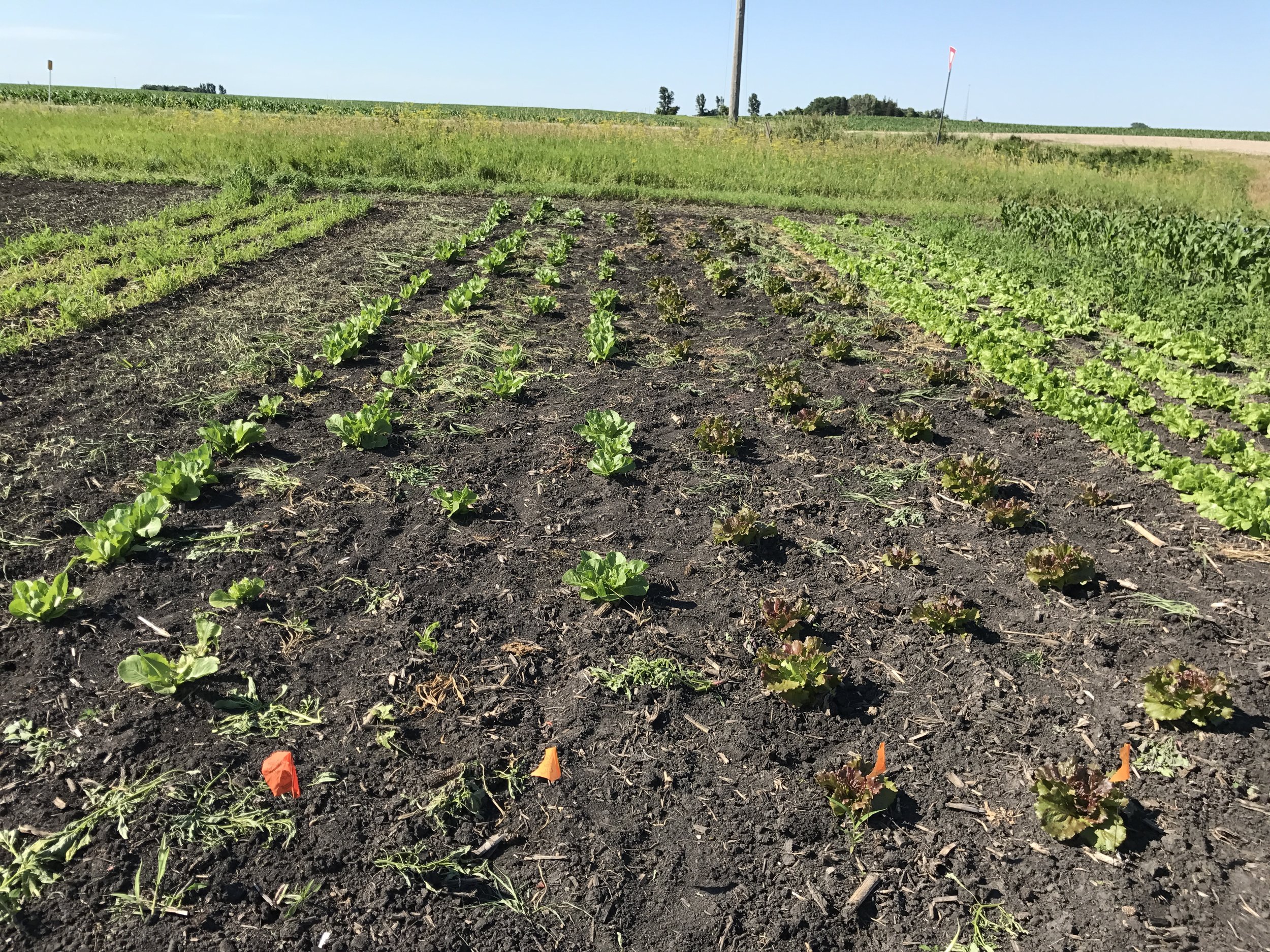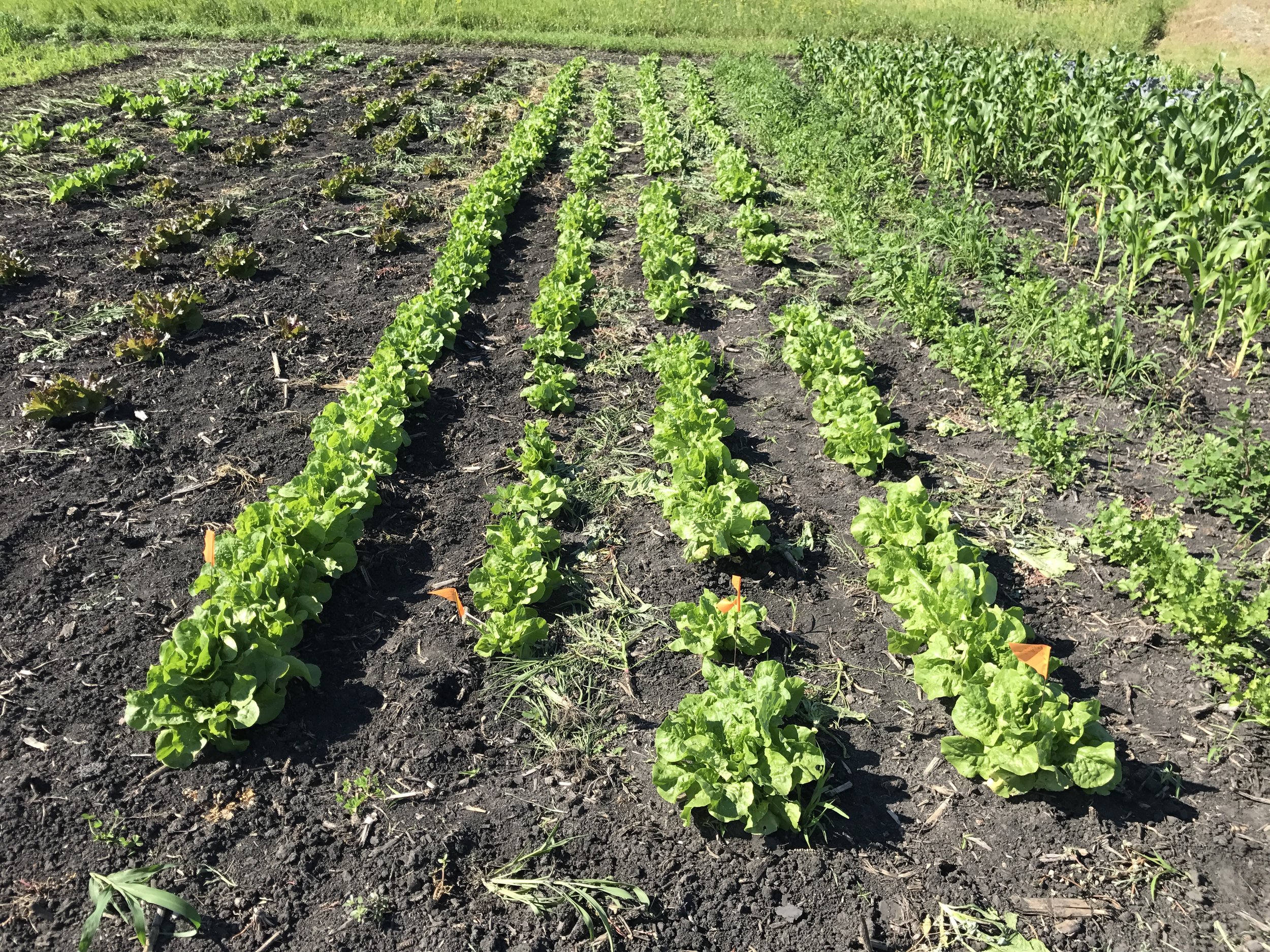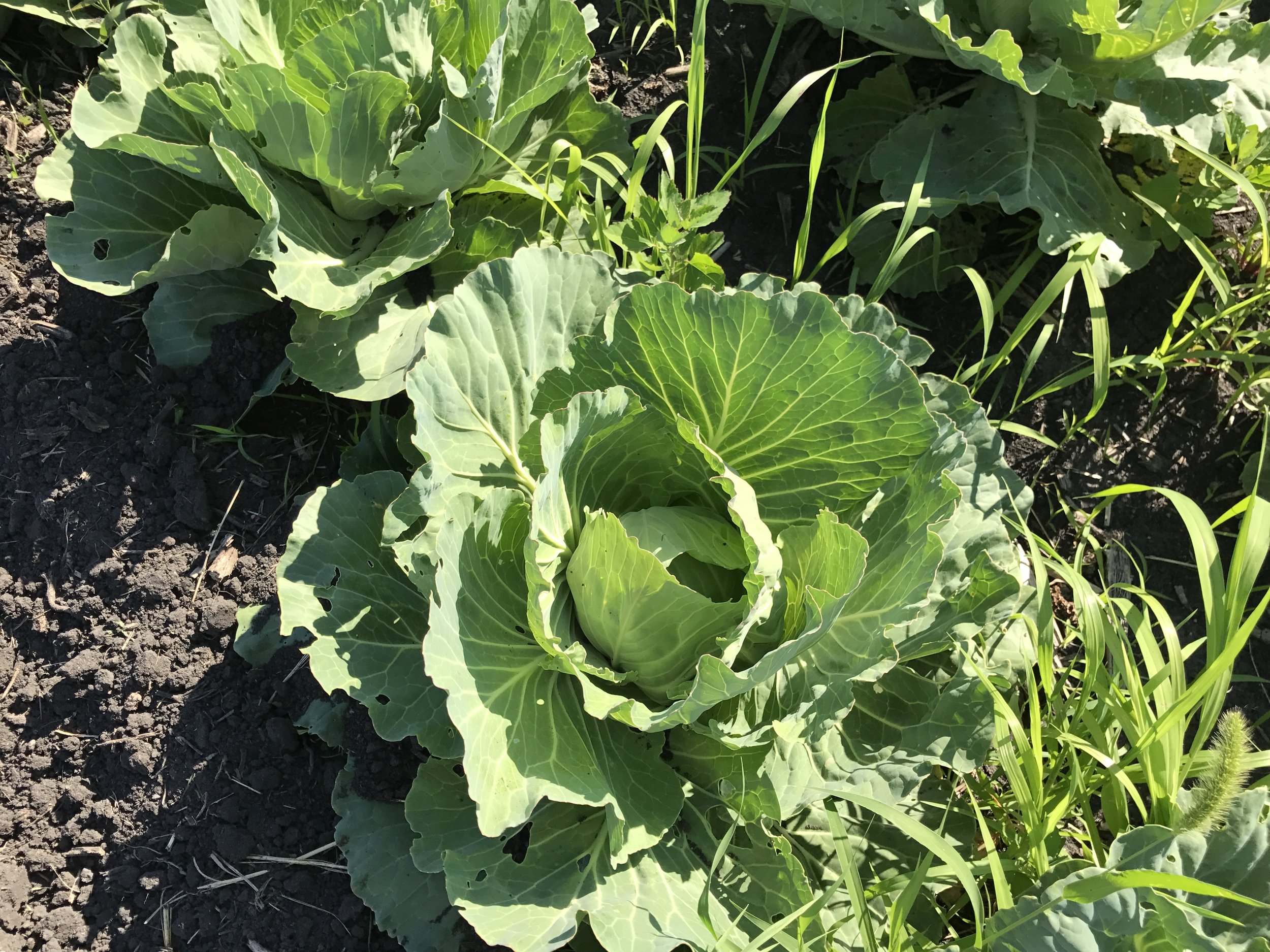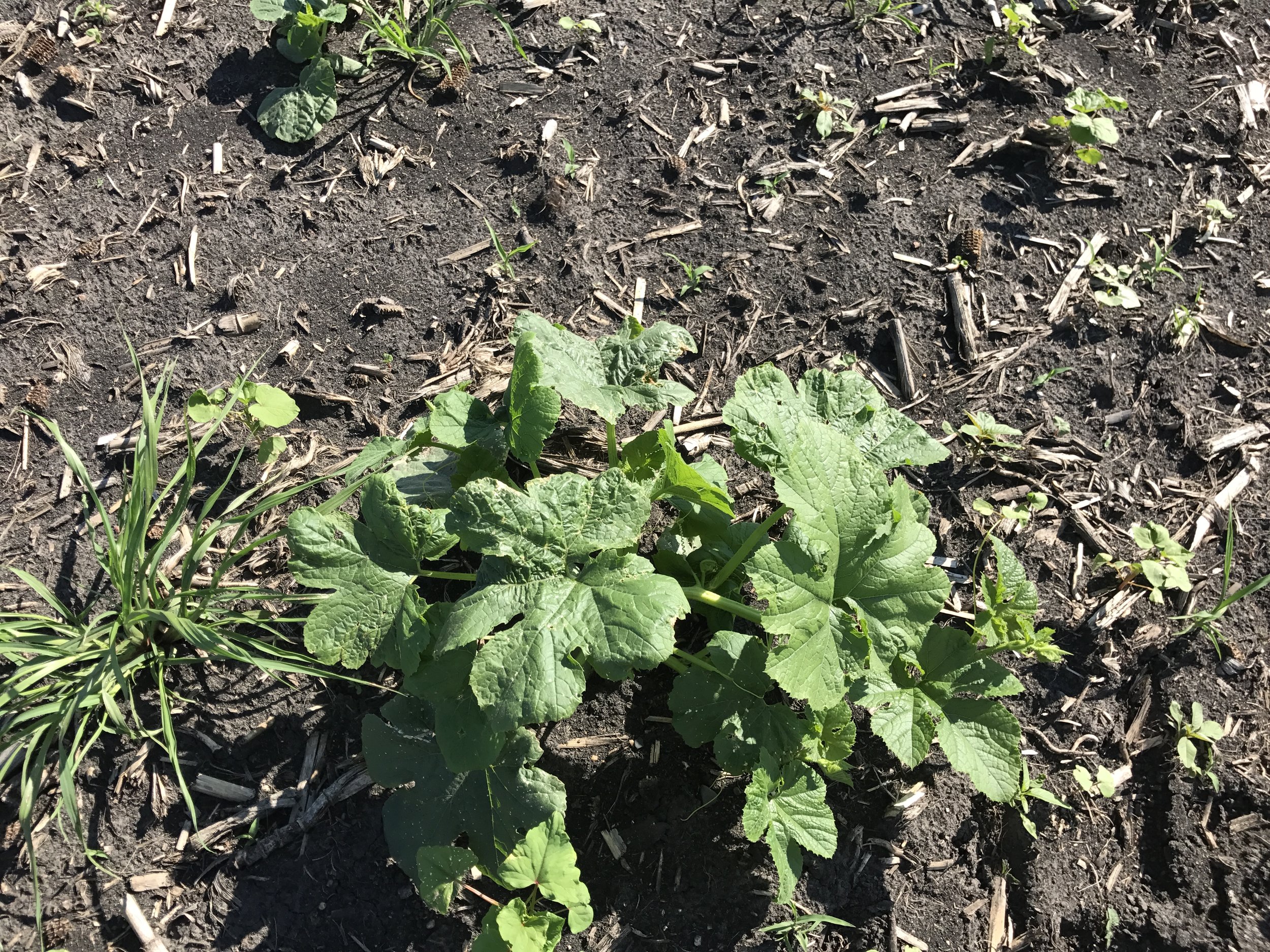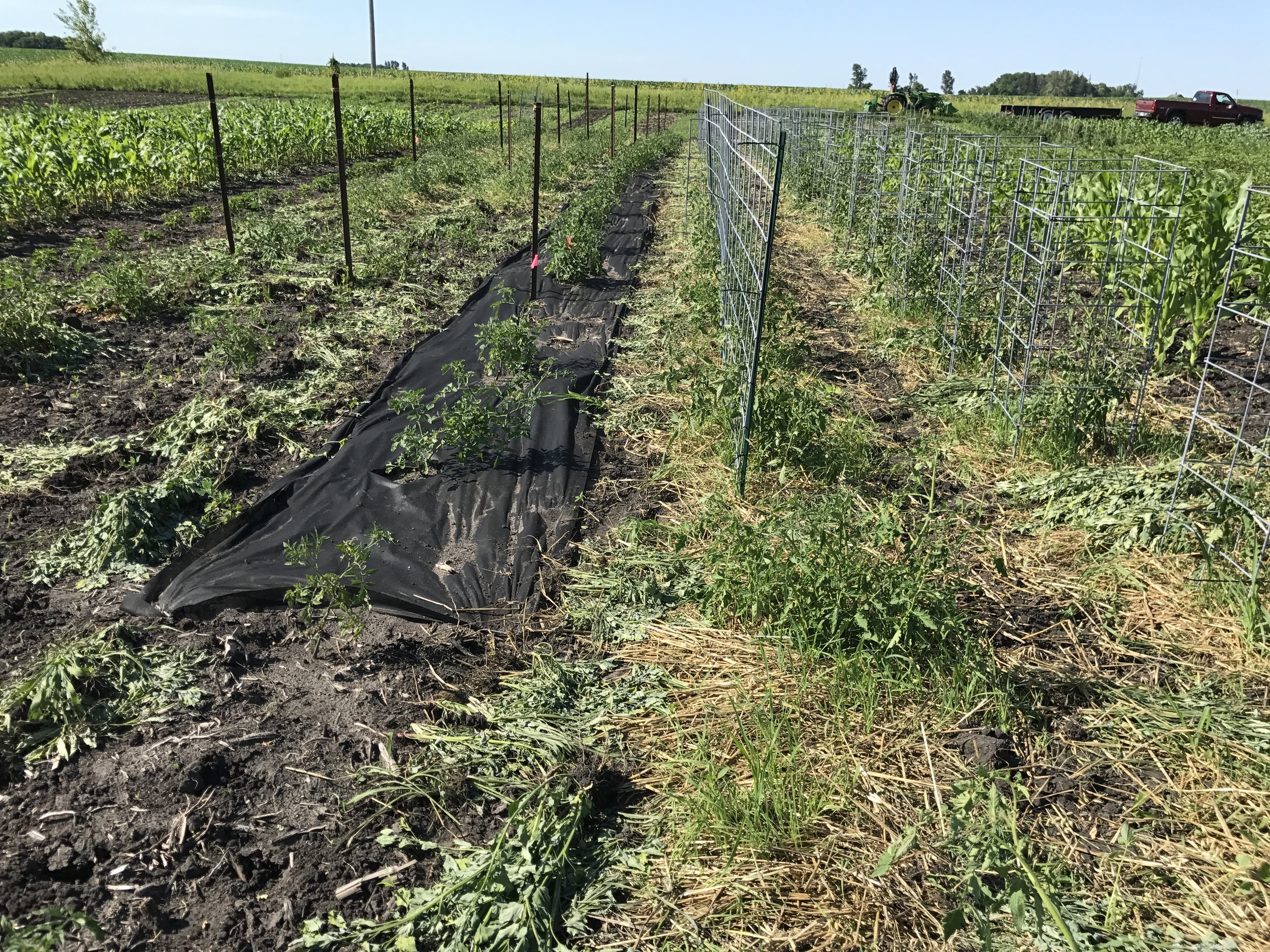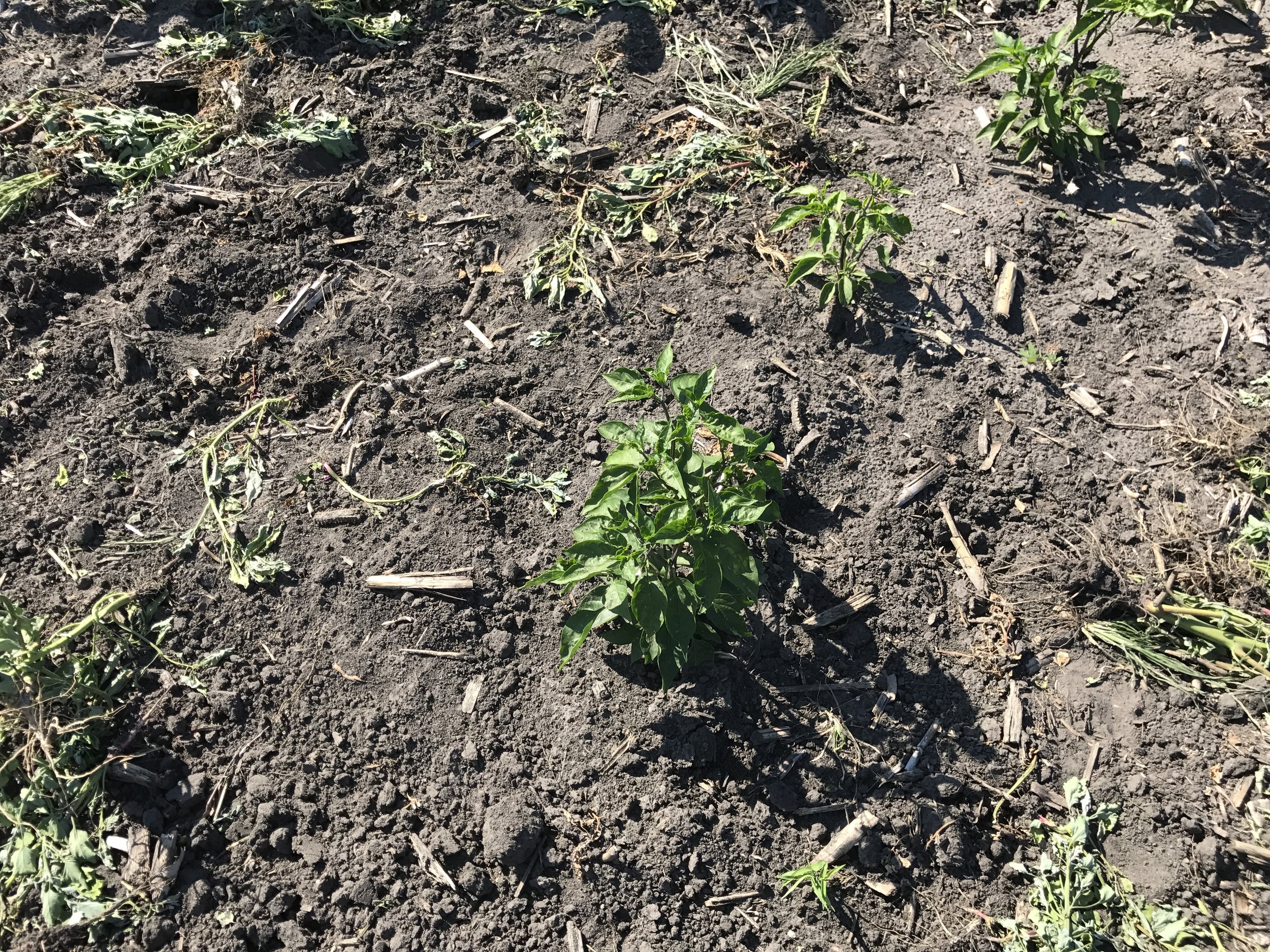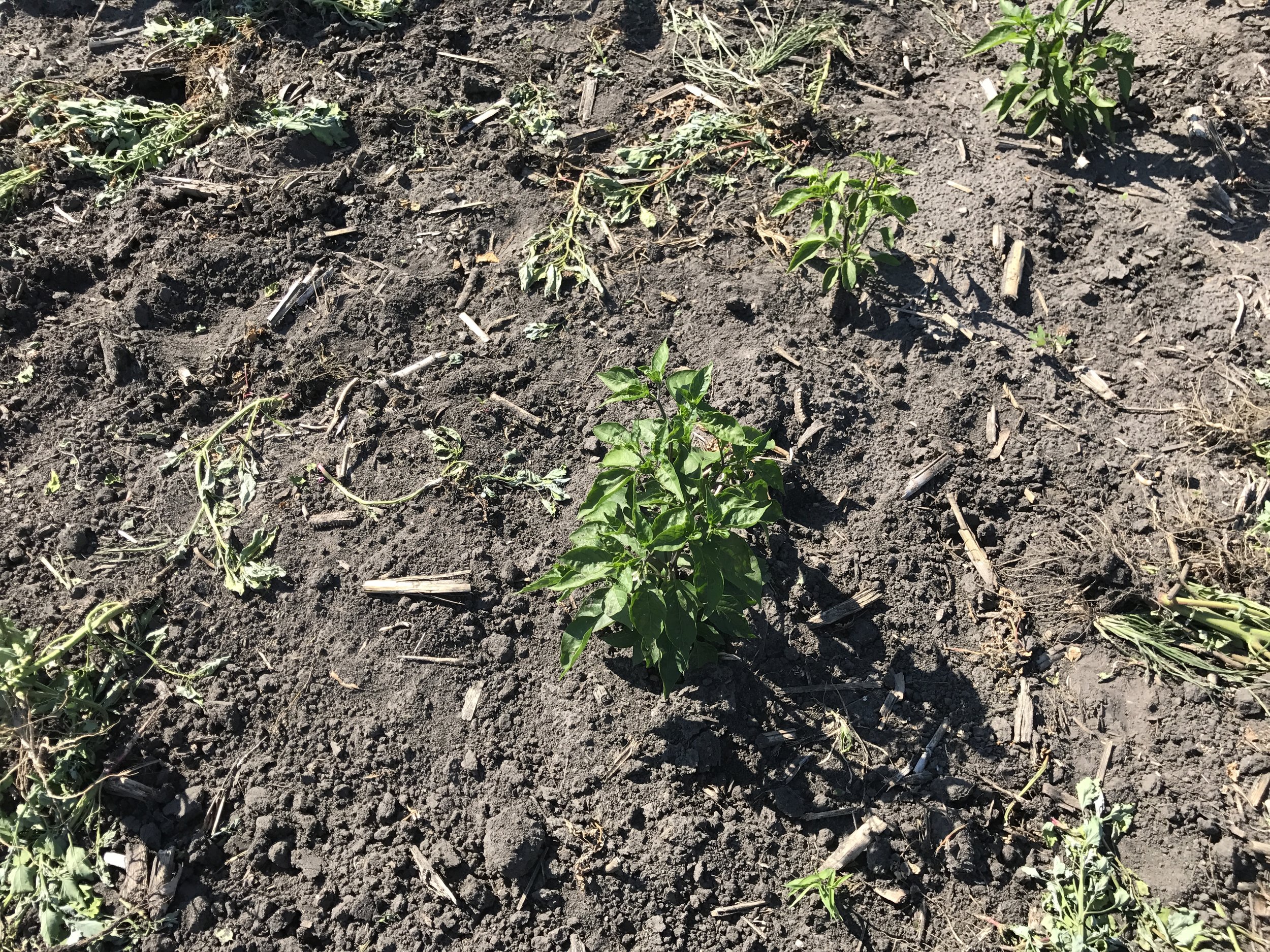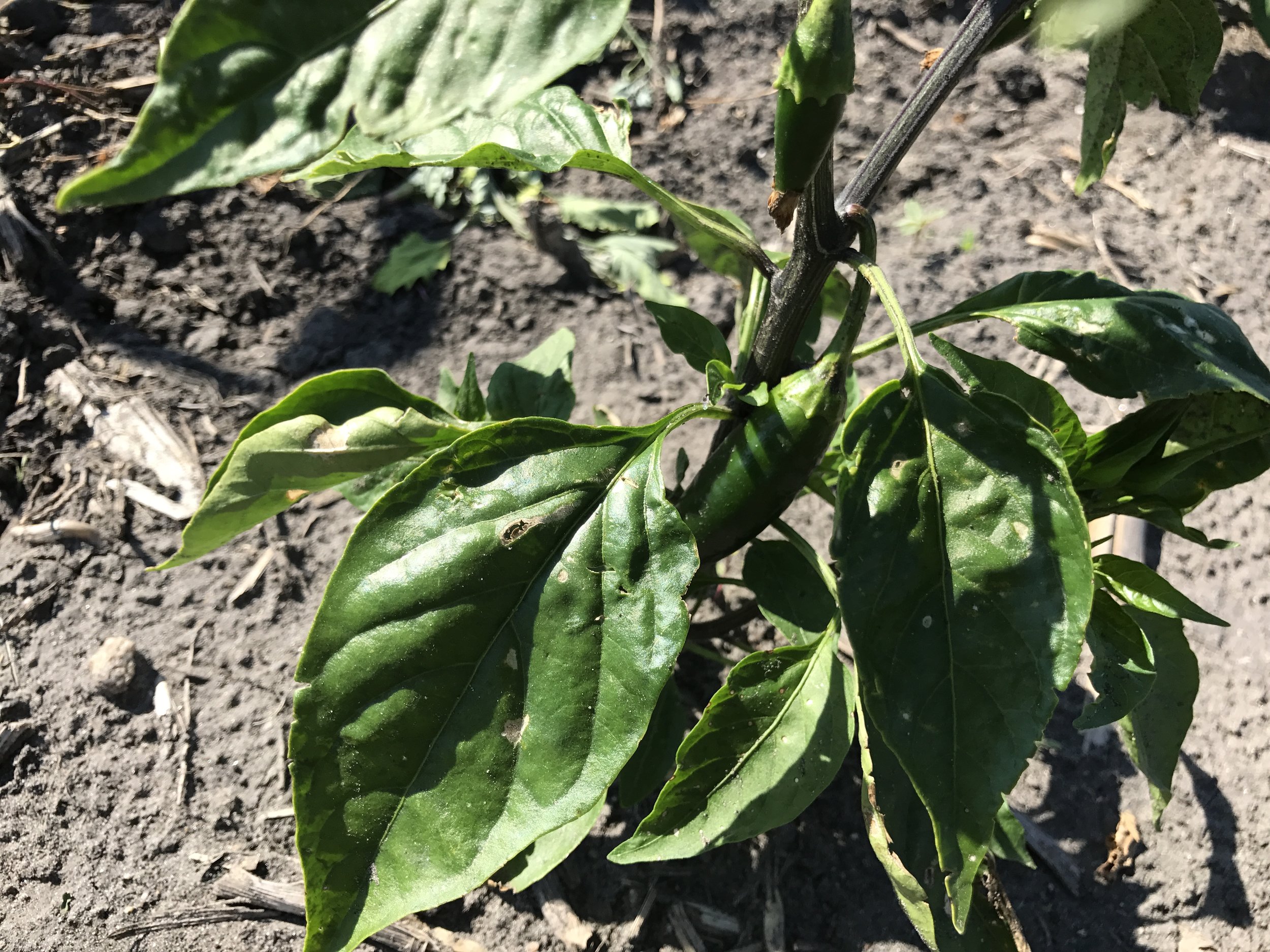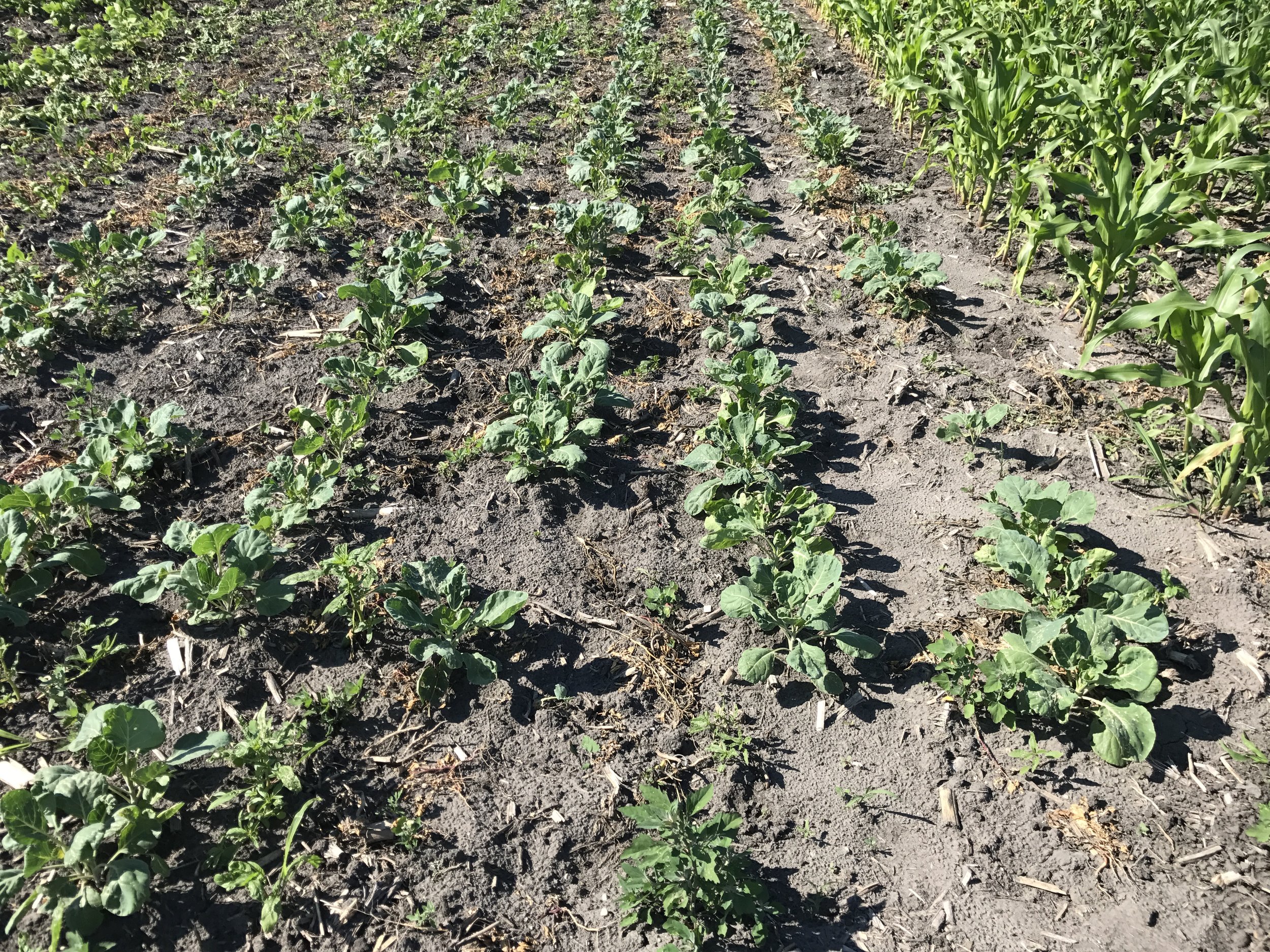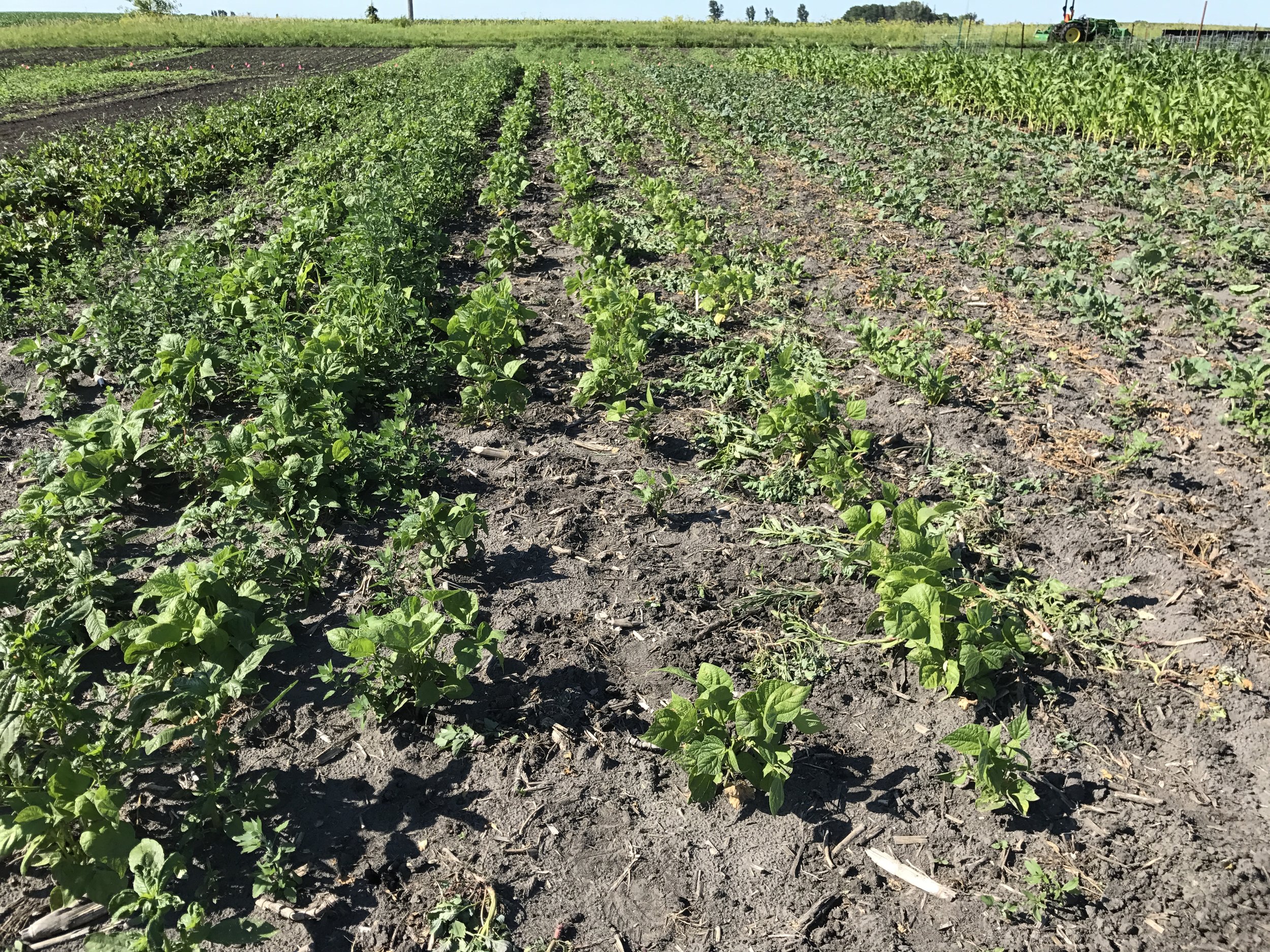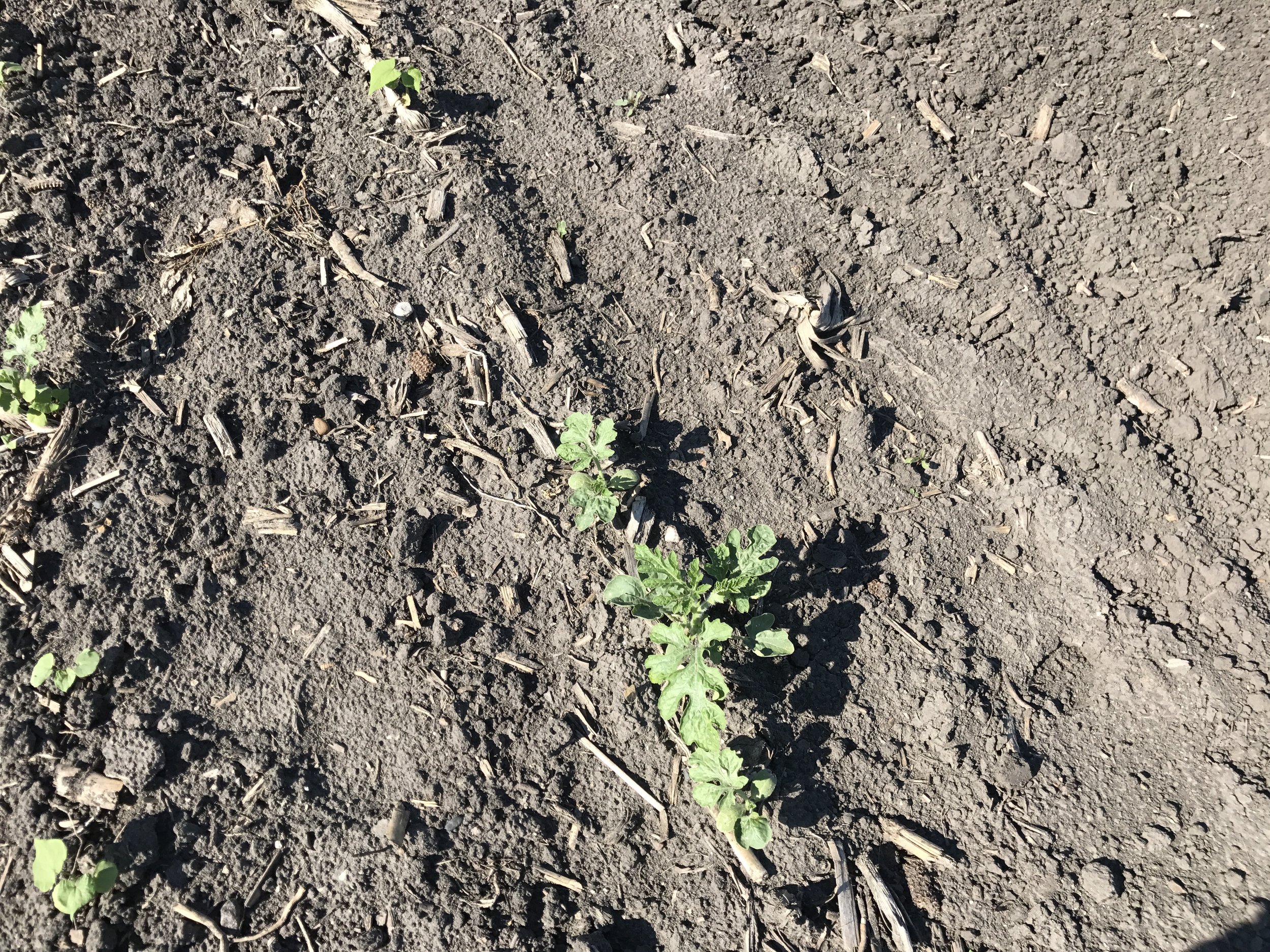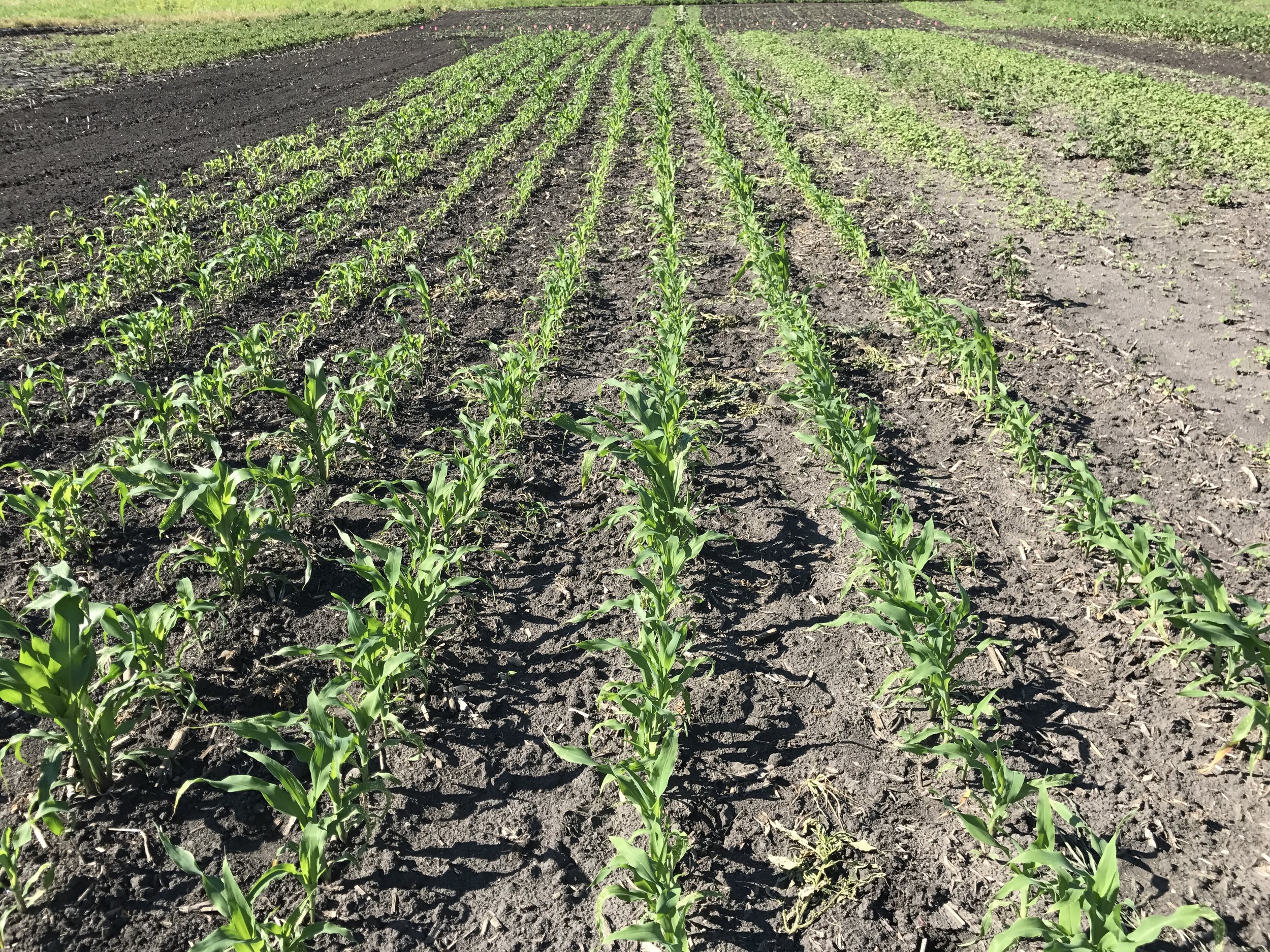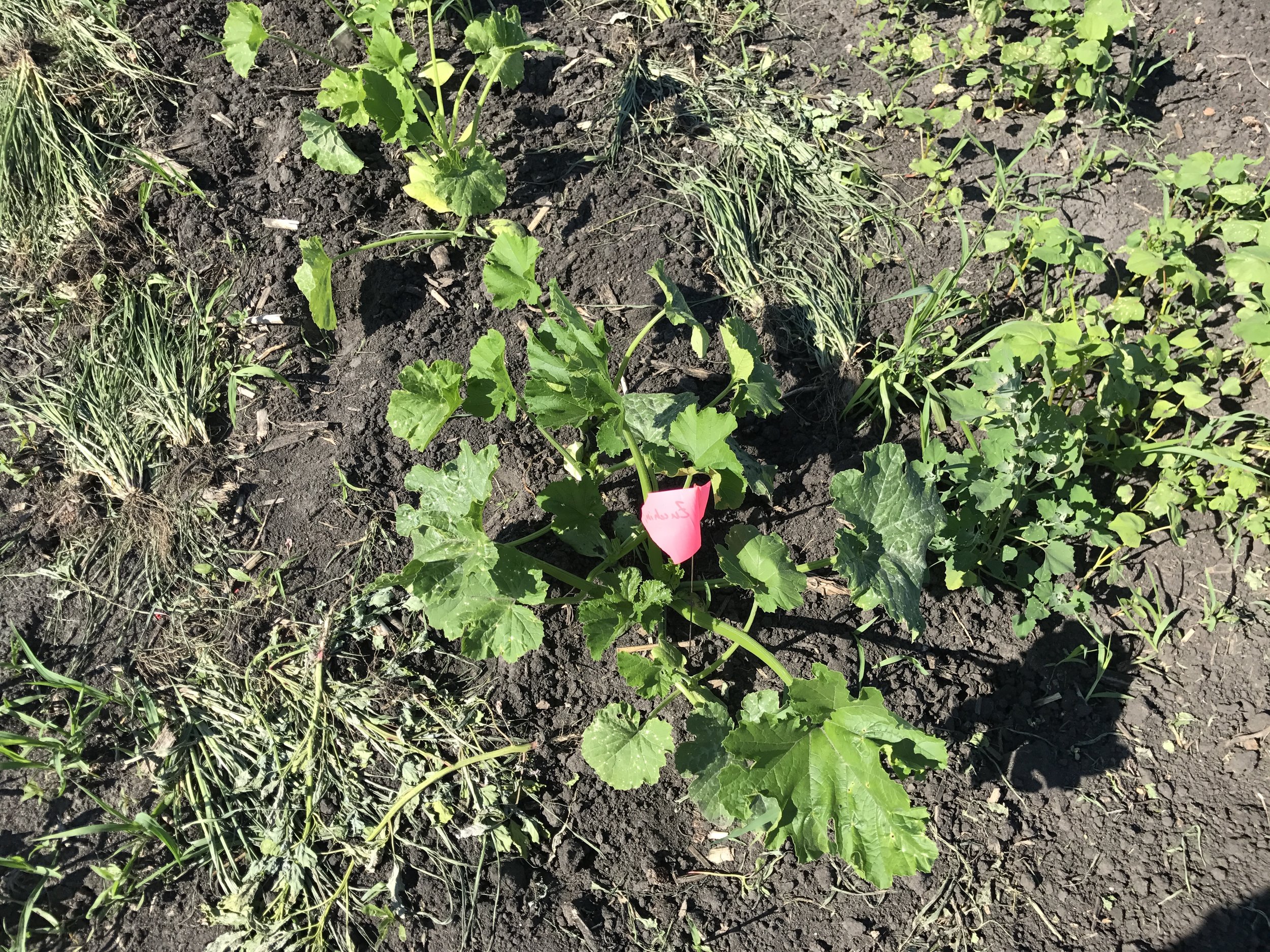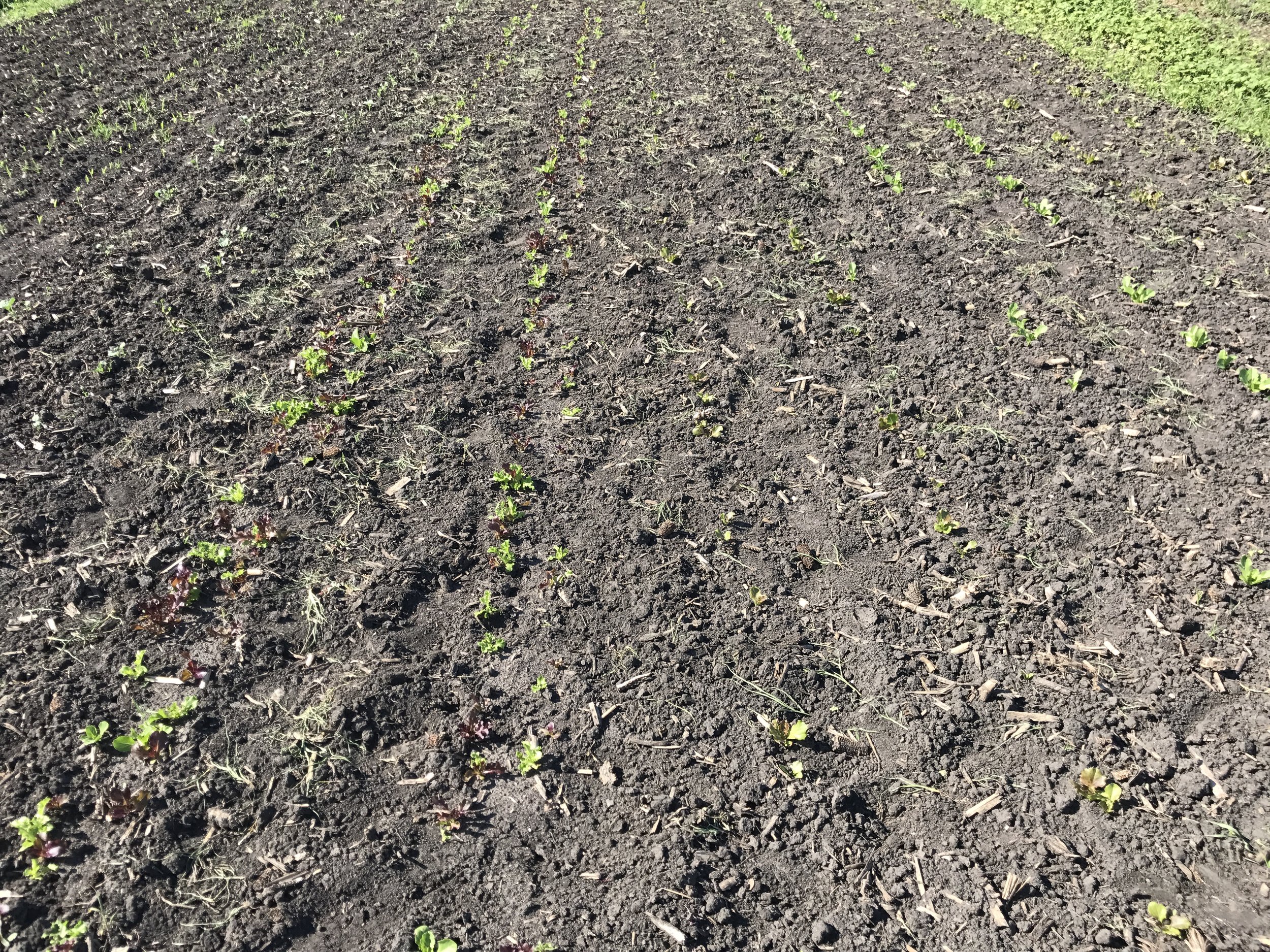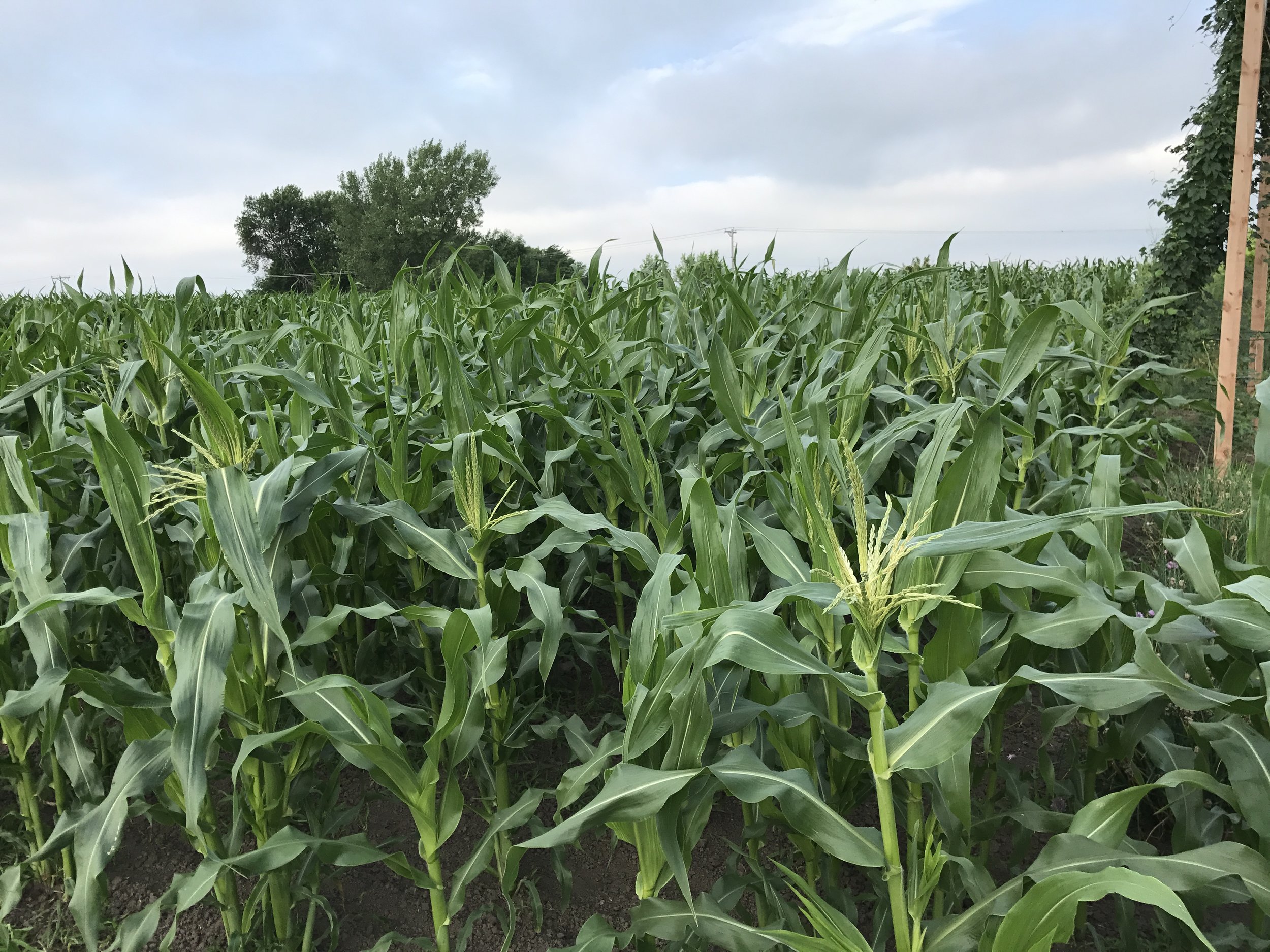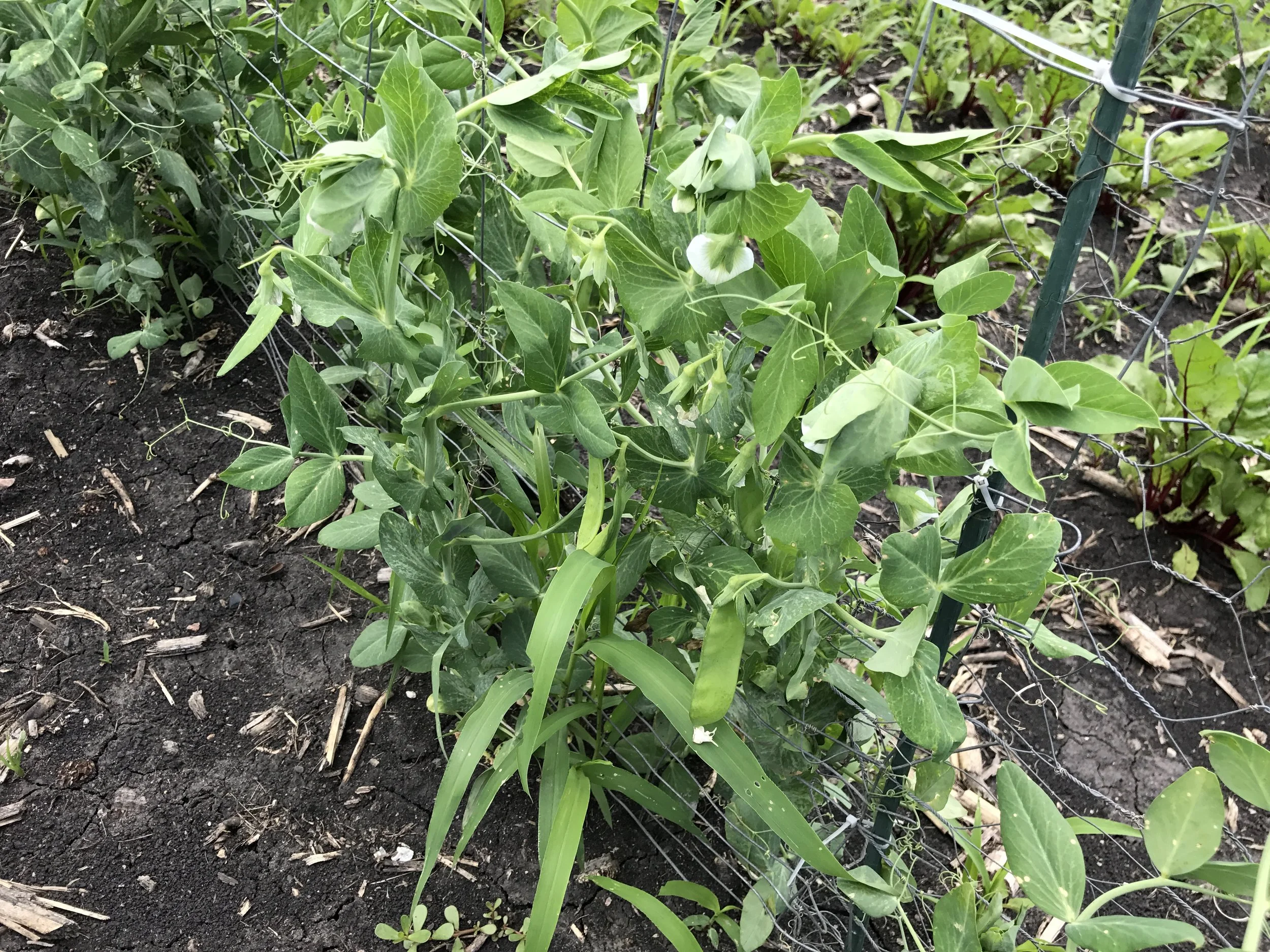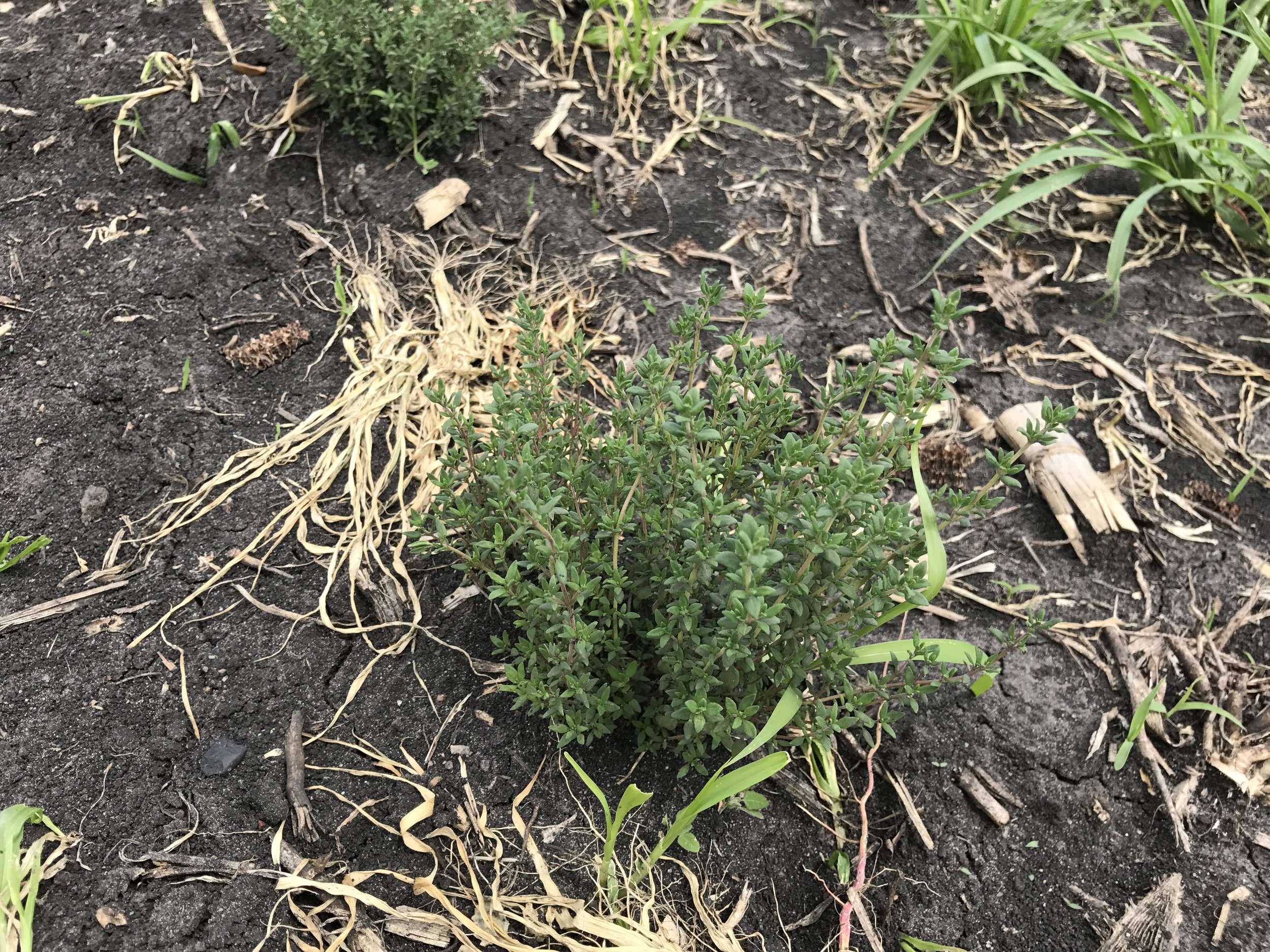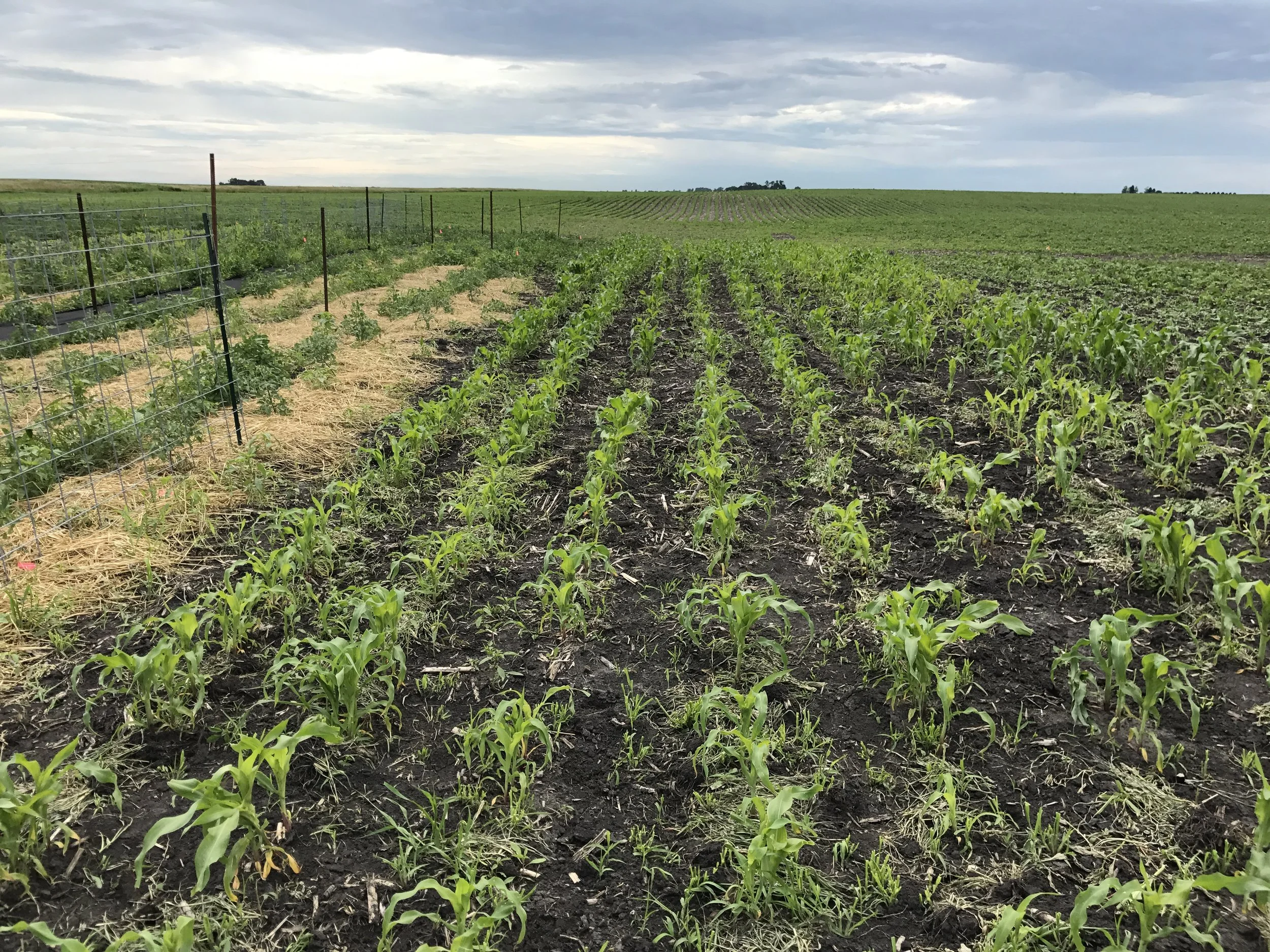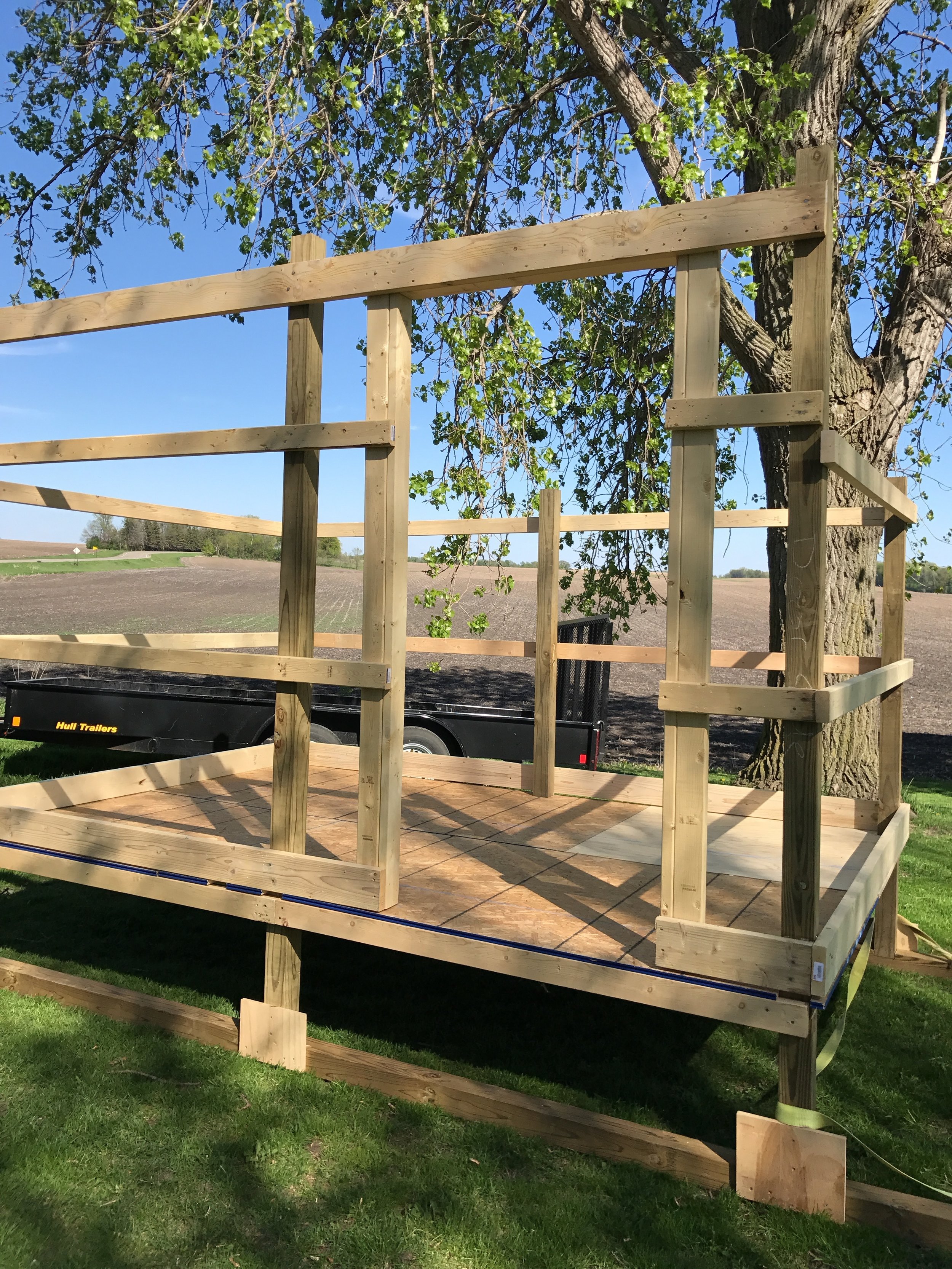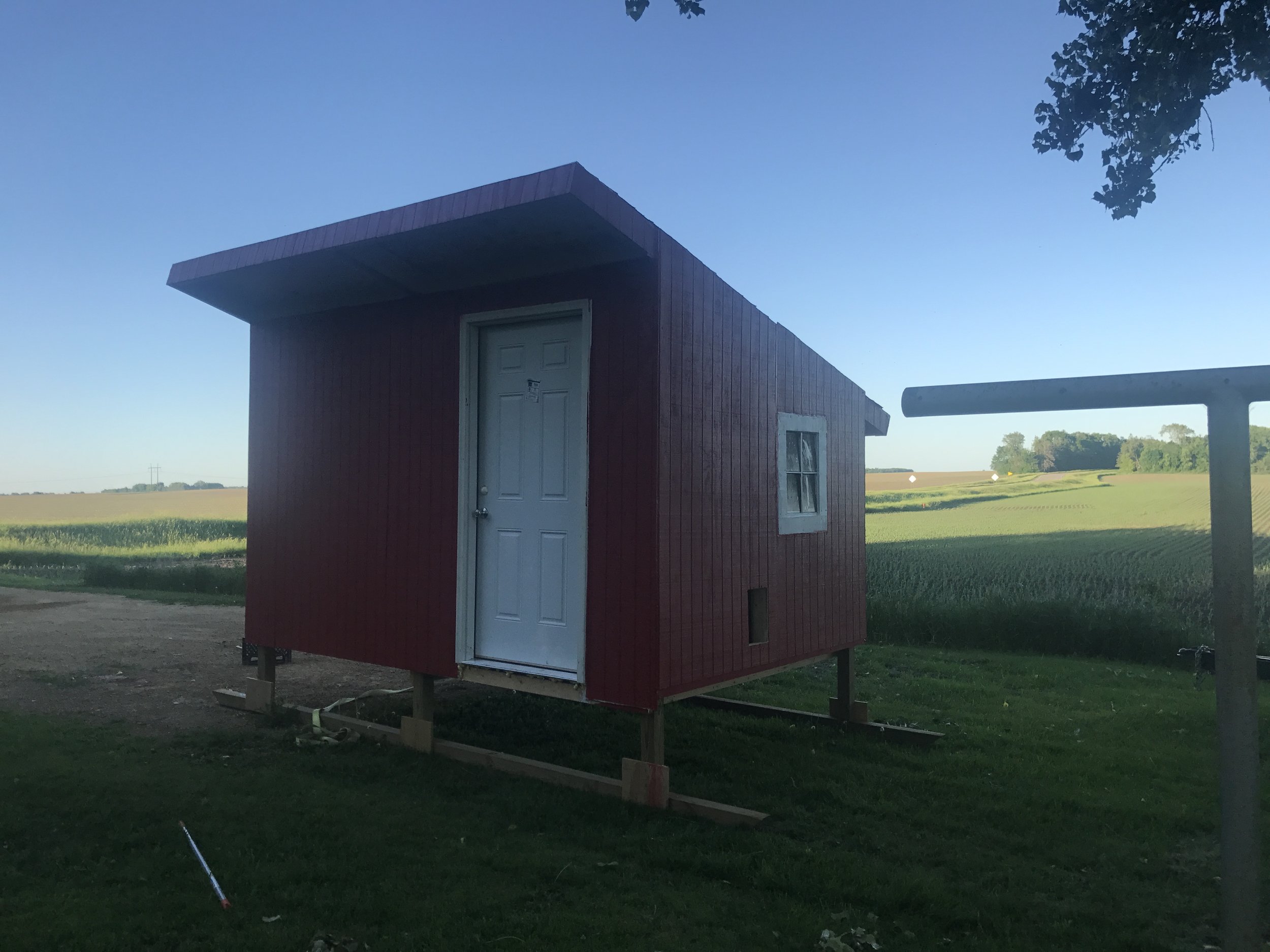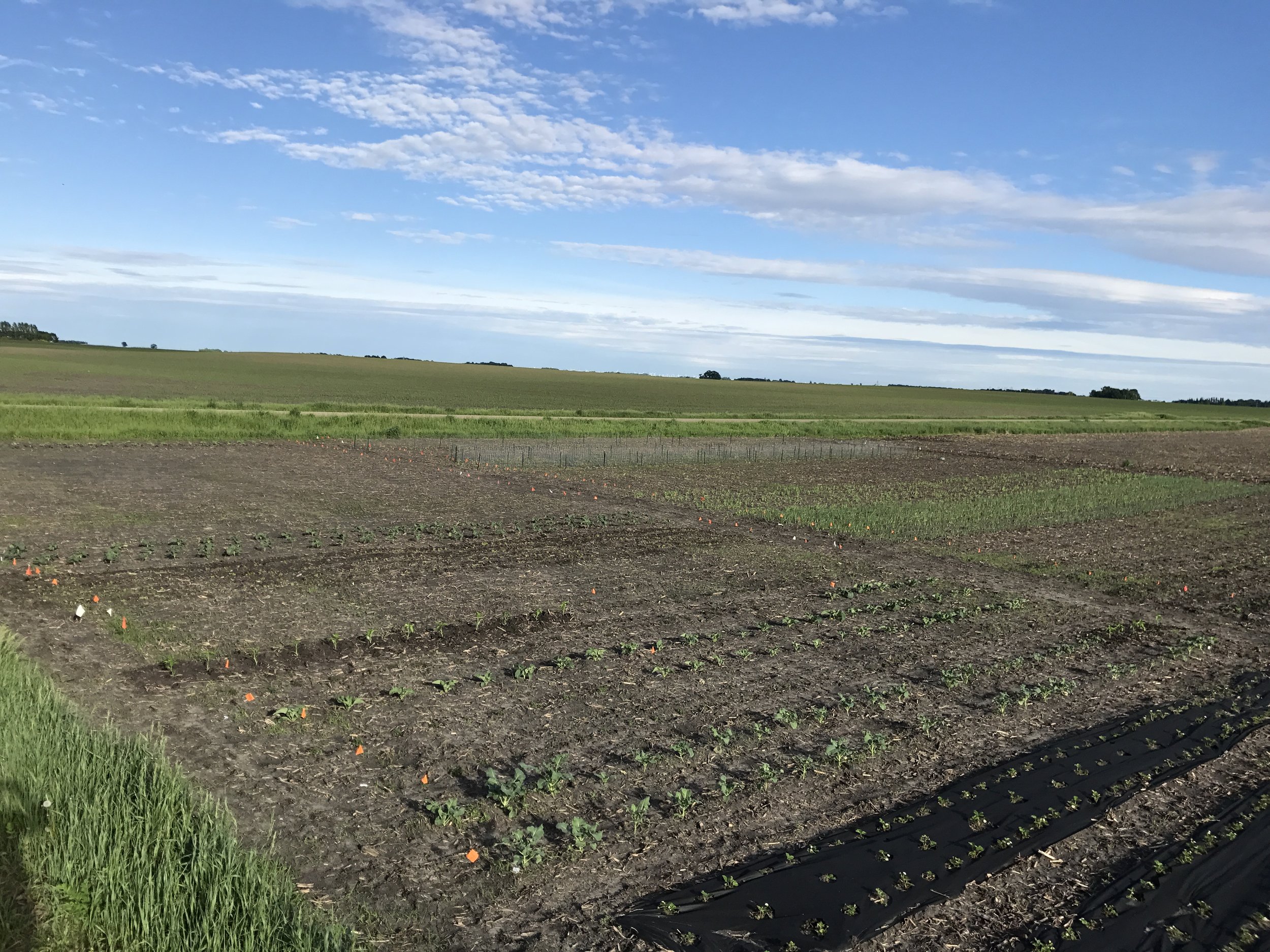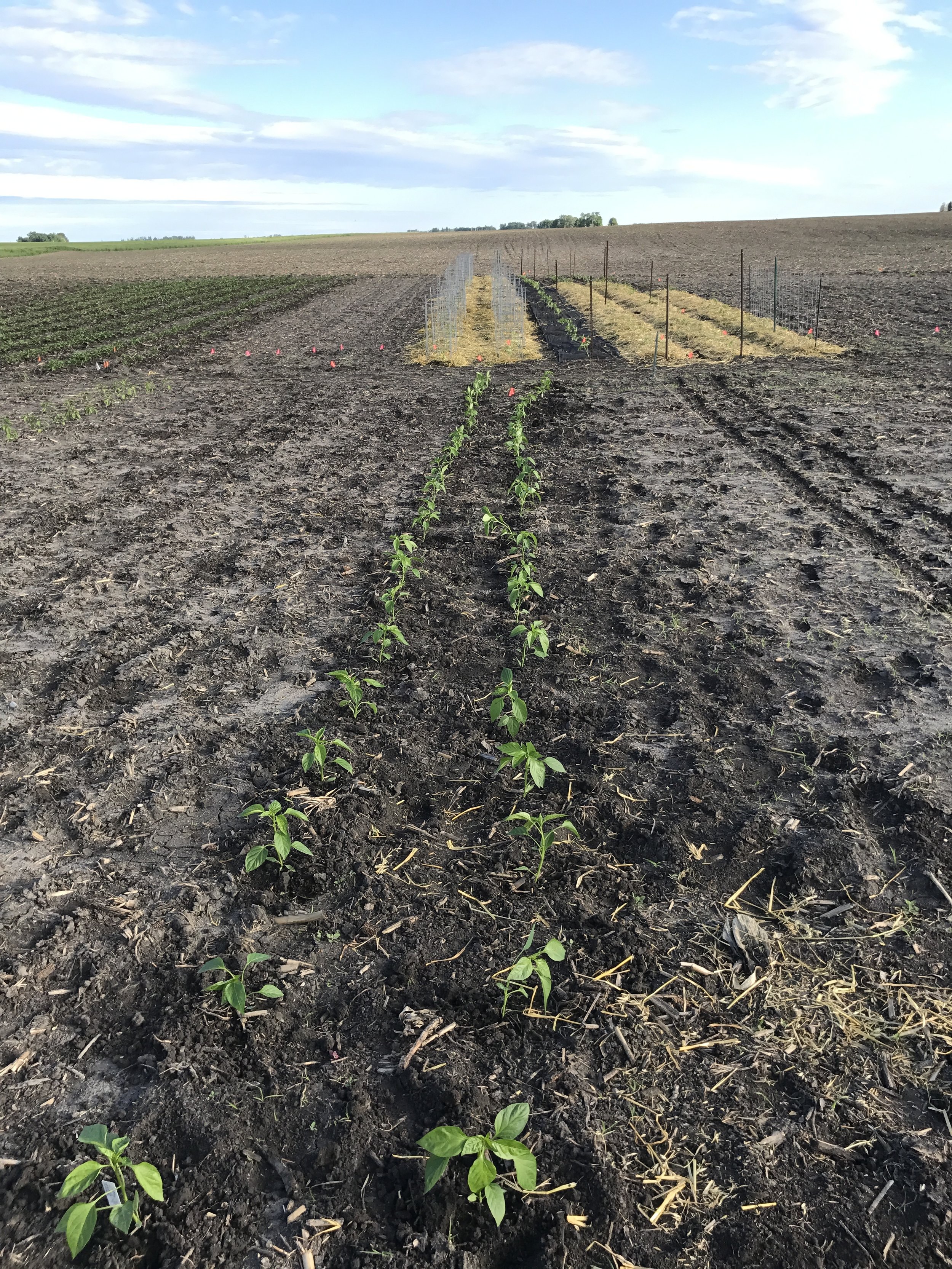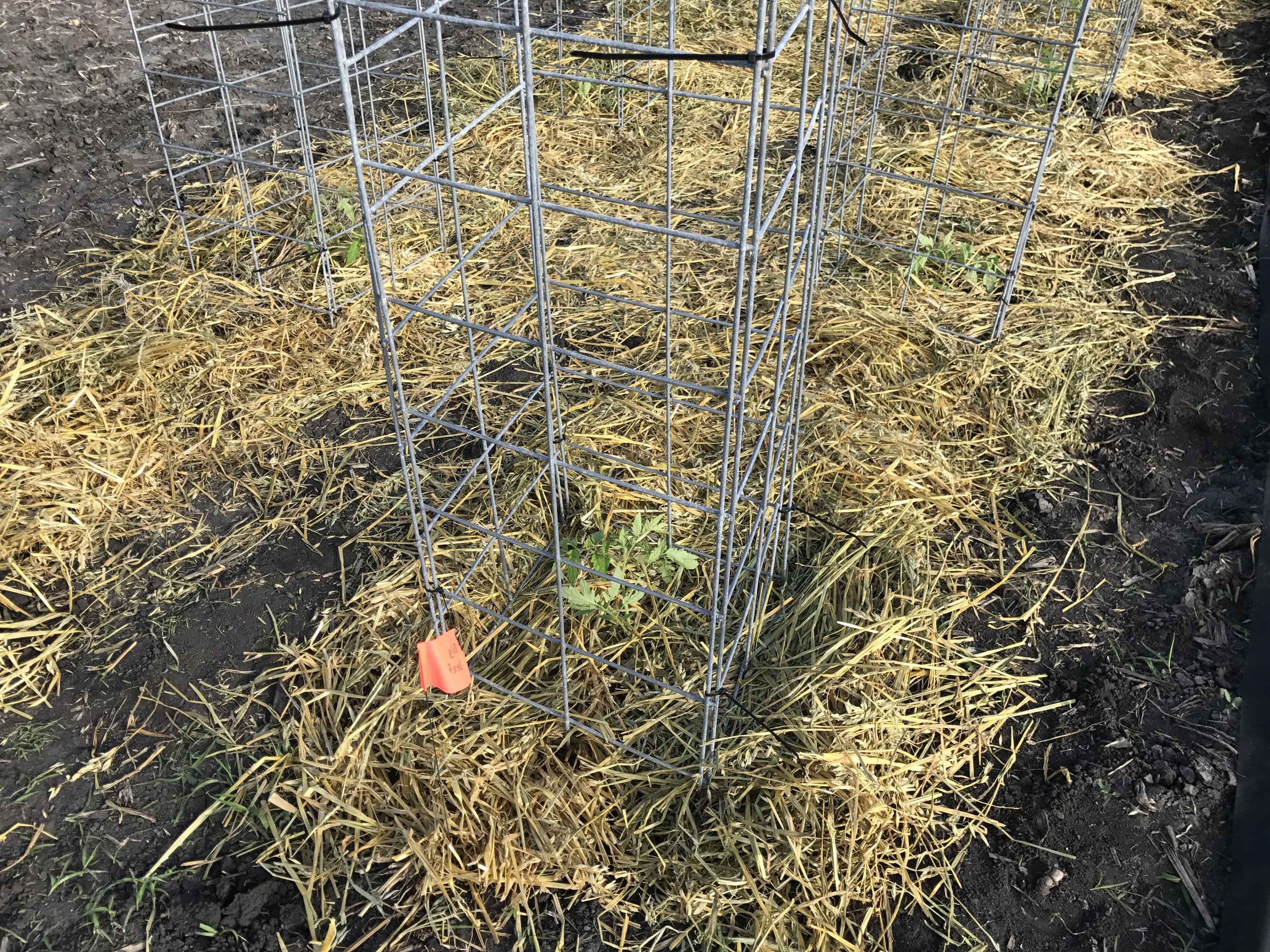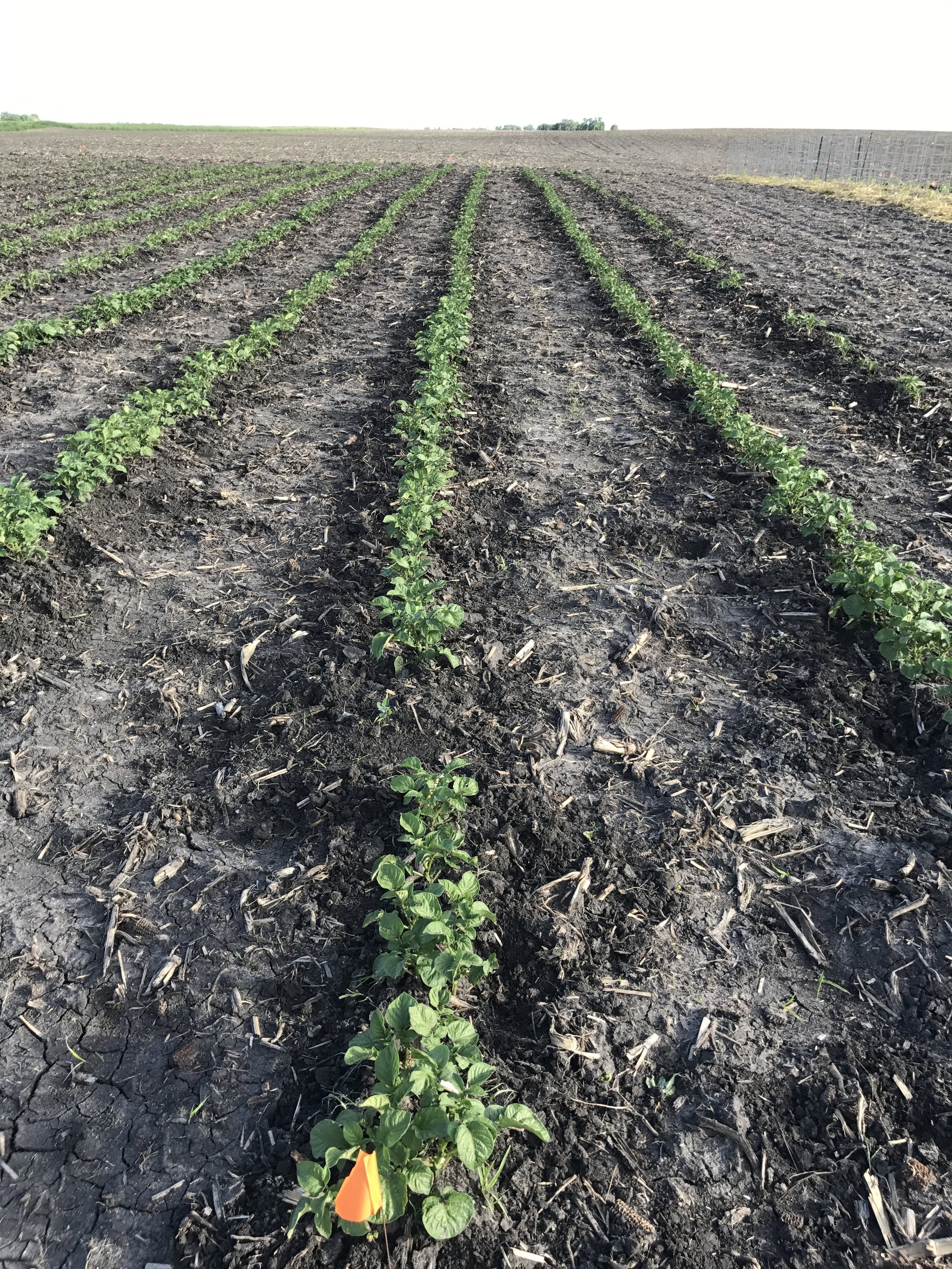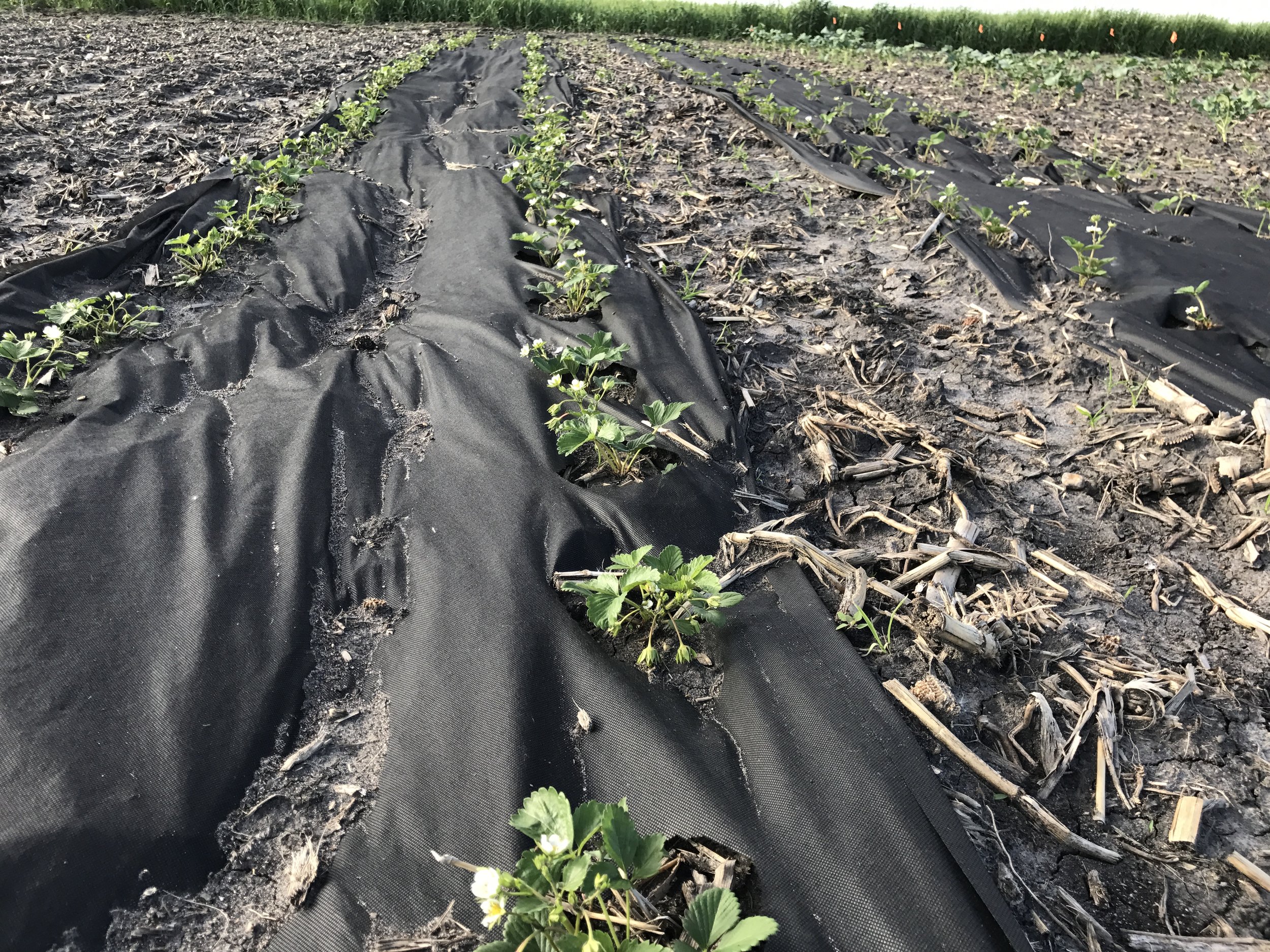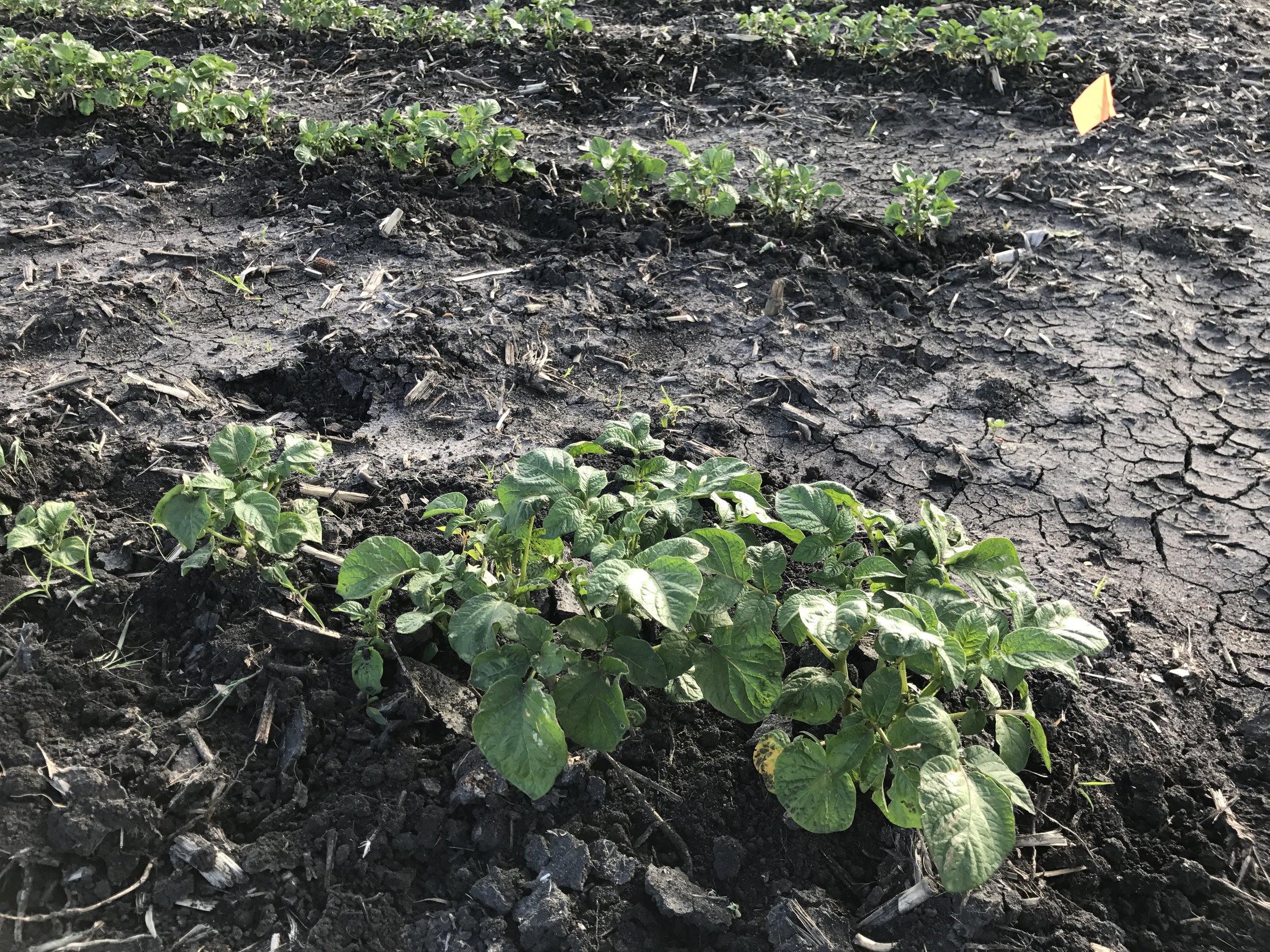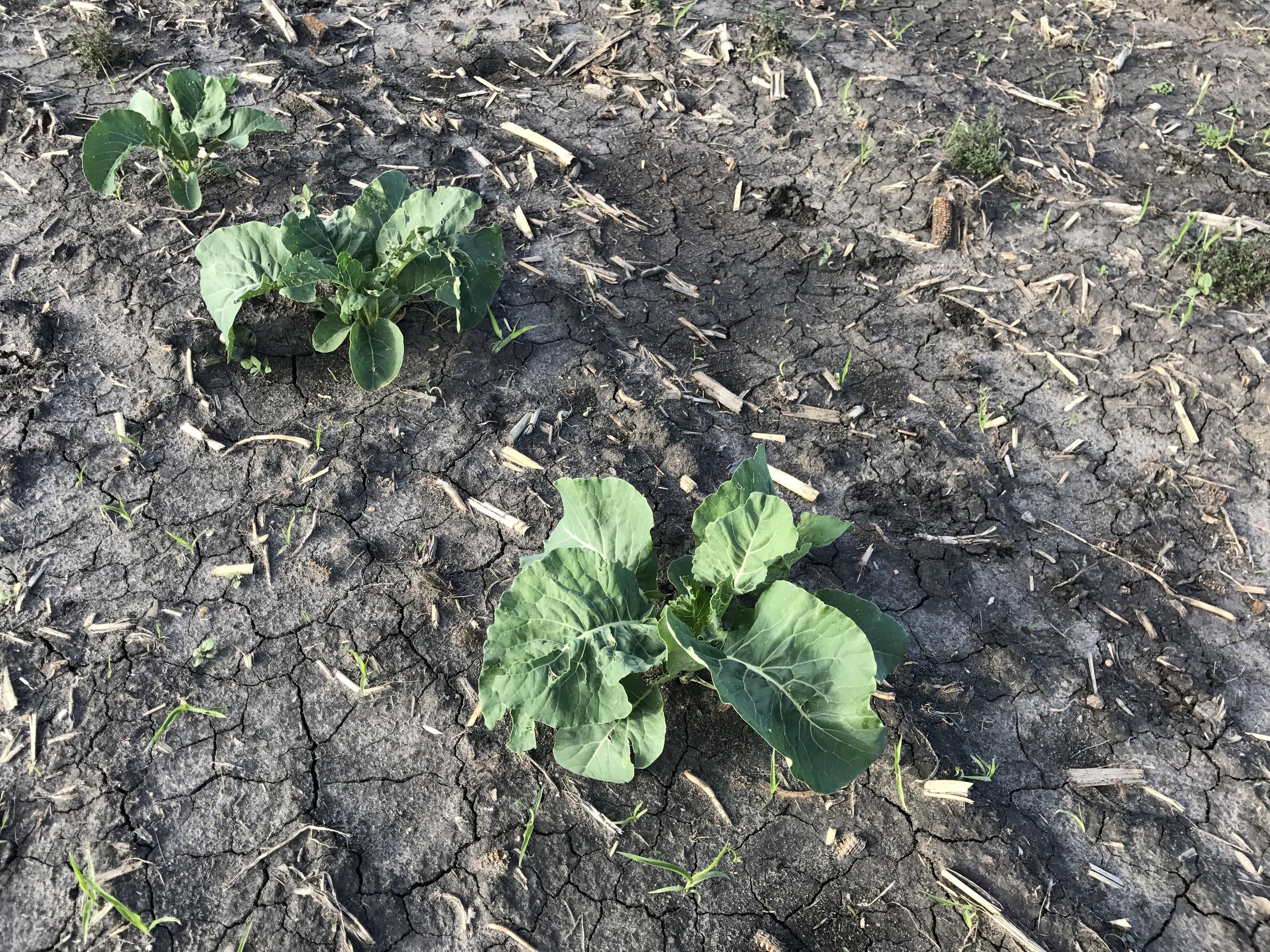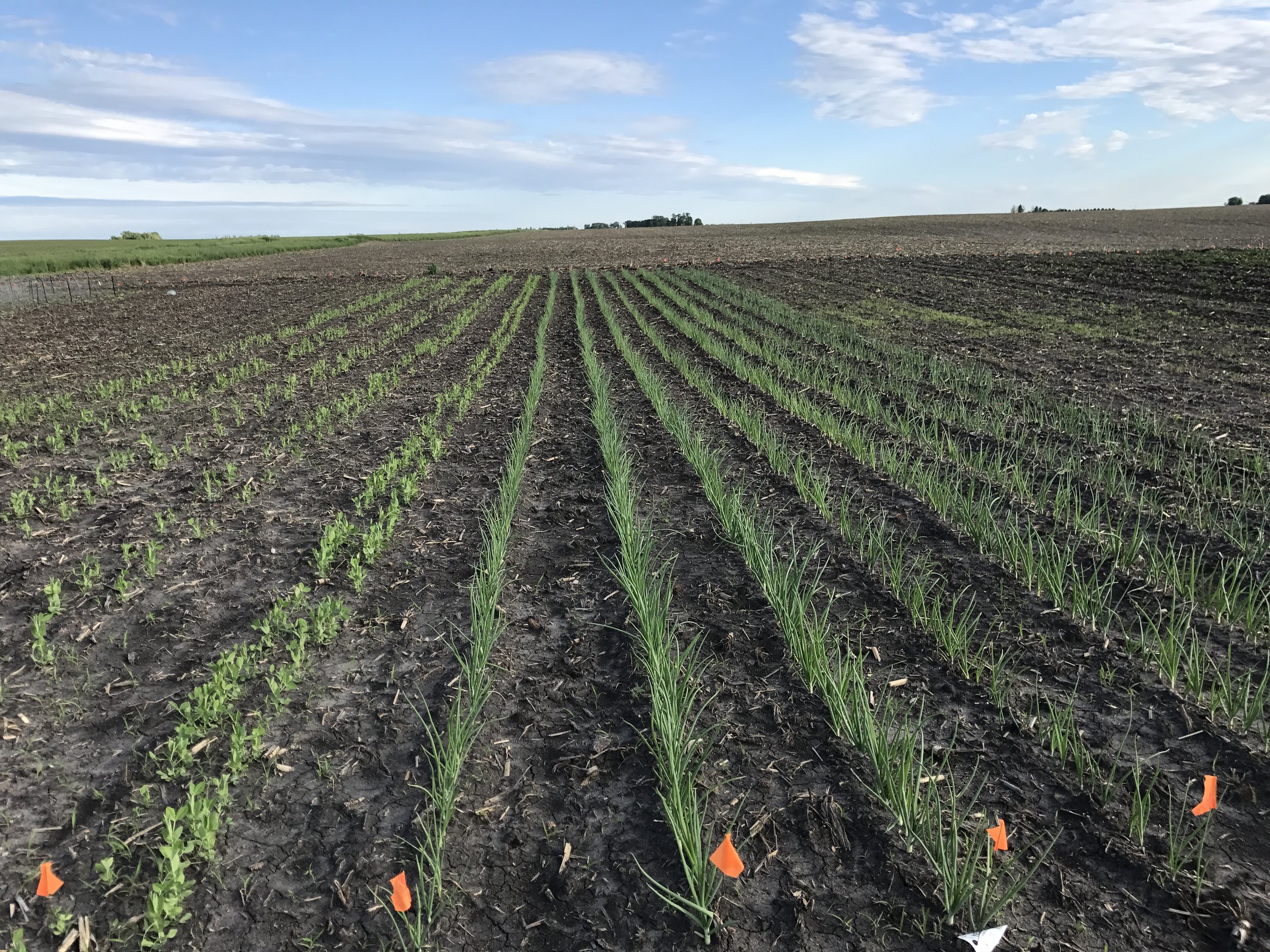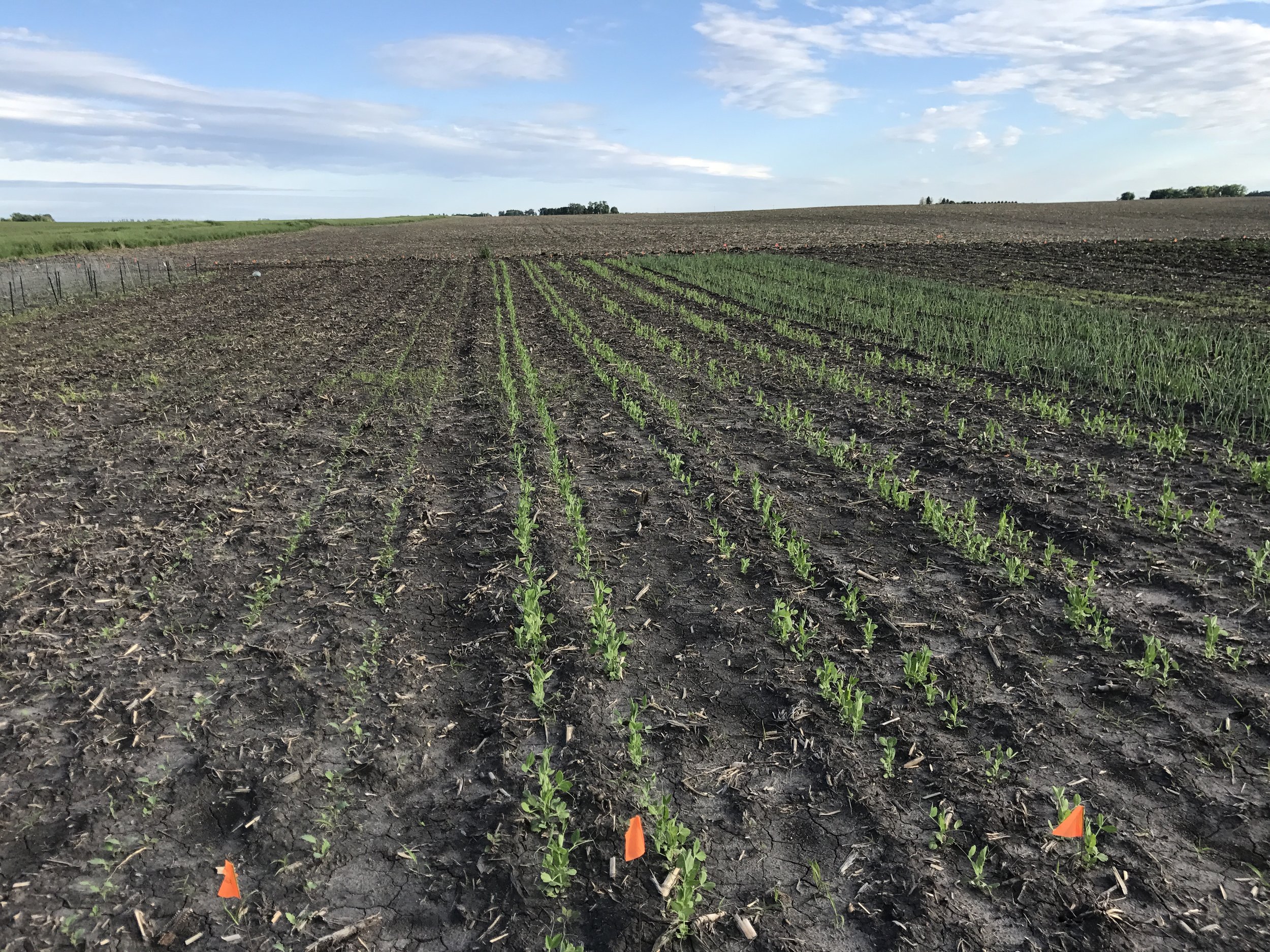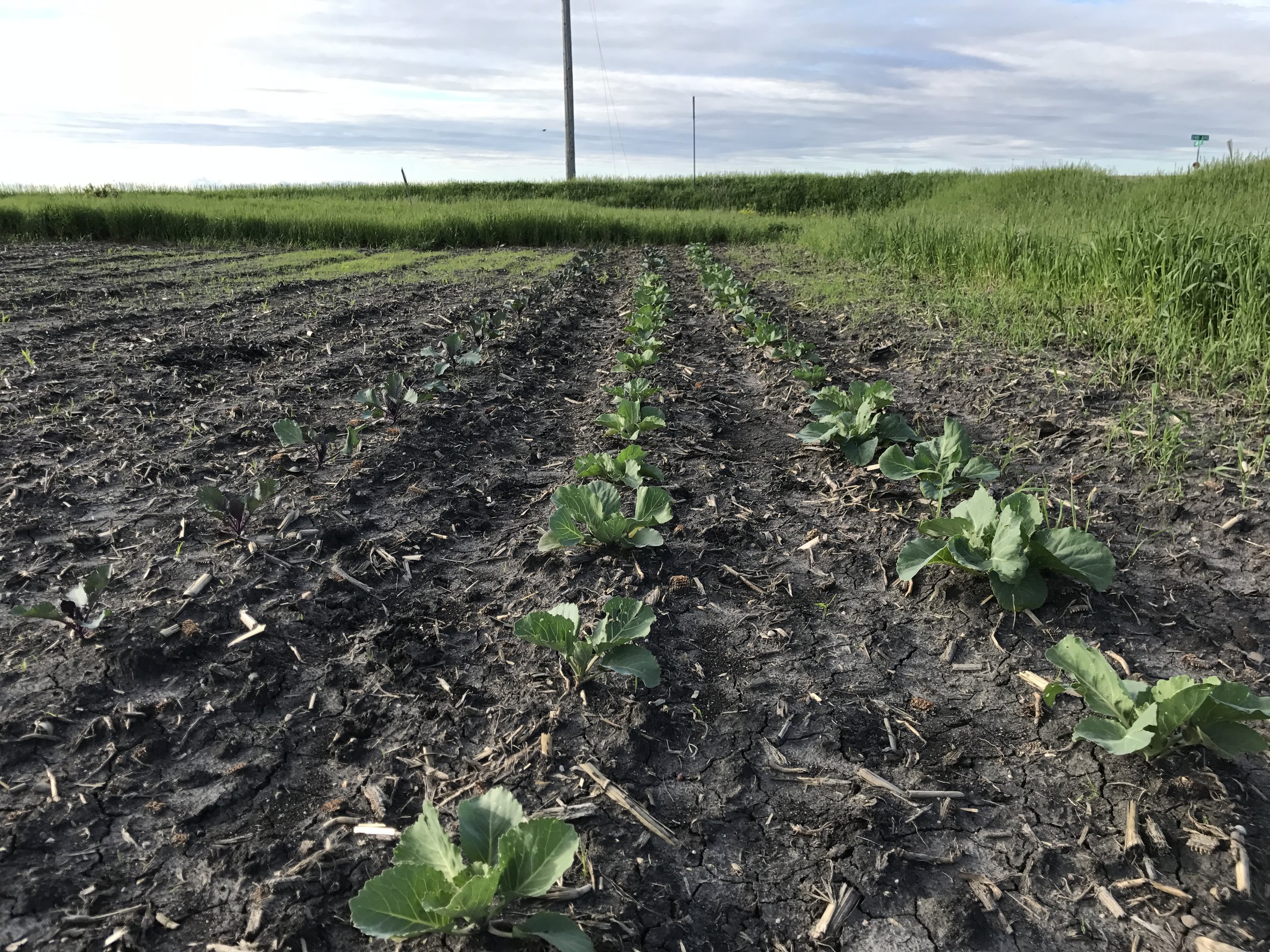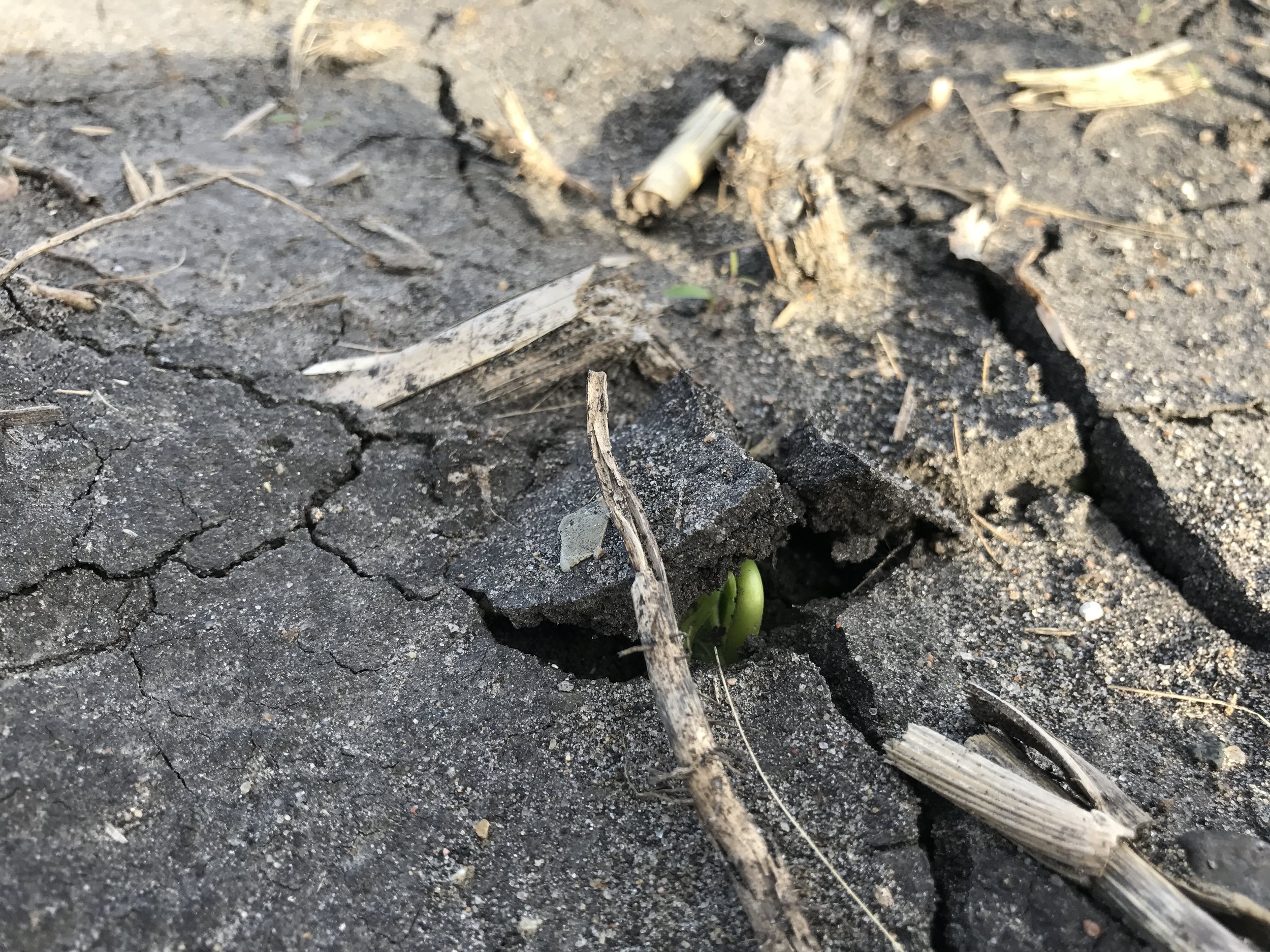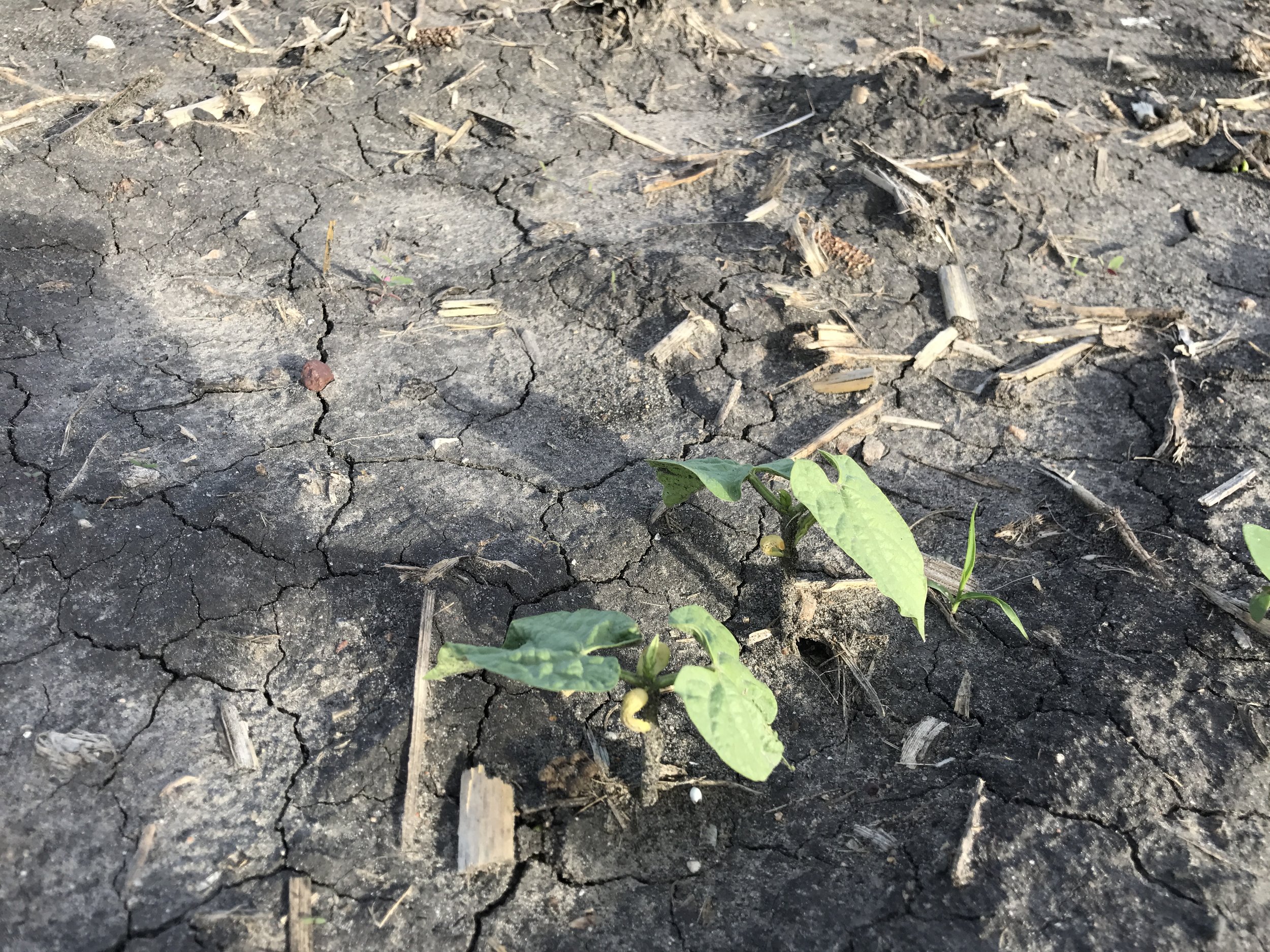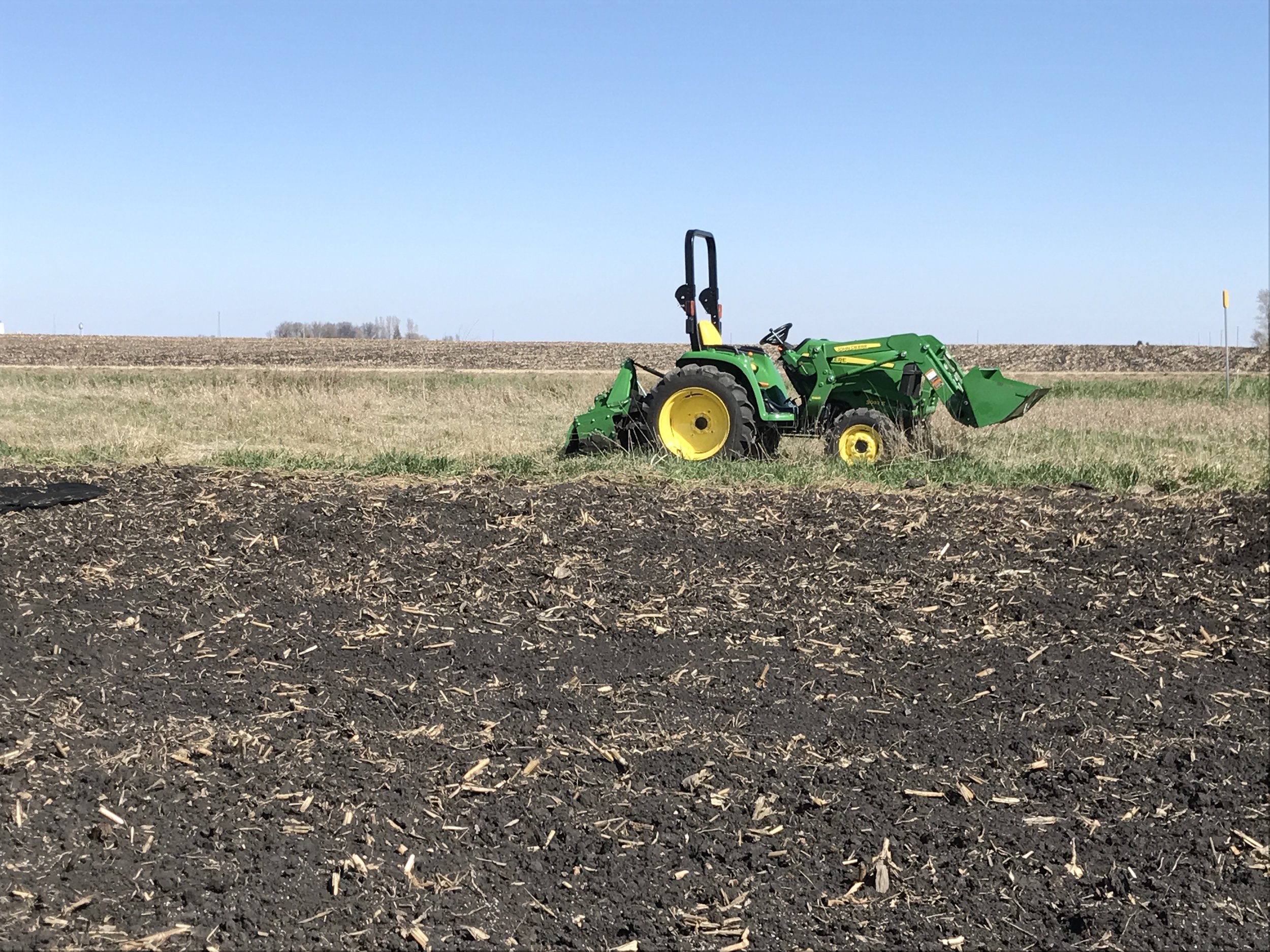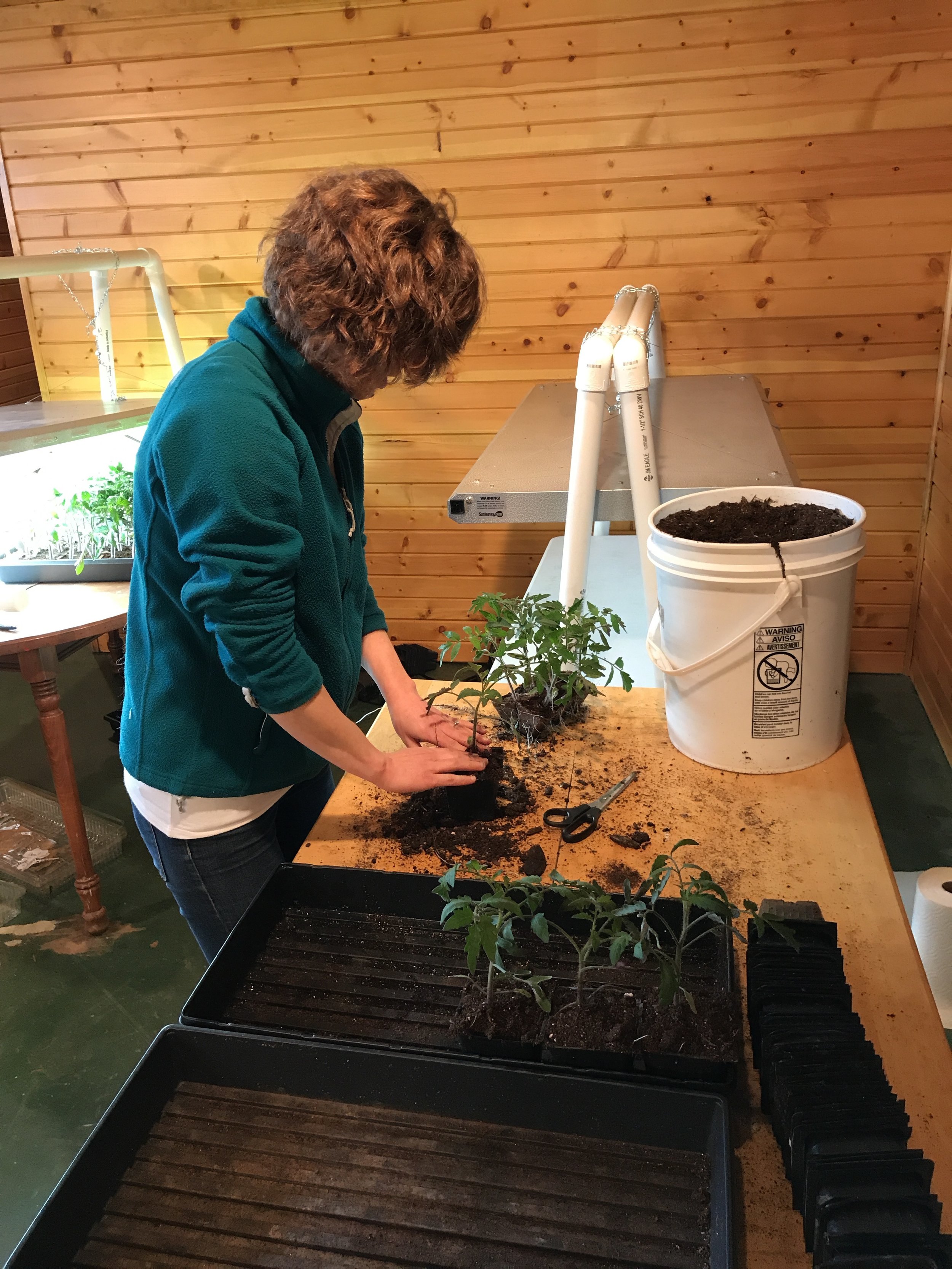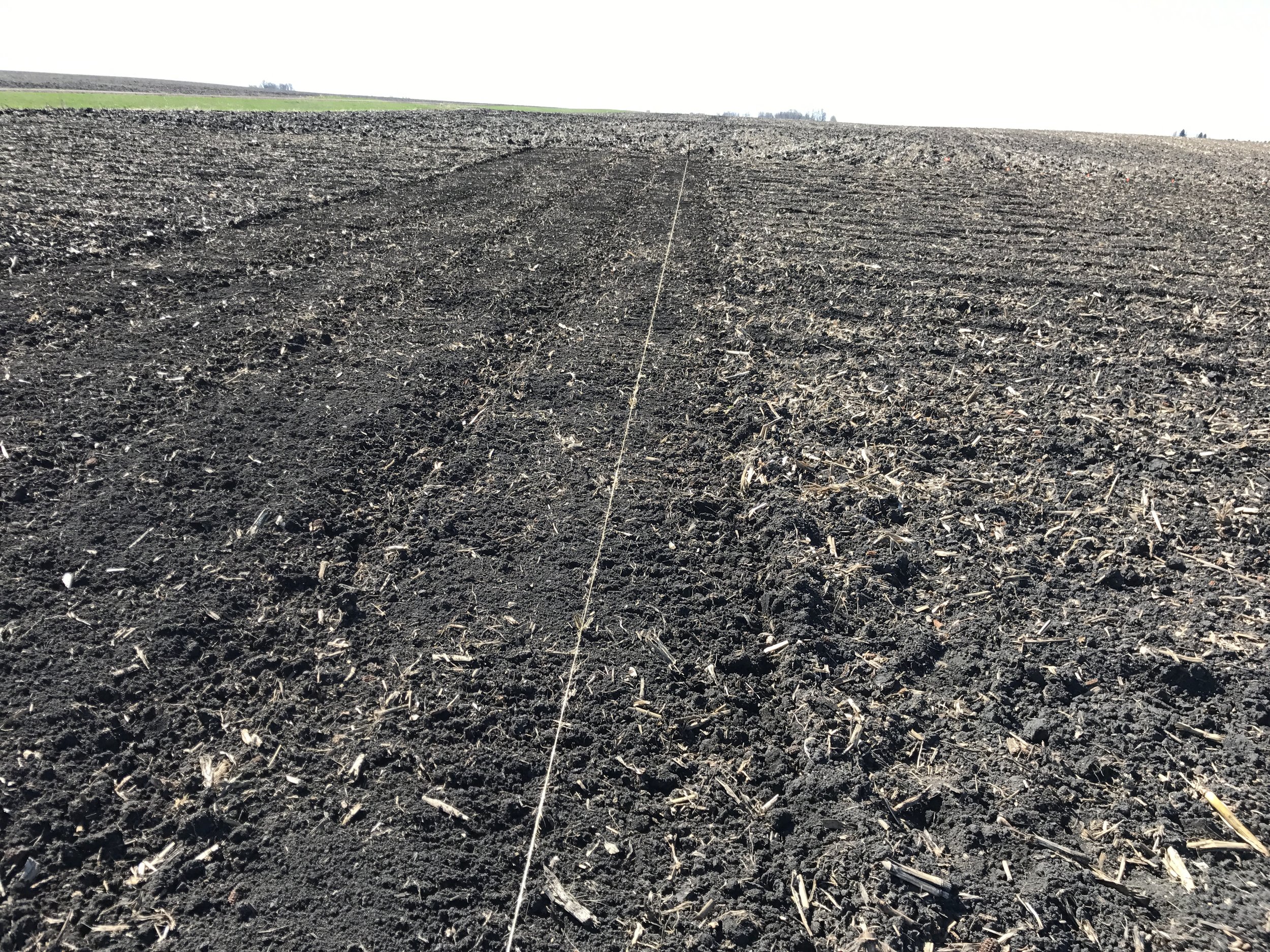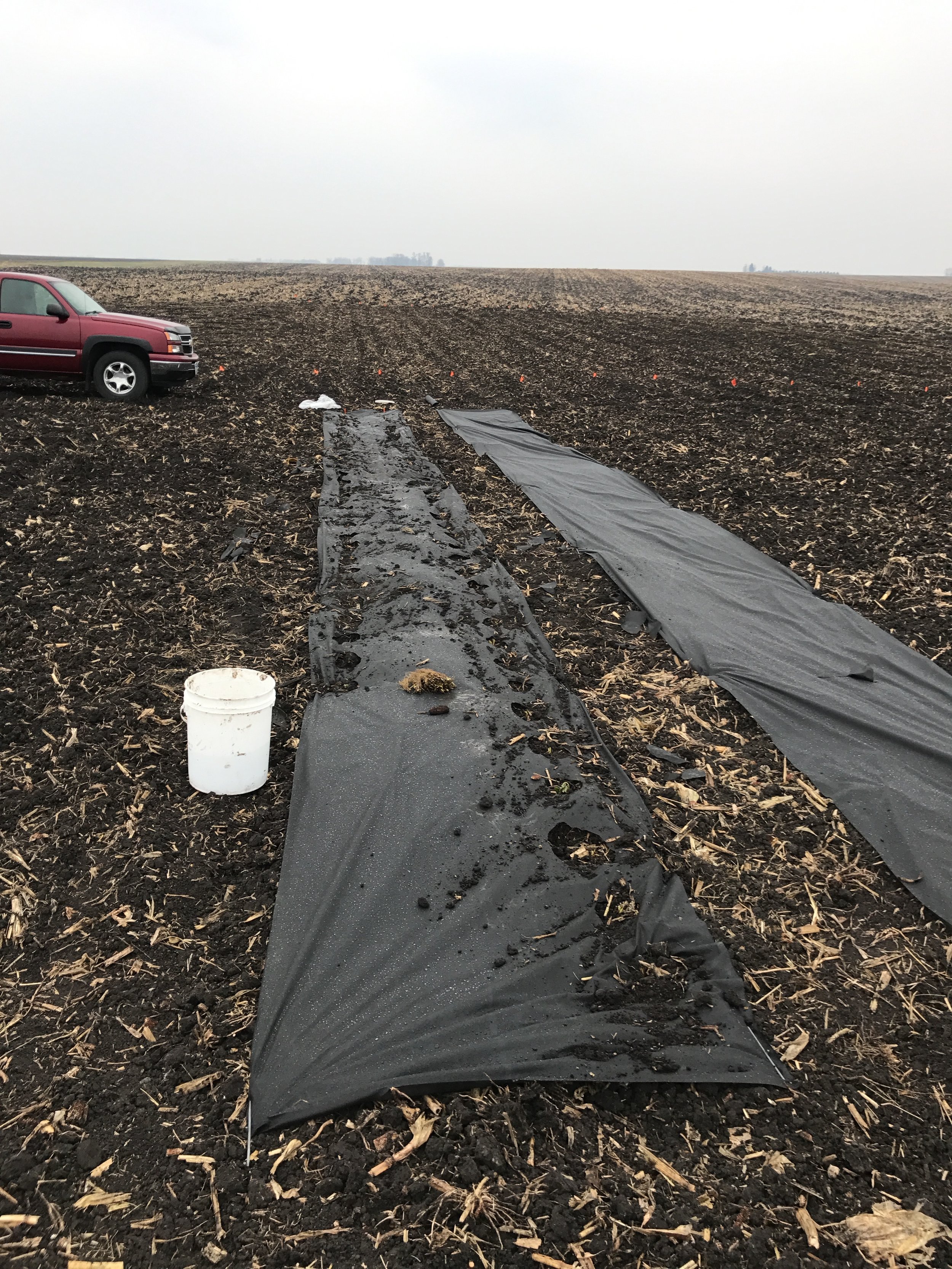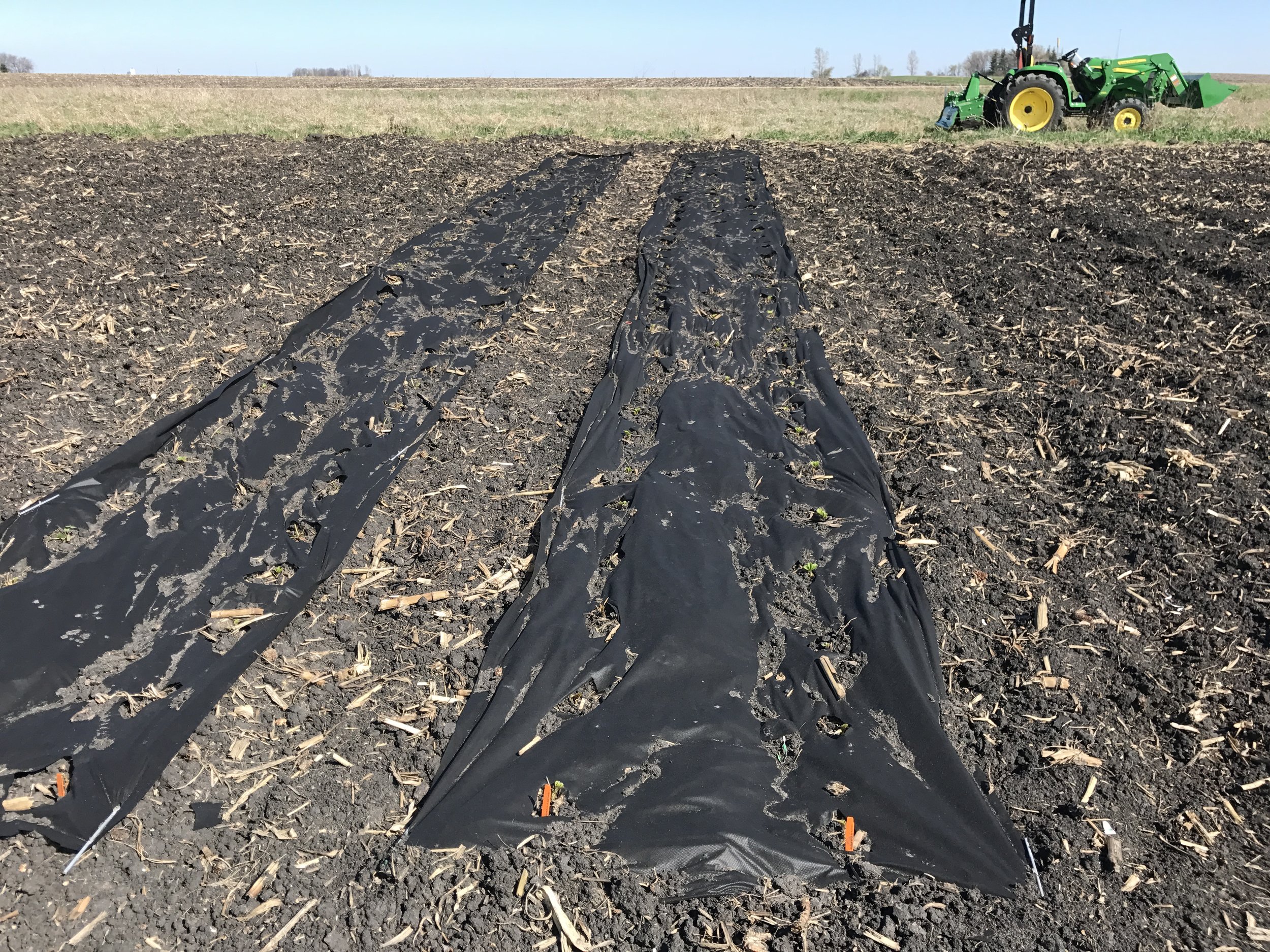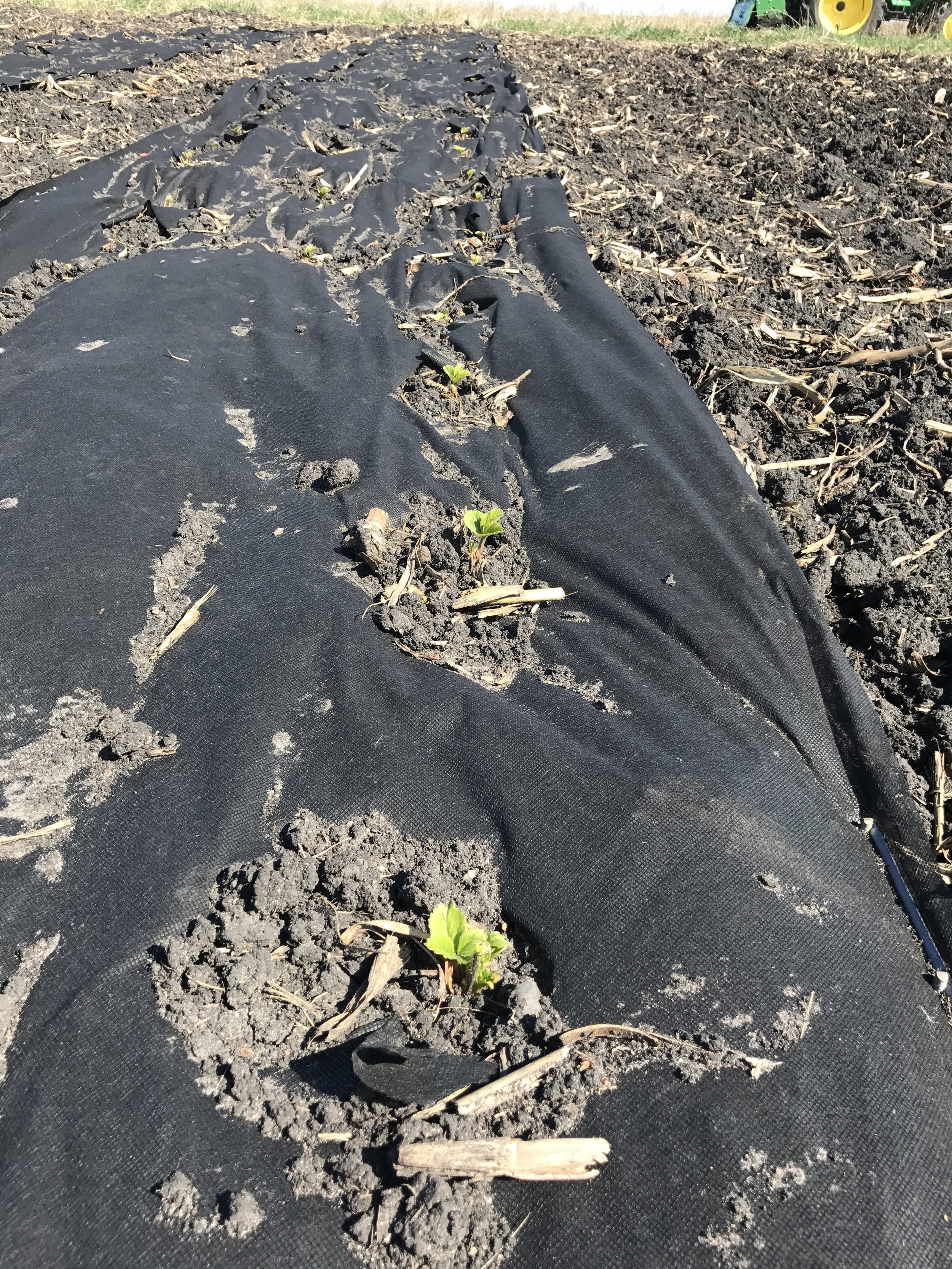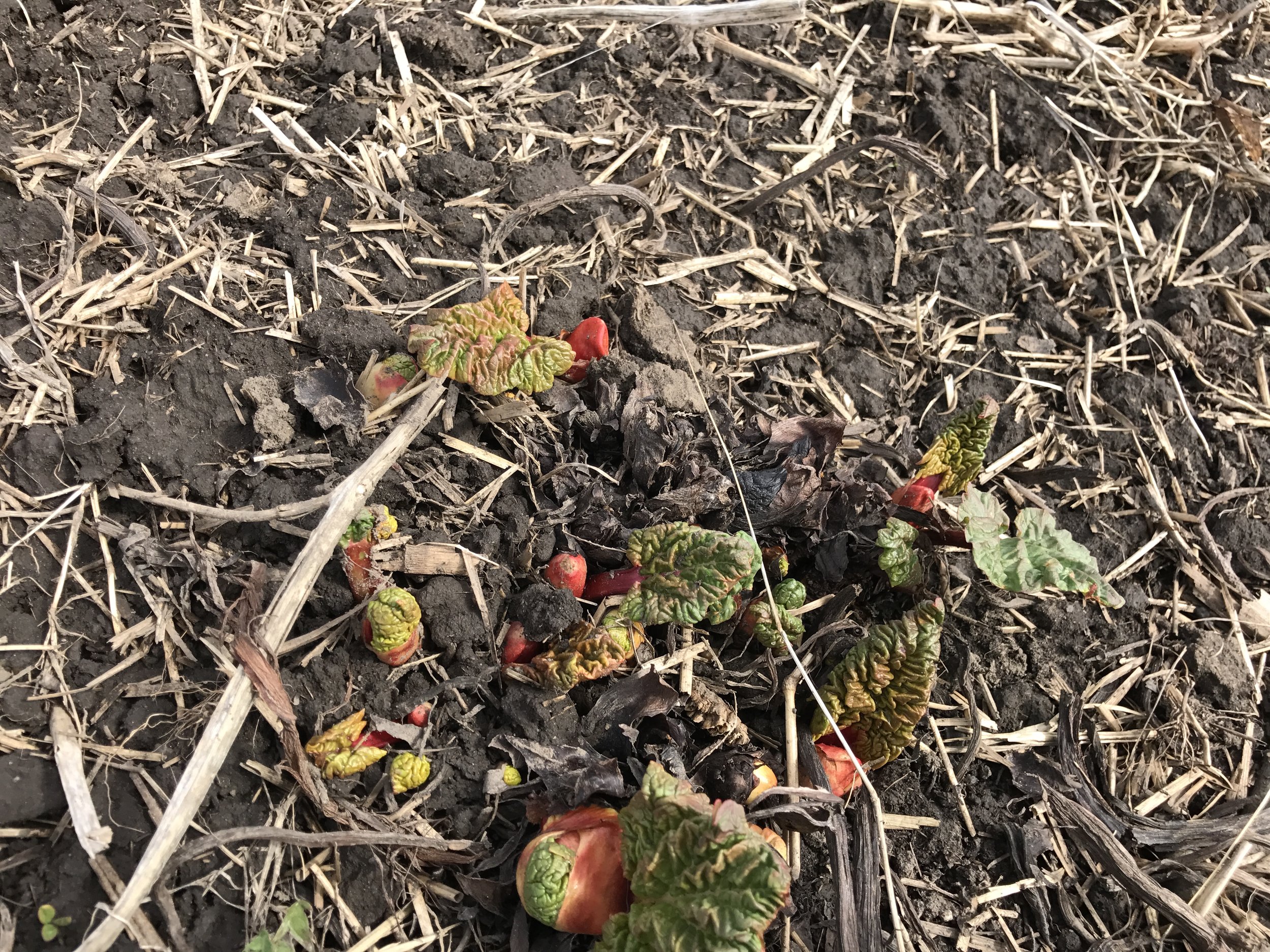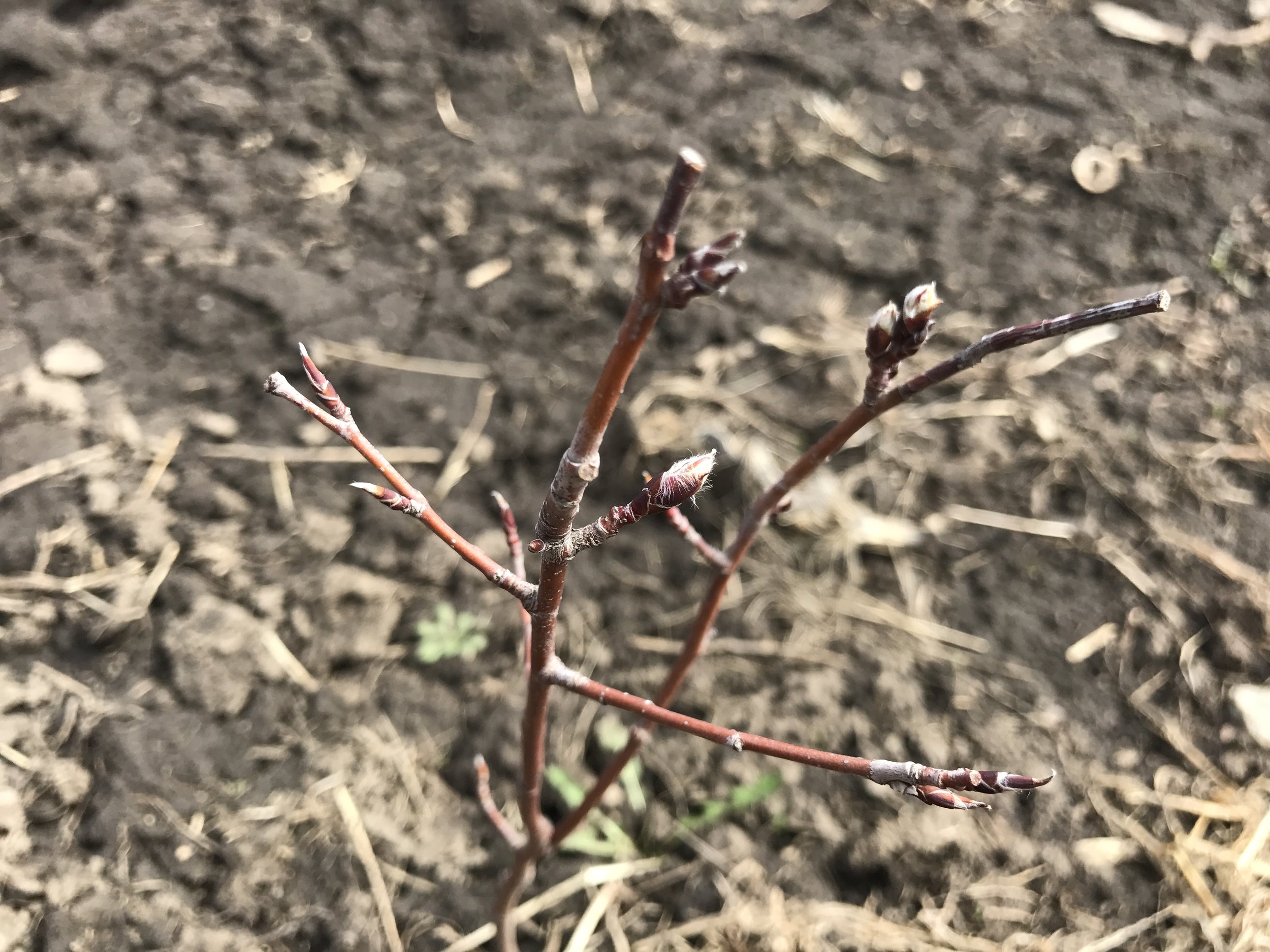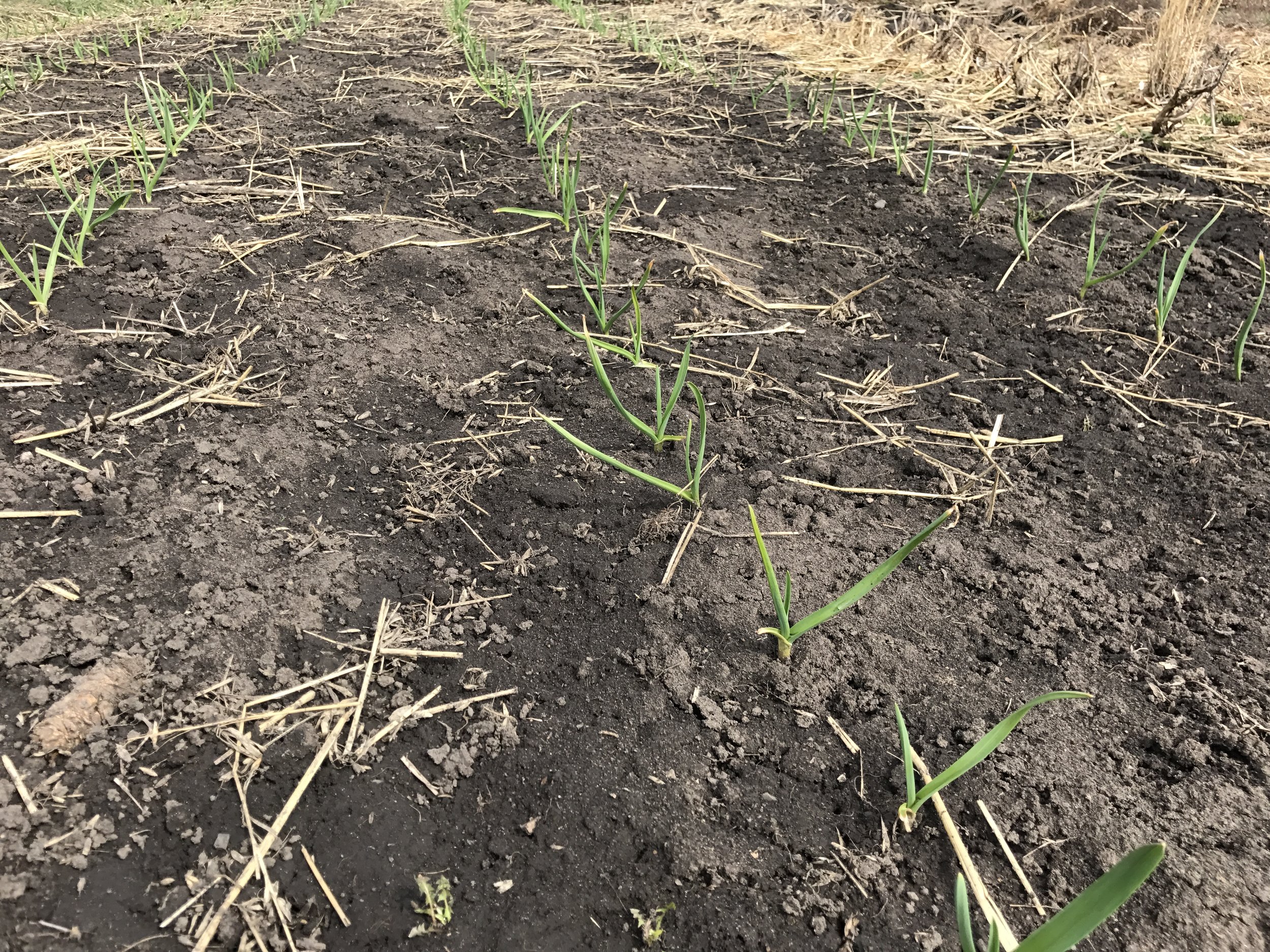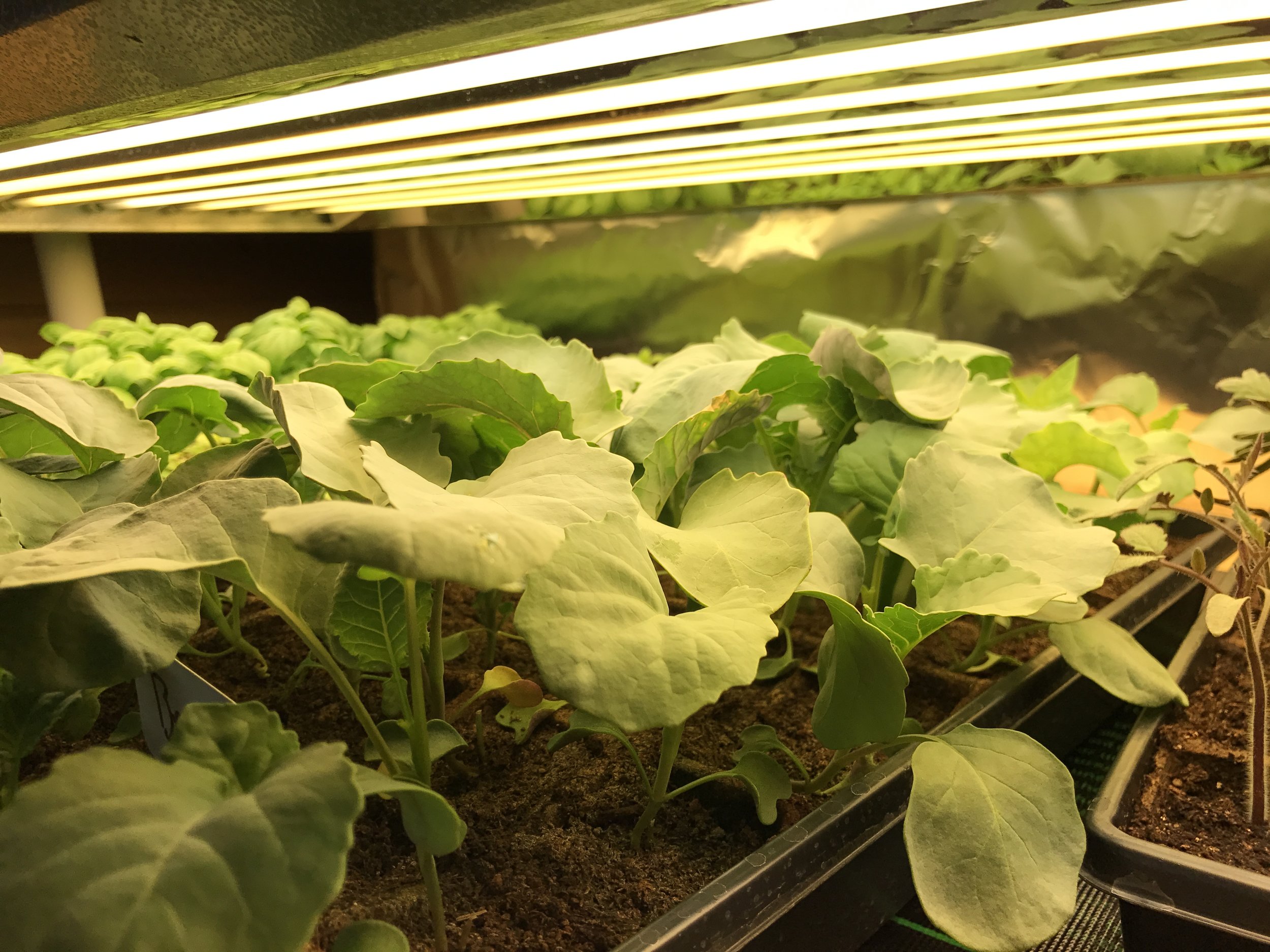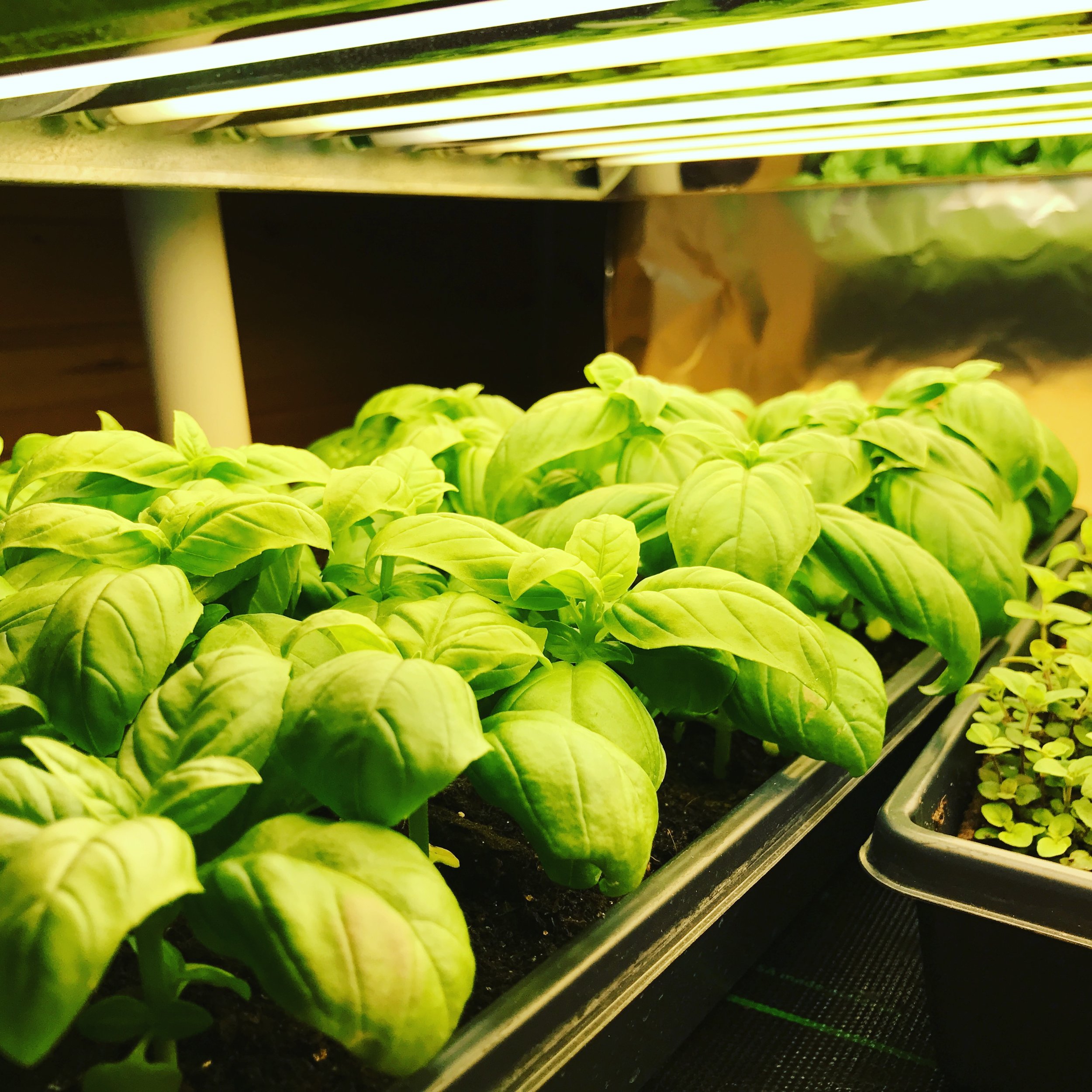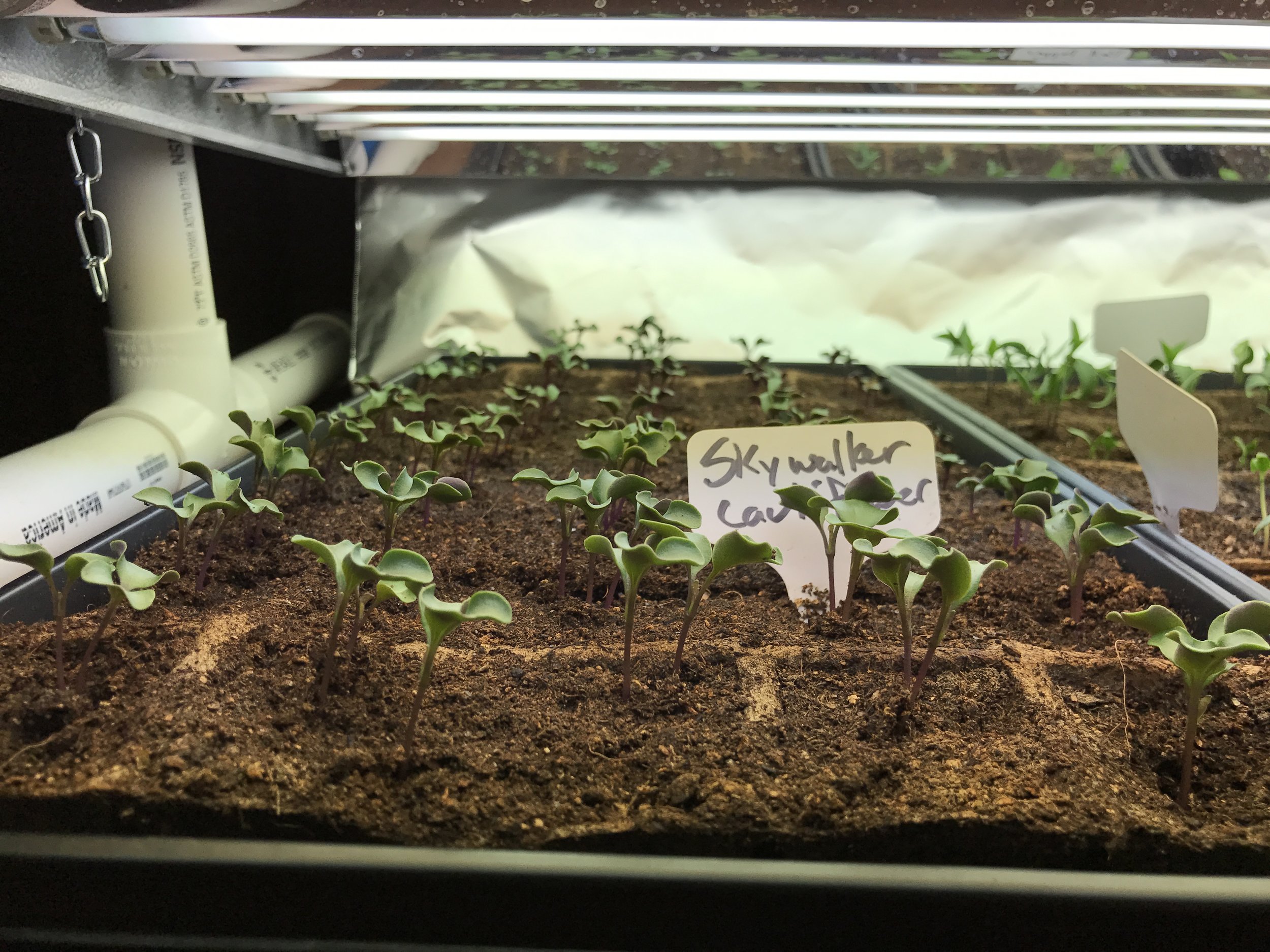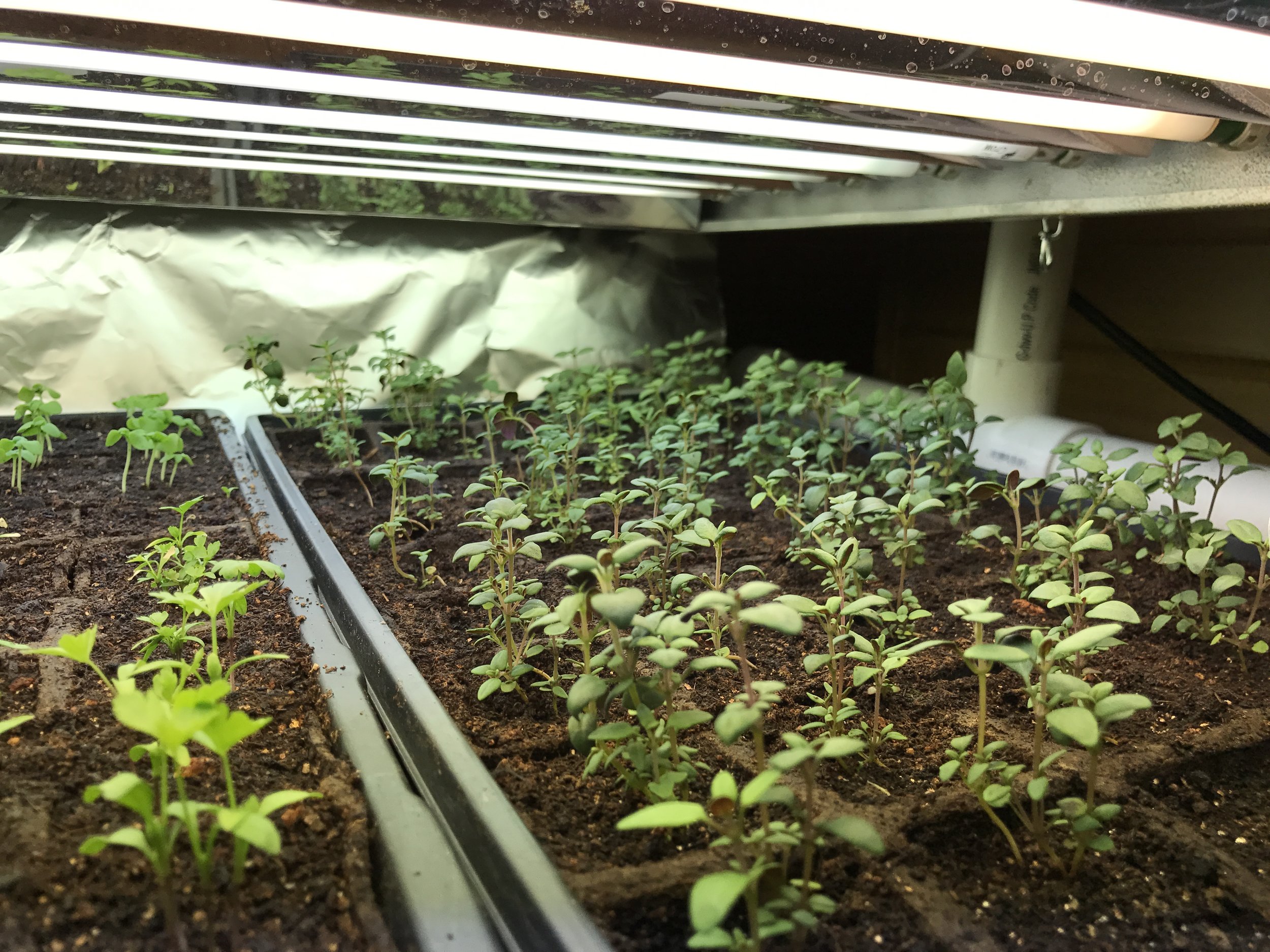
What'd we learn at MOSES 2019?
Lara and I attended MOSES 2019 in La Crosse, WI this weekend. For those who are unfamiliar, MOSES (midwest organic and sustainable education service) is an organization that promotes organic and sustainable farming and hosts the largest organic farming conference in the United States. The conference is huge, with well over 3000 attendees, tons of presentations from farmers, scientists, PhD students and more as well as film screenings, research presentations and round table discussions. It’s sometimes hard to choose what to do at the conference because there are so many good options! We attended talks on subjects ranging from managing tomato diseases to pasture raised pork to stress management. In this blog post we’ll go through some of our big takeaways.
Soil
I attended several talks on soil - it’s the foundation of everything we do - so I like to prioritize learning more about soil as much as I can. One big take away is scientists have a very small understanding of how soil works. In one acre of soil there is the biomass equivalent of 8.4 cows in things like bacteria, fungi, worms and other living creatures. Of that biomass scientists have only documented and named about 20% of those creatures. What does this mean for the farm? For us, limited understanding makes it hard to trust anyone that says x is the thing to do for your soil. Instead, we will try to mimic nature as closely as possible; this is what most agronomists would suggest. This includes using mixtures of cover crops to simulate the diverse species of plants you see in nature. Applying animal manures and compost to mimic the natural way animals fertilize soil and we will try to minimize tillage as much as possible. Lara also attended an introduction to soils class and found the current research continues to support the practices we are using.
Tomato Diseases
The big take away here is that we really need to invest more in caterpillar tunnels and high tunnels. We can reduce occurrences of tomato disease considerably which will increase our yields considerably. We’ve held off on investing in this infrastructure until we move to the land where the majority of our veggies are located. We’re making progress on this! We purchased a small caterpillar tunnel this season for use at our home (though we’re using it for lettuce production instead of tomato production). Other things we can do for our field tomatoes include things we’ve already been doing - crop rotations, pruning, laying mulch down, and applying organic copper at regular intervals to slow the spread of disease on a regular schedule.
Pasture Raised Hogs
I (Lara) have always had a great interest in livestock. Convincing Dan to raise chickens has proven to be a great way to diversify our CSA and get free nitrogen rich manure! There are some great benefits to be gained were we to raise pigs. First, we would be able to sell high quality meat to our customers adding economic benefit to our farm and diversifying the CSA. Second, we would get free pig manure to enrich our soil. We would also get some low grade free tillage on our land as the pigs have a tendency to literally "root” around! They love eating plant roots high in sugar and will turn up soil in the process. Dan and I are interested in farming on a closed loop system which means anything that comes from the farm goes back into the farm - we wouldn’t have to pay so much to purchase outside fertilizers. In addition we want to farm in a way that mimics the natural symbiotic relationship of plants and animals. There is also the bonus of pig companionship! They are smart creatures with funny personalities. We are excited to invest in pigs in the next couple years!
Stress Management
Lara attended a short session on women managing stress in agriculture. The tips provided in the session are applicable to all humans working in agriculture. Farming has one of the highest rates of suicide in the nation; many factors contribute: low wages, debt, isolation, intense labor. One way to manage the stress of the job is to plan vacations where you can focus on slowing down and resting your body and mind. Dan and I always take a one week vacation mid-season. It keeps us healthy! Other suggestions included making time for your hobbies, eating healthy, and taking care of your body (your greatest tool in farm work). The key message is farming will be stressful and having a plan to mitigate the stress will ensure a successful long term business.
What does this mean for you?
Better produce, more options for your CSA, healthy farmers, and healthy land! The things we learn at the conference are things that directly affect you. We apply the techniques and recommendations we learn to get better at producing healthy, great tasting produce and animals that will nourish you and your family. There are always things that we can do better and we always try to learn the best techniques to ensure everything we grow for you and your family is healthy, delicious and sustainable!
What's new for 2019?
One of the things we love about farming is that no two years are the same. This is true on multiple levels: the weather is never the same, the crops we grow constantly change and the way we grow them progresses through iterations of improvement every season. While we can’t control the weather we can control which varieties of crops we grow and our methods for growing them. Read on to learn about the biggest changes we’re making for our 2019 season.
Our first caterpillar tunnel!
What is a caterpillar tunnel and what is it used for? Caterpillar tunnels are a form of season extension that are made with really large sheets of plastic draped over metal ribs that are anchored in the ground. They offer protection from the wind, rain, heat and cold giving us a slightly longer growing season for the things we grow inside them. The most popular produce to grow in them are tomatoes, peppers, cucumbers and lettuce. We intend on using our tunnel to produce lettuce which leads us to our next change for 2019.
Season long lettuce experiment.
One of our favorite things to grow is lettuce and it also happens to be something people really love. Dan took an online class over the winter to learn about strategies for producing lettuce all season long. We’ve developed some systems and invested in the necessary infrastructure to grow lettuce all summer long. This is very much an experiment year that we will use to hone our systems and ensure the lettuce we produce is sweet, crunchy and not bitter. Ultimately, our goal is to have lettuce available every week from mid May through October and perhaps even into November. Don’t worry, we won’t overload lettuce in your CSA box though it might take some time to figure out the correct quantity.
Establishing new perennial beds.
Our current strawberry and raspberry beds are getting pretty old and thus their production and quality is deteriorating. Raspberries and strawberries take a couple years to get established and we have been reluctant to establish new beds at our current property for fear of moving before they’re established. Recently, we’ve made some progress towards buying the land we farm so we’re going to be investing in new raspberry, strawberry, asparagus, and rhubarb beds this season. We hope that in a few years we’ll be able to provide all of these perennials in our CSA boxes and farmers market stand.
Meet Zack
Hello!
I know it's been awhile but I promise these will be more regular from now on. Today I want to share with you about our farm hand - Zack. As we know farm work is never done and when you get bigger there is more work to do! This calls for more help; we began hiring extra labor last year and just loved Lindsey! We are lucky again this year to have our good friend working for us three full days per week. Zack's experience is varied - he spent some time in the business world and is currently pursuing his MFA in Fictional Literature at MSU in Mankato. When he's not busy writing Zack loves to bake and cook - he has a knack for both. Running is another serious endeavor Zack commits to. He has run several 1/2 marathons with goals to increase his speed each race. Though Zack's farm experience is limited, his work ethic is not. He is such a huge asset to us - keeping up with us weeding, hoeing, putting up tomato cages, and harvesting and preparing produce. Zack does all these tasks with care and efficiency - he never complains - even on days when it's 95 degrees and we ask him to pound posts. We enjoy Zack's company and humor. If you ask him what kind of vegetable he would be he'll tell you brussel sprouts because not everyone likes them and you have to do a little work to get the vegetable from the stalk. Needless to say Dan and I are fans of the brussel sprout (Zack)!
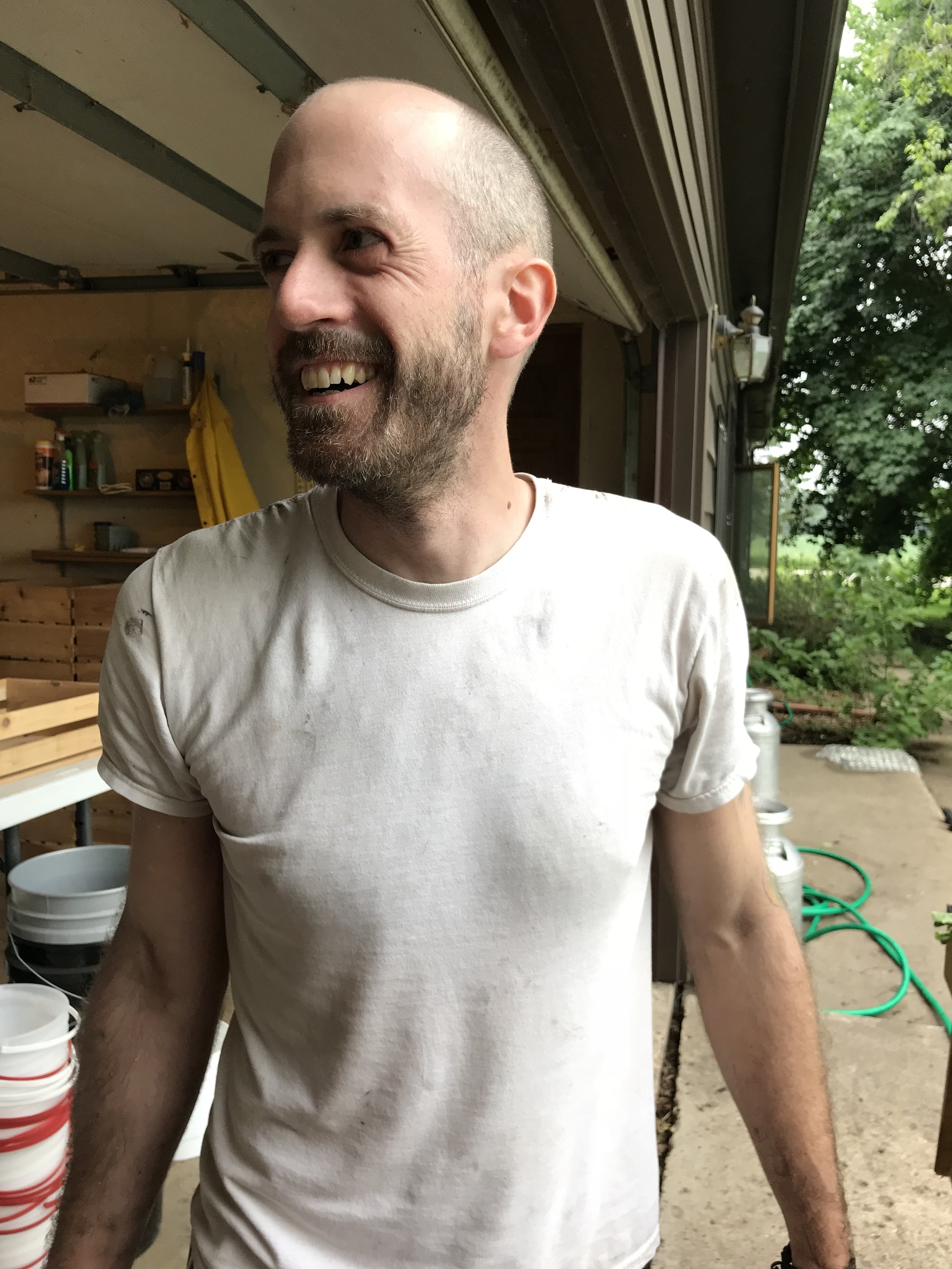
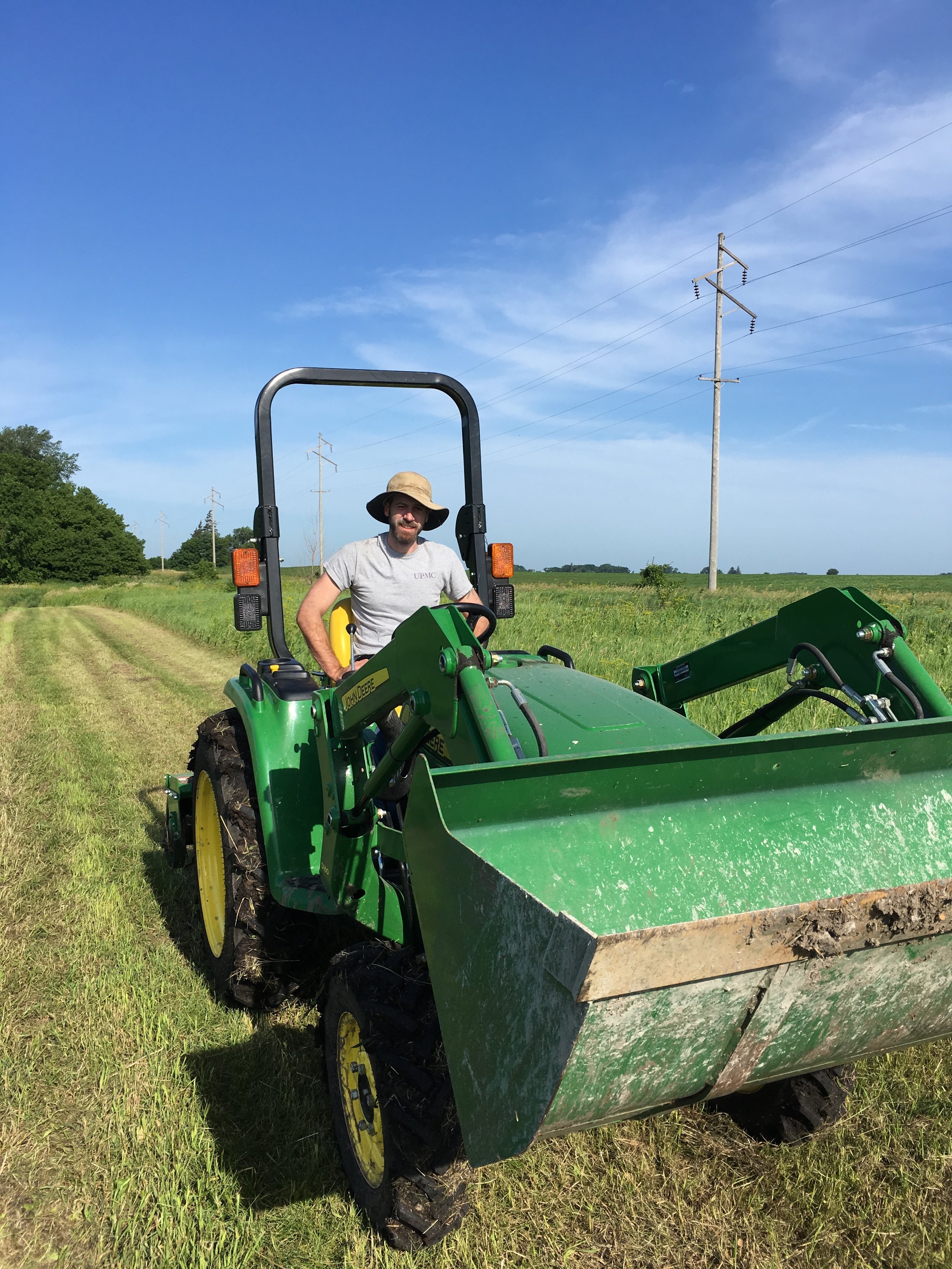
What do we do when it rains?
Hello dear reader!
Today it is raining. Again. As farmers when our produce is in production mode we harvest in ALL weather. Today though we don't have anything to harvest yet. We won't weed either because our footprints would compact the soil and make it harder for things to grow. Instead we get caught up on all the chores around the house. Here is a short list of some things we can accomplish:
- 1. Clean all our harvest buckets from last year
- 2. Cut re-mesh to make tomato cages
- 3. Build and sand down cedar crates
- 4. Care for our chickens
- 5. Write a blog post
- 6. Apply for our marriage license (It's only 15 days away)
- 7. Grocery shopping
- 8. Leisure time - not sure what that is but we try to make time for it!
We are trying to be patient as our crops grow. Things are looking good in the field and are growing fast (though not fast enough for us) considering we planted a month later this year than last. We are proud of what we have accomplished thus far and look forward to our season beginning just one week later than last year. Dan and I are also tying the knot the same week and couldn't be more excited (stressed out)!!! Good thing we have Zack to help us out this year! (More about Zack in our next blog post.)
More planting, more weeding and lots of progress!
Spring planting continues on the farm. We planted our vine crops (cucumbers, summer squash, melons, etc) over memorial day weekend and were able to get in around 550 peppers, tomatoes and basil before the storms hit! We don't normally like to plant in that kind of heat but our plants were in need of being moved out of their pots and into the soil.
Many of our crops do just fine in the heat - in particular sweet corn and popcorn LOVE the heat. Some of our crops suffer in the heat - lettuce, spinach, peas - all would have liked the 100 degree days to wait another month. Fortunately, it seems the damage was minimal and the rains really helped keep things going after that heat wave.
We continue to work on weeds as they tend to love the heat as well. We will be writing a post soon that covers the many methods we use to control weeds on our farm. Stay tuned! In the meantime enjoy these photos of the progress on our farm.
Chicken tractors, planting, and weeding!
It's been a very busy month on the farm! The weather has finally warmed up, we're getting a good amount of rain (if not a little too much) and our new batch of layers have moved out of their brooder box to the outdoors.
The first couple photos in the gallery below are pictures of our home-built "chicken tractor." A chicken tractor is a mobile enclosure that we will use for our meat chickens permanent home when they are big enough to move outdoors. Chicken tractors allow us to keep our meat chickens in a controlled location but also allow them to forage and be outdoors. We will move the tractor daily so that our chickens always have access to fresh pasture. The enclosure also keeps would-be predators out. It's a win-win situation.
We've put our second batch of layers in our chicken tractor until they are big enough to integrate with our adult layers. This allows our adult chickens to "introduce" themselves to our new chickens without the risk of the new chickens being injured as they re-establish the pecking order. Yes, the pecking order is real thing; it's a social hierarchy of chickens that's established, sometimes by pecking, and each chicken has their own spot.
We were finally able to begin planting in early May - we started with our potatoes and onions and moved onto other early season crops like peas, lettuce and radish. As of this writing, we have planted potatoes, onions, peas, radish, lettuce, carrots, arugula, spinach, swiss chard, popcorn, kale, kohlrabi, brussels sprouts, and beets. We've also transplanted our cabbage, broccoli, thyme, oregano, and parsley from their indoor pots to their outdoor locations. It's been a busy couple of weeks!
The warm weather and rain has helped all of our plants germinate quickly (and, unfortunately, the weeds too) and everything we've planted is up. We've begun cultivating our produce to try to get a head start on the weeds. We're also planning on transplanting our tomatoes, peppers, and basil in the coming week.
It's a busy time on the farm and we're loving every minute of it! Check out the photos of our progress below:
Spring Update 2018
Hey Folks! It feels a little strange to call this post a "spring" update since we haven't seen many days that resemble spring and there's still a decent amount of snow on the ground. Fortunately, the forecasts for the next few weeks seem very promising with temperatures reported to reach into the 60s by next week. We are very excited for the warmer temps and to get back out into field to begin planting our crops!
You might be wondering if all this snow has an affect on our spring. Simply put, yes it does. By this time last year we had already planted potatoes, kale, kohlrabi, carrots, lettuce, onions, peas, and cilantro. This will likely push the first CSA pickup to mid June but it shouldn't affect the overall number of pickups. We will be closely monitoring our fields to make sure that as soon as it's ready to plant that we're planting!
Despite us not being able to be in our field planting we have been busy starting plants indoors. We start several types of produce indoors including tomatoes, cabbage, broccoli, herbs, and peppers to give them a head start. This year, we have over 1400 plants started indoors and we're very pleased with how they are looking so far! We also recently received a new flock of chickens that will begin laying eggs for us in the fall. They are very cute, very fluffy, and really active little chicks. Between our baby chicks and our indoor plant starts we stay pretty busy!
Our Produce Safety Practices
These were some dirty carrots!
I recently attended a training hosted by the Minnesota Farmers Market Association that is required under the Food Safety Modernization Act (FSMA) and thought it would be nice to share with everyone what steps we take to ensure the produce you get from is is safe to eat. There aren't a lot of photos for this post but it contains some very important things regarding produce safety.
Before we get into our safety practices I should outline the pathogens that are most likely to cause illness in humans. Those pathogens are E. coli, salmonella, norovirus, and listeria. E. coli, salmonella, and norovirus are usually transferred through feces while listeria may be present in soil. Since we do use animal manure as fertilizer on our farm we have to take special steps to make sure that the risk of these pathogens spreading from the field to your produce is trivial. So what do we do to make that happen?
This lettuce is just got done spin drying and is ready to be bagged.
We only spread animal manure in the fall and then incorporate it into the ground. This ensures that the manure breaks down in the soil and that the pathogens are killed over time as the soil breaks down the manure. In addition, since most of these pathogens do not survive as well in less than their ideal conditions (which is around 98 degrees F in a damp location with access to nutrients) they tend to die off over a period of time. The minimum amount of time recommended is 120 days - since we spread manure in November and don't harvest the first produce from our plots until late May that's over 180 days!
Manure isn't the only type of feces we need to worry about. Our plots are outside, in nature, and wild animals do have access to our plot. We do attempt to deter them from entering but that doesn't always stop them. So what do we do if a wild animal poops on our produce? Well, if we can visibly see poop on produce, we don't harvest that produce. Pretty simple. We also bury the animal poop so that it isn't at risk of future contact with our produce and so it gets broken down.
We also take steps in our pack shed to keep your produce safe. First, we make sure that we never have stagnant or standing water in or near our pack shed. Standing water is the perfect breeding ground for many pathogens and also makes for an easy transfer vector for pathogens. Second, we clean and dry our harvest buckets and coolers every day. We also make sure to change our water frequently when we're cleaning things like lettuce and spinach. Finally, we keep our pack shed clean and organized.
Personal hygiene is also important with respect to produce safety. We always wash our hands after using the bathroom and require our farm hands to do the same. We also don't handle produce when we're sick.
Most of this is commonsense but we thought it would be nice to share with you what we do to keep your produce safe. We think about this and as you can see, we take steps to ensure your produce is ALWAYS safe to eat. We do still recommend that you rinse all produce you receive from our farm. It's a really good practice and an extra step to take to make sure your produce is ready to eat.
What's special about our eggs?
So what's so special about our eggs? This question is best answered in two parts: first, by the eggs nutritional differences and second by the differences in our chickens living conditions. To begin, lets talk about chicken egg nutrition.
Long story short - our eggs are more nutritious than your typical supermarket eggs in a couple of different ways. First, because our chickens are pastured, they have access to various kinds of bugs and plants that chickens eat naturally. These bugs and plants contain nutrients, among others omega-3 fatty acids and riboflavin, that are generally not stable in the feed mixes that are fed to chickens that are confined to large barns. Omega-3 fatty acids and riboflavin will break down in feed before the chicken can eat and absorb it but in live bugs and plants it is available and accessible to the chicken and thus is present in the eggs that we eat. It should be noted that the contents of macro-nutrients such as protein are roughly equivalent between our pastured eggs and supermarket eggs.
Our chickens also have a higher quality of life than the chickens that produce supermarket eggs. First, our chickens have unrestricted access to the outdoors. They are able to go outside to forage, socialize and enjoy the weather. They are never confined to cages. They are provided with clean straw in their coop to use as bedding which helps keep them clean and warm. We clean their coop regularly so that they may live in comfort and cleanliness. We think they have a pretty excellent life and they certainly seem like happy birds.
Lara and I are passionate about ethical farming. We want our chickens to live in comfort and be happy (to the extent a chicken can be happy). We believe that if we take excellent care of our chickens they will take excellent care of us and produce tons of nutritious, wholesome eggs that can nourish our family and yours.
Source: https://attra.ncat.org/attra-pub/summaries/summary.php?pub=452
Egg marketing jargon explained.
Stating that egg marketing jargon is overwhelming is an understatement. With all the terms out there - cage free, organic, free range, pastured, natural just to name a few - it's difficult to know exactly what you're buying and supporting. To add further to the confusion these terms are not mutually exclusive. You could have an organic egg from a chicken that never sees the light of day for example. In this blog post, we'll go over what these terms mean and try to clear up the confusion on egg marketing jargon.
Cage Free
Cage free is a pretty easy one. It means the chicken is not confined to a small cage, usually just barely bigger than the chicken itself, during its life. Unfortunately, this DOES NOT mean the chicken has access to the outdoors, or that the chicken is not packed into a poultry barn with thousands, or tens of thousands other chickens. Cage free is a start, but it's still a pretty atrocious life for a chicken.
Organic
Organic is a term that is "owned" by the United States Department of Agriculture (USDA) that is given to agricultural products that meet a certain set of criteria. For egg laying chickens it means they're fed organic certified feeds, their bedding is organic certified, and they have some access to the outdoors. This is a lot better than cage free and gets really close to the standard of animal well-being we strive for. The catch is that the outdoor access can be very limited - maybe only an hour a day. Furthermore, a "screen porch" is an acceptable form of outdoor access meaning a poultry barn could pass its organic certification and a chicken could still never set foot on real ground.
Free Range
Free range is similar to the organic standard outlined above. It means the chicken has access to roam outside but that outside access could be limited and could just be a concrete slab which doesn't allow the chicken to forage.
Natural
Natural is probably the most ambiguous of all the terms we'll outline in this post. When the term 'natural' is invoked most people probably think of a chicken running around a pasture foraging for insects, seeds and plants living a happy, carefree chicken life. What it really means it that the final product, eggs or meat, hasn't been altered. For example, brining or marinating a chicken after slaughter would disqualify a product from being natural.
Pastured
Pastured chicken is the gold standard for eggs and meat. It means the chickens are allowed unfettered, unrestricted access to a pasture where they can forage for insects, seeds, and plants. It allows the chicken to express it's full chickeness (a term coined by Joel Salatin of Polyface farms - an expert in sustainable farming). Pastured chicken usually get supplemental feed that helps round out their diet and provides when nature can't (like a Minnesota winter).
What are our chickens?
Utilizing the list of terms above our chickens are: natural, cage free, free range, and pastured. Our chickens are not certified organic - the straw we use for their bedding comes from a neighbor farmer who is not organic certified and the feed we supplement their diet with is not certified organic. As beginning farmers we do not have the cash flow to pay for expensive organic feed. Additionally we value supporting local farmers and prefer to purchase straw from them. This is the best way, for us, to raise a flock of chickens for eggs. Our chickens have unrestricted access to the outdoors, they are able to roam and forage for insects and plants and we don't inject them with antibiotics or growth hormones. They have ample room in their chicken coop when the weather gets nasty and their straw is changed frequently to make sure they stay clean. We think they live pretty good lives and they certainly enhance ours!
Source: https://attra.ncat.org/attra-pub/summaries/summary.php?pub=452
Fall Farm Happenings
Much has happened since we last posted! We are happy to report we are still attending the Mankato Farmer's Market until the very last day; this Saturday October 28th Dan and I will have spinach, head lettuce, kohlrabi, radishes, kale, cilantro, and other fall squash and potatoes. We made the decision to harvest early this week due to forecasted snow!
As of last Friday we were able to plant our garlic. We began this endeavor last fall with our first planting at home. Sales this summer were great and we continue to have folks stop by our stand to ask if we still have garlic. We sold out rather quickly and have planted about twice as much garlic for next season in hopes of keeping up with demand. We plant two hard neck varieties. Georgian Crystal and Chesnok Red are hardy cold weather varieties with strong garlic flavor.
Our fields also require attention in the fall. We consider the health of our soil an integral aspect of sustainable farming. If you were to visit you would see our winter cover crop blankets most of the field. There are some barren spots where fall crops were planted and only recently tilled down. We are excited to say we have found a local farmer to spread cow manure to enrich our soil. We will use far less manufactured fertilizer come spring!
Late Summer Update
Greetings! August has come and gone and we are in full produce production season! This is an exciting and busy time on the farm. In this post you will hear about our current produce as well as some new plantings we have done in preparation for the fall season.
Below is a photo I took last week while out gathering produce. In the far rows you can see where our cover crop Buckwheat has matured. This will soon be tilled down as we plant our fall cover crops, tillage radish, Sudan grass, and clover. We were able to make space for this as we finished harvesting lettuce, carrots, radishes, broccoli, potatoes, and onions.
It may sound like there are many vegetables you can’t get anymore, but that’s just not true. Tomatoes, bell peppers, zucchini, cucumber, squash, beets, carrots, and kale are all producing well! Melons should ripen in the next week or so! They have been delayed due to this unusual August with cooler than normal temperatures. Overall it’s also been just too wet. As with any season we have had our challenges and joys. One joy this year has been hiring help with our CSA. Lindsey has been working with us Mondays and half day Fridays to pick and prepare produce. She had limited experiencing working for a produce farm and was often delighted with the produce as she watched it grow! We are so grateful for her help. In the photo below Lindsey and I were able to enjoy time at Chankaska Creek Winery with our other job; Lindsey works at Number 4 & I work at 3rd Street Tavern. We won our dessert sales contest and so got to enjoy a lovely afternoon sipping wine. Lindsey will be greatly missed next season as she graduates from MSU in December and pursues her career as a dietitian.
Looking forward we have planted crops for fall that have a short enough germination period to mature before the first frost (fingers crossed). This past Monday Dan planted spinach, lettuce mix, and radishes. These plants find summer temperatures to be too hot - with September approaching cooler weather will allow these plants to flourish.
Mid summer progress
Our produce continues to grow at an ever increasing rate. We figure our sweet corn has grown over 2 feet taller in the past 2 weeks! We have been busy trying to keep ahead of the weeds but they sure are persistent.
A couple highlights for the past few weeks:
- Our sweet corn has begun to tassel meaning that our delicious sweet corn is just around the corner. We estimate about 3 weeks.
- Our green beans are blossoming so we should have beans in a few weeks.
- Our tomatoes are blossoming and several already have fruit forming!
- Our chickens continue to grow as well, we think they are about 5 or 6 times as big as they were as babies!
Enjoy this weeks photos!
Pardon the weeds...
It's been a busy but exciting week here at Cedar Crate Farm - we had our first Farmers Market of the season and we delivered out first week of produce for our Subscription Produce CSA members. On top of that we've been spending a lot of time working on keeping the weeds down. We've made good progress but you'll notice in this weeks pictures that there are a bunch of weeds still out there.
Enjoy this weeks photos folks!
Chickens!
Our biggest project so far this year has been building the chicken coop. I'm happy to say that what began as 5 carts loaded with lumber and supplies has become a fully functional chicken coop that is home to 20, week-old Australorp chickens. We finished in the nick of time too - our chickens came 2 days after the final coat of paint went on!
Our chickens are a laying breed of chicken that's acclimated to our colder winter climate while being more docile than average and also producing well. We figure when they are at peak egg production the flock will lay around 15 eggs per day! You might be thinking, "What do they plan to do with all these eggs?" We intend on selling them as an add-on to our CSA, through the Mankato Farmers' Market, and through our website in the off-season as well as eating a bunch of them ourselves.
There's a lot of jargon and terminology that comes with chickens and eggs: pasture-raised, cage free, free range, organic, non-GMO fed, etc. Instead of blasting you with jargon we're just going to tell you up front how they're raised and fed. We built the coop so that it can move around our property by pulling it with our tractor. We intend to move the coop, and thus the chickens, around our yard in a large electric net fence that keeps the would-be predators out. The chickens will have access to the outdoors and grass so that they can eat bugs and things they find in the yard. We will be supplementing their diet of bugs and things with a mix of grain specifically for poultry. We hope that the majority of their diet will come from what they forage from our yard. We also intend to use them in our large garden at homes off season to clean up bugs and fertilize our soil. Our chickens will NOT be pumped full of antibiotics and growth hormones and will NOT be confined to cages when they lay or ever. They will be able to fully express their chicken-ness as Joel Salatin would say.
We expect to start getting eggs sometime next spring. We can't wait!
Sunny weather transplants
It's been wet, rainy and cold the past few weeks but in the past few days things have really turned around. We've been busy getting caught up on planting and transplanting the past few days and we couldn't have asked for a better day this past Saturday. A cool breeze, warm but comfortable temperatures and no bugs! We worked hard and transplanted 250 pepper and tomato plants, weeded, and planted squash, watermelon, honeydew melon, cantaloupe and cucumbers.
We're trying out some new things with our tomatoes this year. Tomatoes generally require some kind of support system since their fruits tend to weigh too much for the plant to support. We could just leave them on the ground but that's a vector for disease to infect our plants so we add support. This year we have several types of support. The first, tomato cages, are probably the most common but it's basically a wire cage that surrounds the tomato plant offering support. Second, we have stakes which tie the tomatoes to as they grow. Third, we have cattle panel fencing which is low gauge wire supported by posts that act as a trellis. Finally, we have a wire trellis system where we string a wire along steel posts and drop down a string attached to the wire for each plant to grow on. We will keep you updated on how each of these methods work.
We are on track for a June 12 or June 19 start date for our Subscription Produce CSA offering. We will keep you updated on how things progress.
Enjoy the photos!
The first seeds are up!
This time of year always gets me excited more than any other when the seeds we planted have germinated and have begun breaking through the soil. I think it's because of all of the potential that's inherent to a seed. Some seeds are as small as a grain of sand and seem equally inanimate yet are able to create a plant that sustains us. It's really quite incredible. When they finally poke through the ground it's an affirmation of their potential. With enough care, reasonable weather, and time they will produce abundant, beautiful food!
Planting continued this past week and we have continued to work on our chicken coop. We've got the walls framed up, the frame is on skids, and the flooring is in. There's a lot left to be done including installing the sheathing, siding, roof, shingles and painting but we have made good progress. Our first baby chicks should arrive in early June!
April showers bring...more April showers
April has been warm and wet. Not exactly ideal conditions but farmers rarely get ideal conditions. That said, we have still been able to plant most of what needs to be in the ground. The ground isn't as dry as we like so planting conditions aren't ideal. Damp ground means our tiller makes a lot of mud balls and our garden seeder doesn't work as well in mud balls. It works best in soil that's light and fluffy but that you don't sink down more than an inch when you step on it.
Fun fact that you might not know: we don't plant everything all at once. On our farm we plant roughly every two weeks from early April through mid-June! Different types of produce fair differently in spring weather. Things like potatoes and peas can be planted as soon as the ground can be worked. Other things like melons and beans require warmer conditions - a late spring frost would kill these plants.
Have a look at the photos below that capture some of the planting progress:
Spring Has Sprung!
It finally feels like spring is here! There are lots of things happening on the farm in preparation. We have a indoor seed-starting system setup in the basement of my house. It's composed of several components. First is a heat mat below the trays that helps warm the starting mix. Above is fluorescent lighting that helps simulate natural sunlight conditions. The lights are held up by racks made out of PVC tubing with chains to adjust the height at the plants grow. Unfortunately, it works a little too well. My plants have grown more quickly than I anticipated (the broccoli in particular) and are already the right size to plant outdoors. It's just a little too early!
We're gearing up to plant and hoping this weekend we can get in some of the early things like potatoes and peas. Weather pending of course. There will be plenty more pictures so stay tuned!
Reflecting on 2016 and Looking Forward to 2017
Hi Folks! It's been quite some time since I've added a Photo Blog Post. I tested out using Instagram and found out that while I really enjoy the feedback I received and adding pictures to social media so easily, I really missed out on an opportunity to give more context to what was happening at the farm. Thus, I'm aiming to bring the photoblog back! Anyway onto this blog post which will be a little more word heavy than the usual post!
Looking back on this season the first thing that comes to mind is how challenging this season was. The weather, in particular, was a tremendous challenge and the plot I rented this year didn't work out nearly as well as I had hoped. Overall, yields were generally lower though some crops flourished (cherry tomatoes, kale, thyme, cucumbers). On the positive side of things the walk-in cooler I constructed earlier this spring greatly exceeded my expectations. It ran on less electricity than the fridge I used last year and kept produce cooler and has a lot more space. Also, I made a lot of progress on improving the workflow from harvest to packing the crates for the Subscription Produce Share drop offs. I also ran several experiments which provided some valuable insight for ways to improve things for next year. In particular, I used a homemade tomato cage constructed from cattle panel fencing which offered superior stability for my tomatoes!
Looking onto next year I'm looking to focus on the crops that I currently grow. I especially want to focus on growing better and more tomatoes and want to extend the sweet corn season by successive planting. I'm only planning on adding one or two new crops. One of which is garlic which I am very excited to be adding to the Subscription Produce Shares. In addition, I'm moving back to the plot of land I used in the 2015 season. This land has higher fertility, has a very low dormant weed seed population, and has been well managed. I plan to focus on being able to deliver multiple weeks of key crops such as carrots, peas, watermelon, broccoli and sweet corn as well as reducing the amount of kale. There were several crops that didn't make it in the crates this year that I planted that I'm planning to include next year. Yellow beans, yellow watermelon, parsley, mint, and also hoping to have more roma and table tomatoes. Finally, my dad and I are in the process of figuring out how to legally sell beef in a Subscription Produce Share format. We have many of the hurdles figured out and are looking forward to being able to sell Cedar Crate Beef as an add-on to your Subscription Produce Share.
To conclude this post I'm going to add a few of my favorite pictures from the 2016 season. I hope you enjoy:
